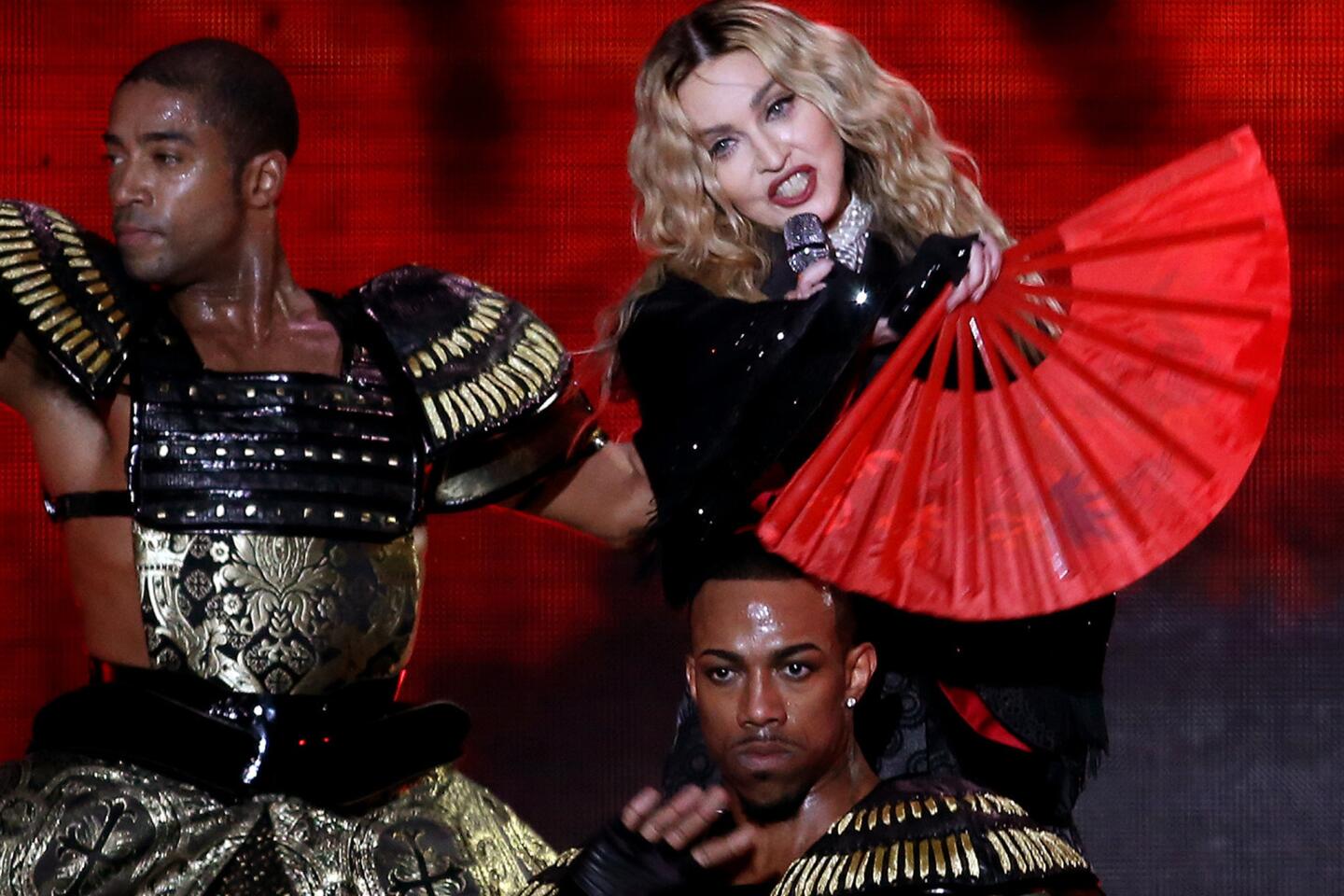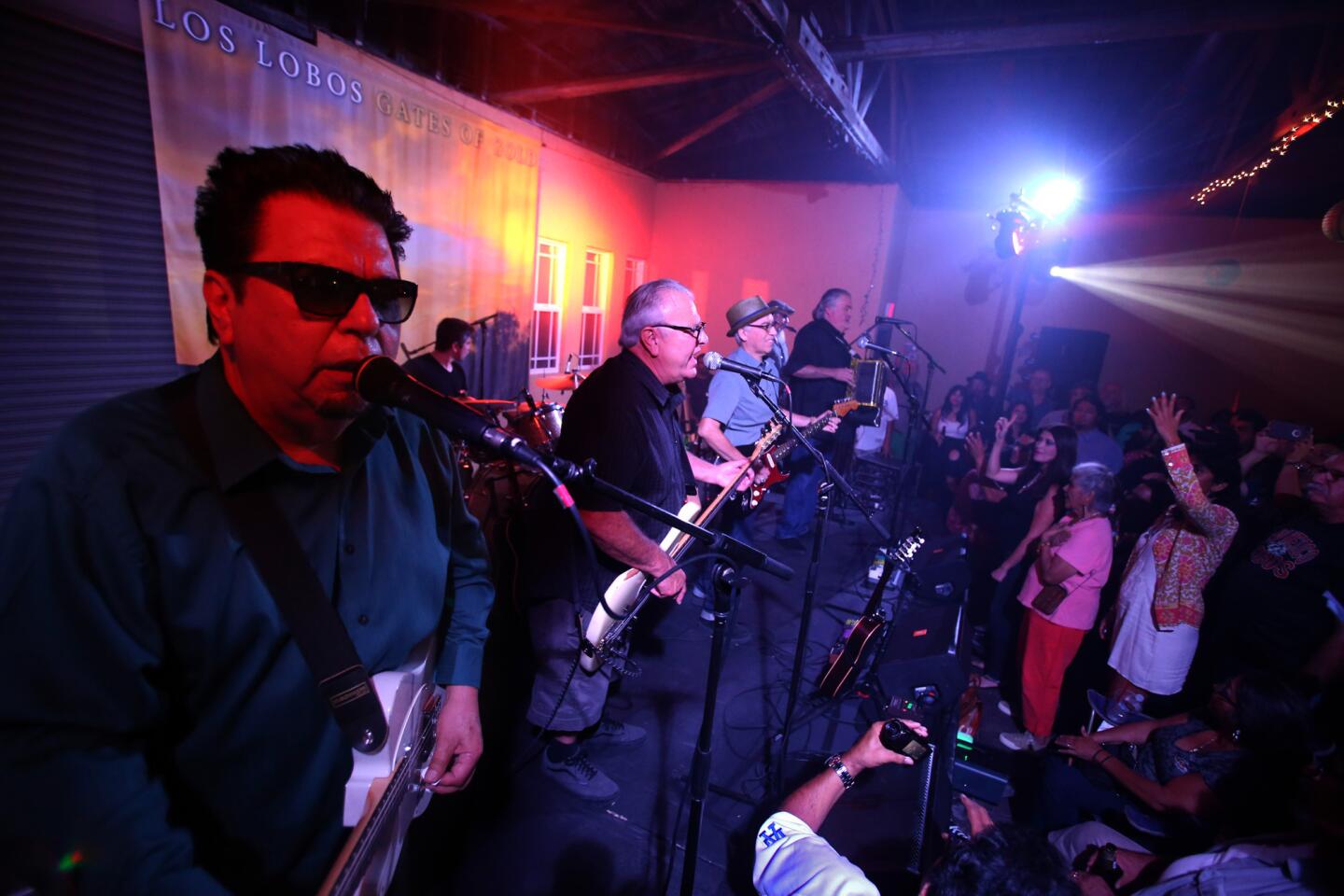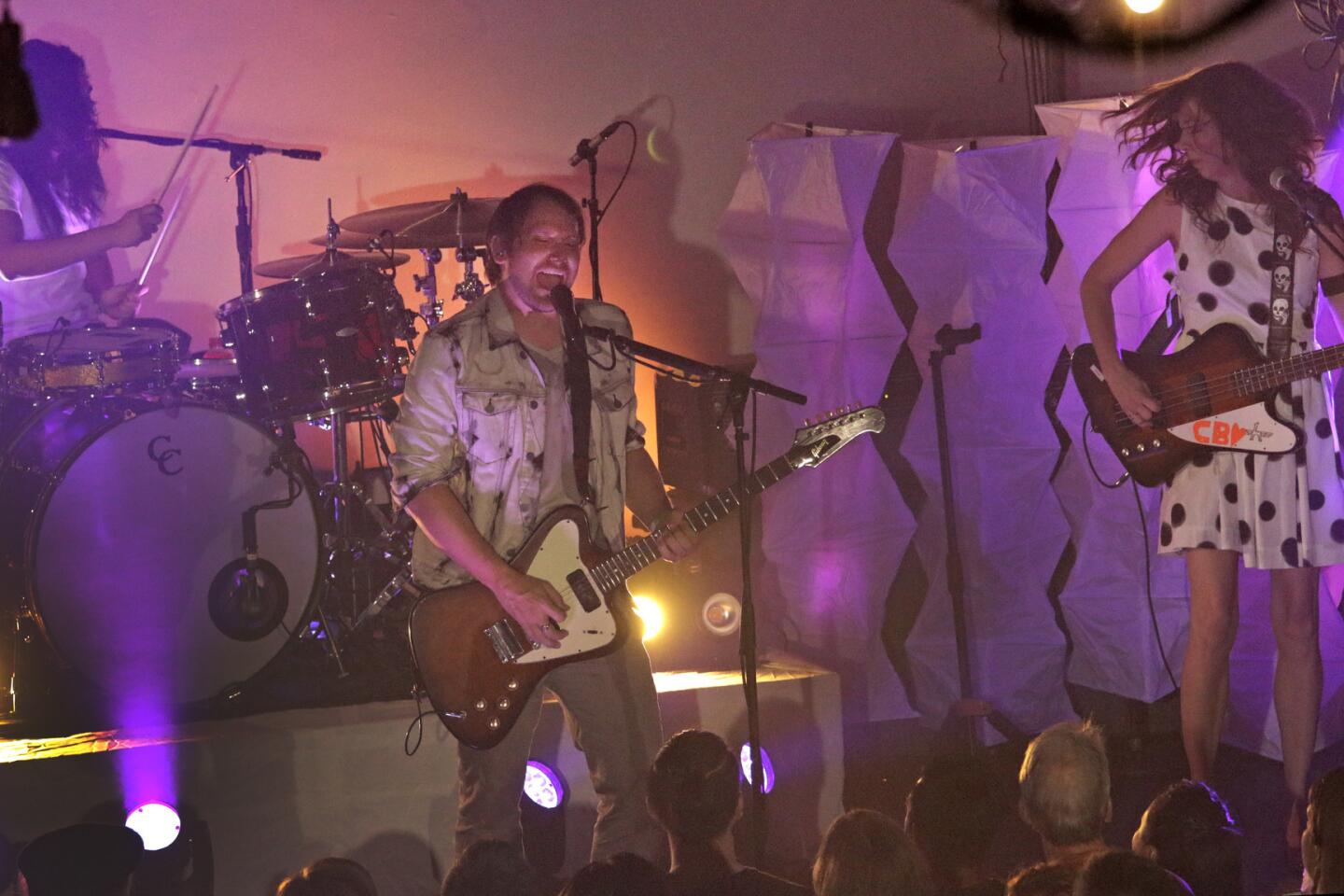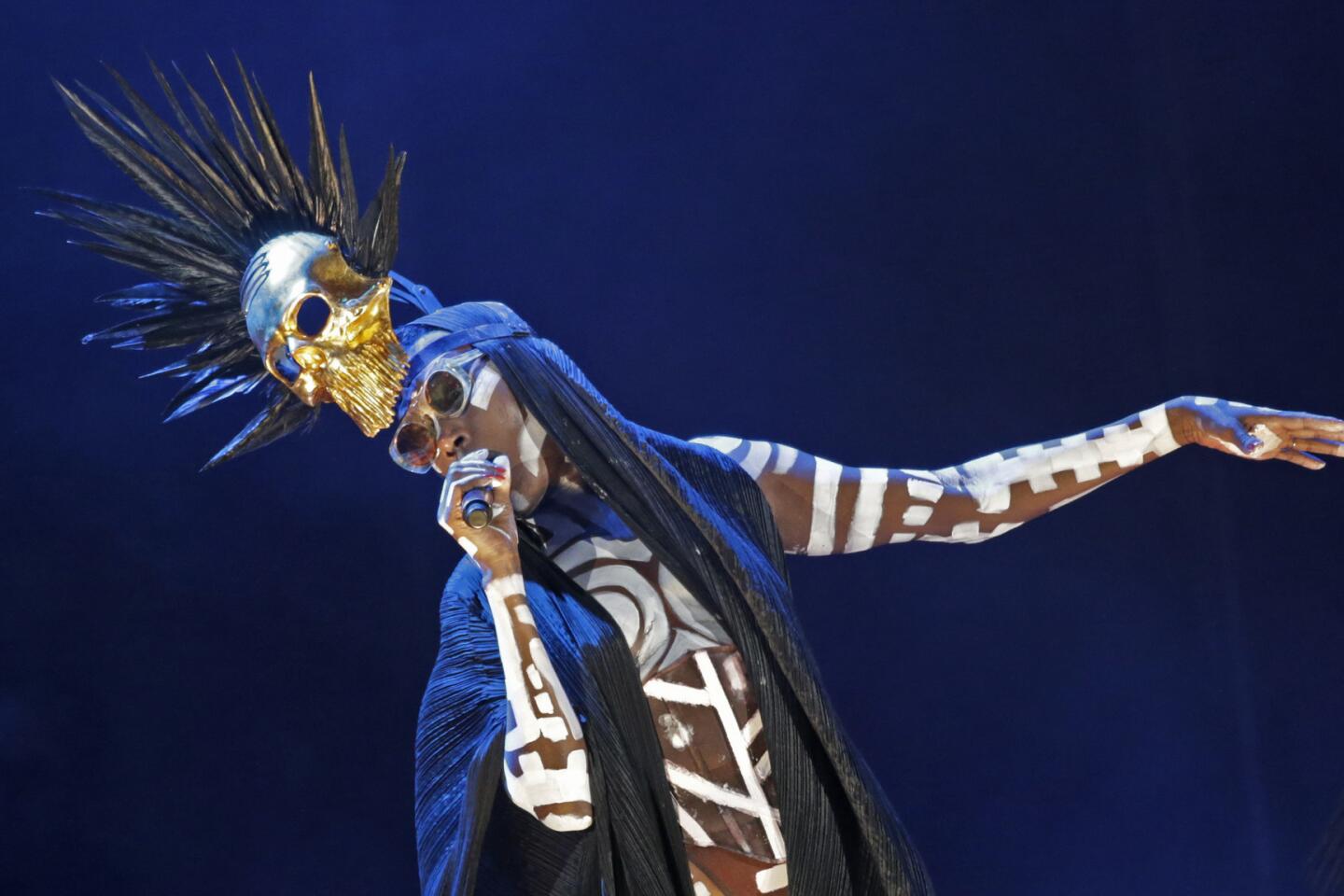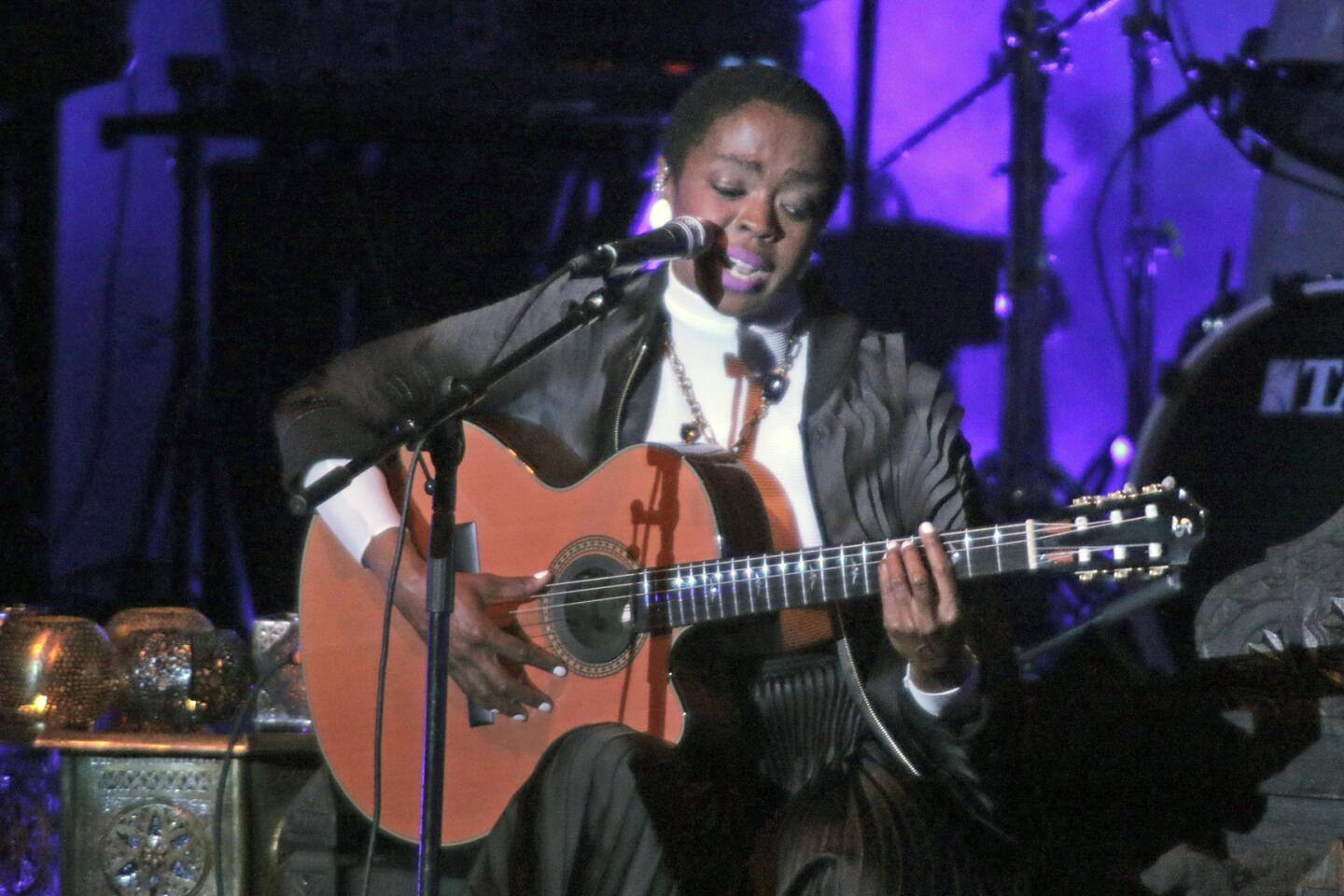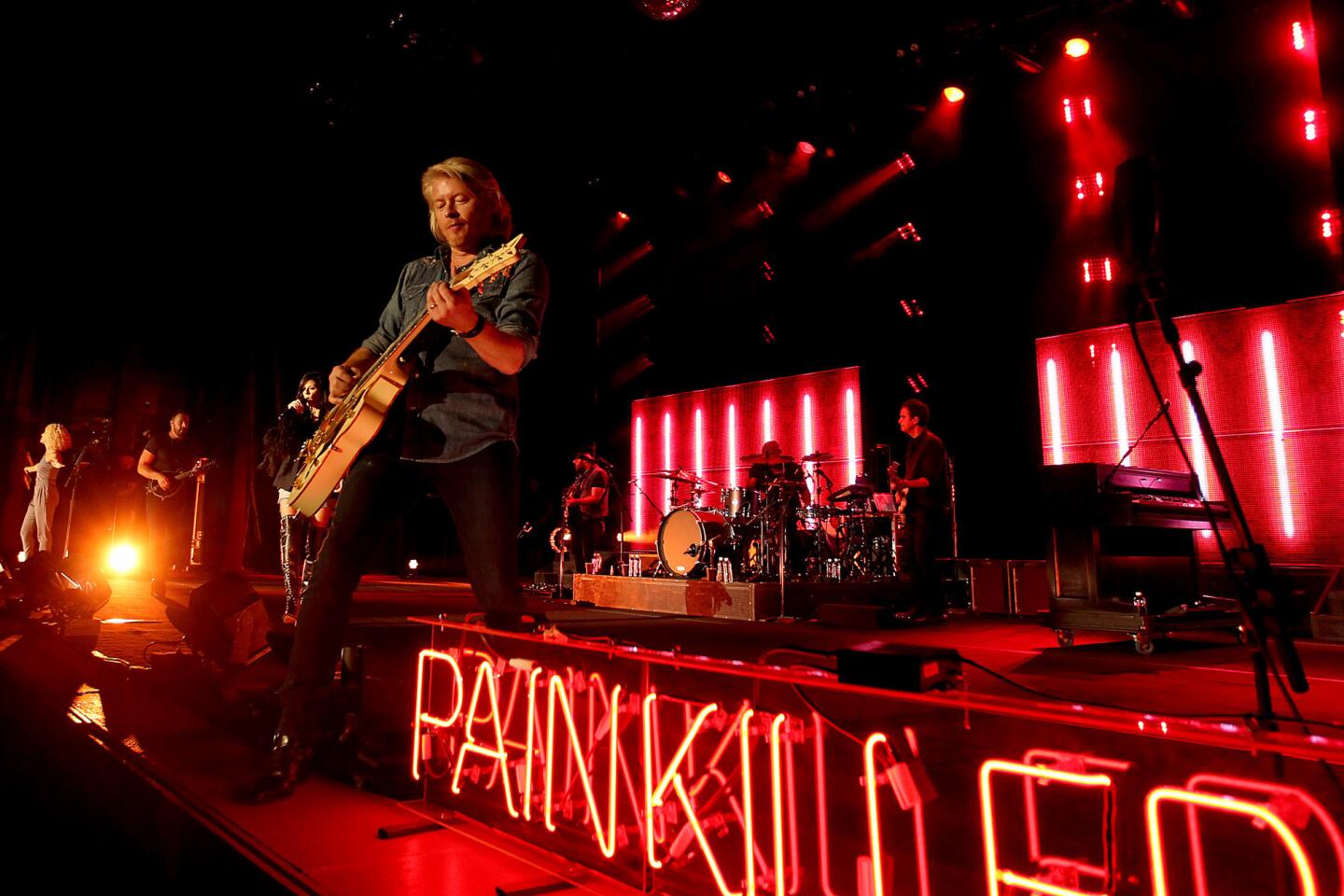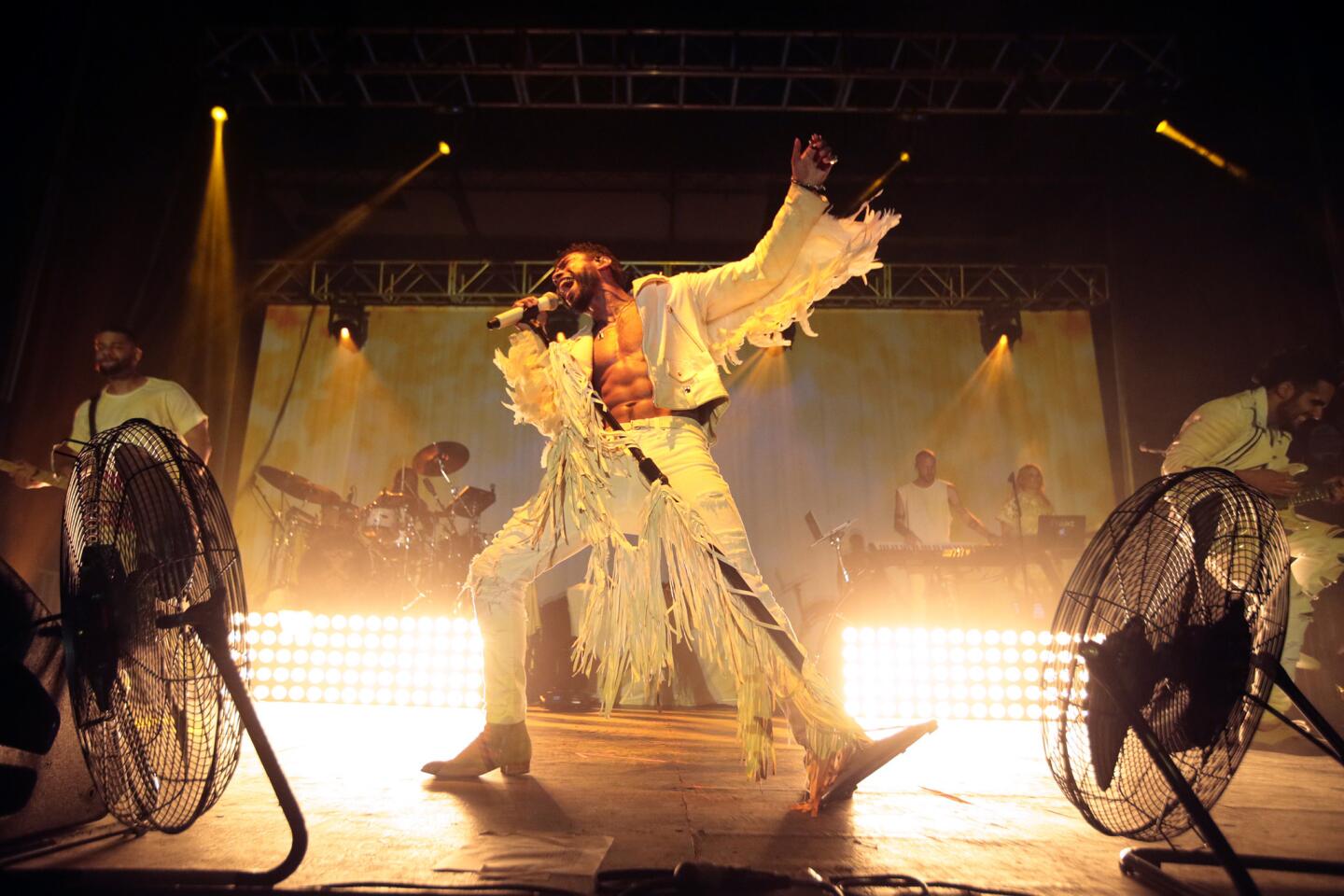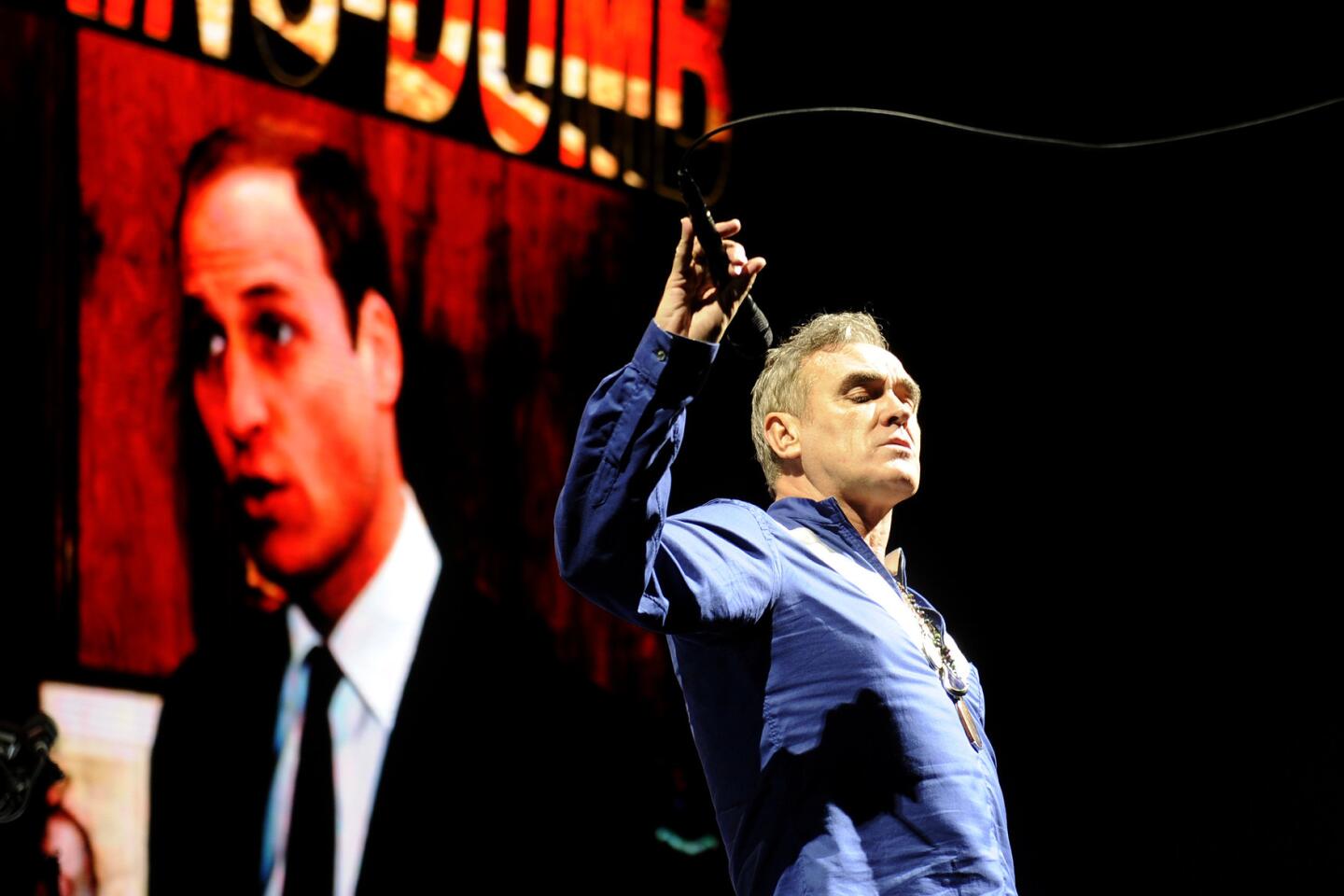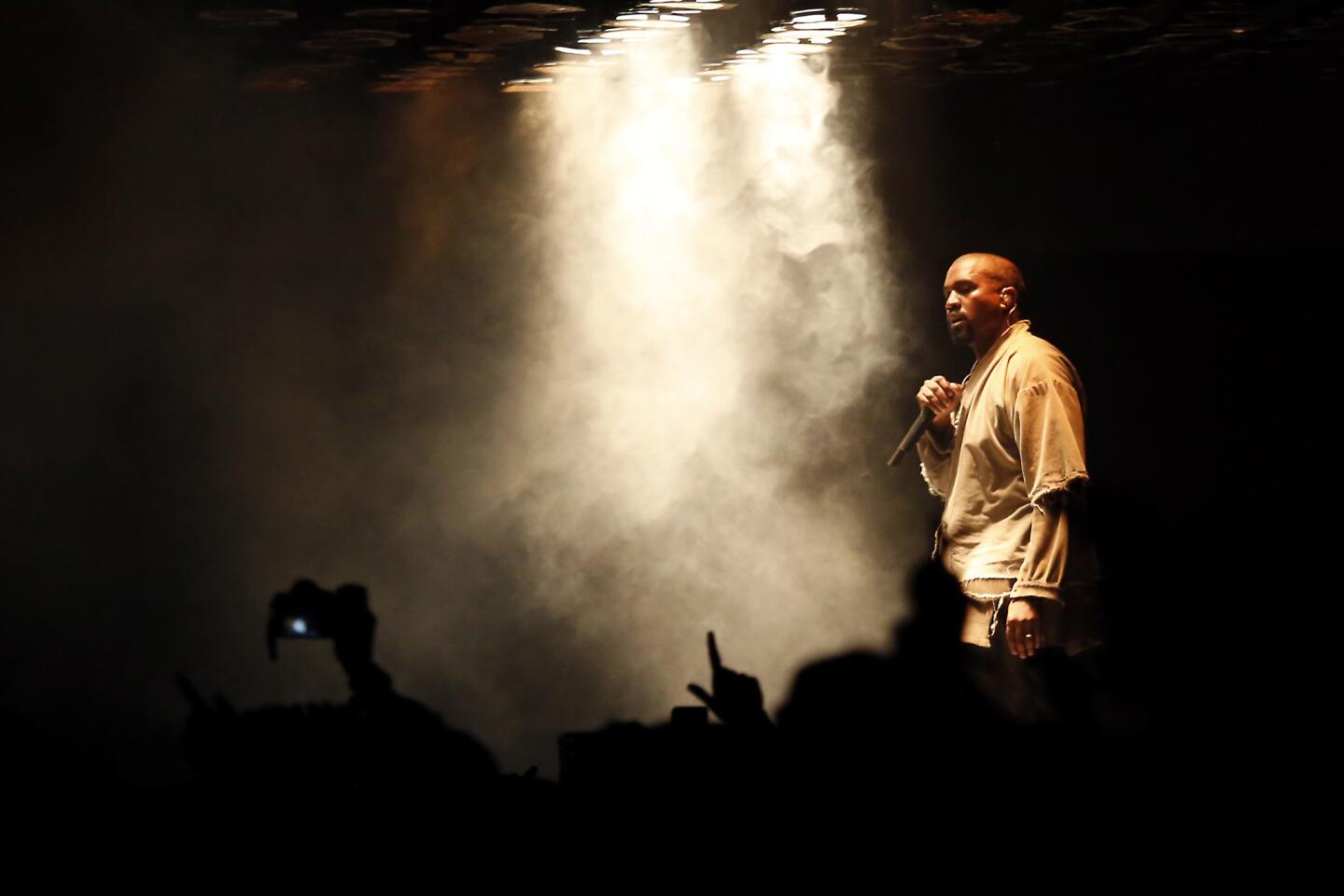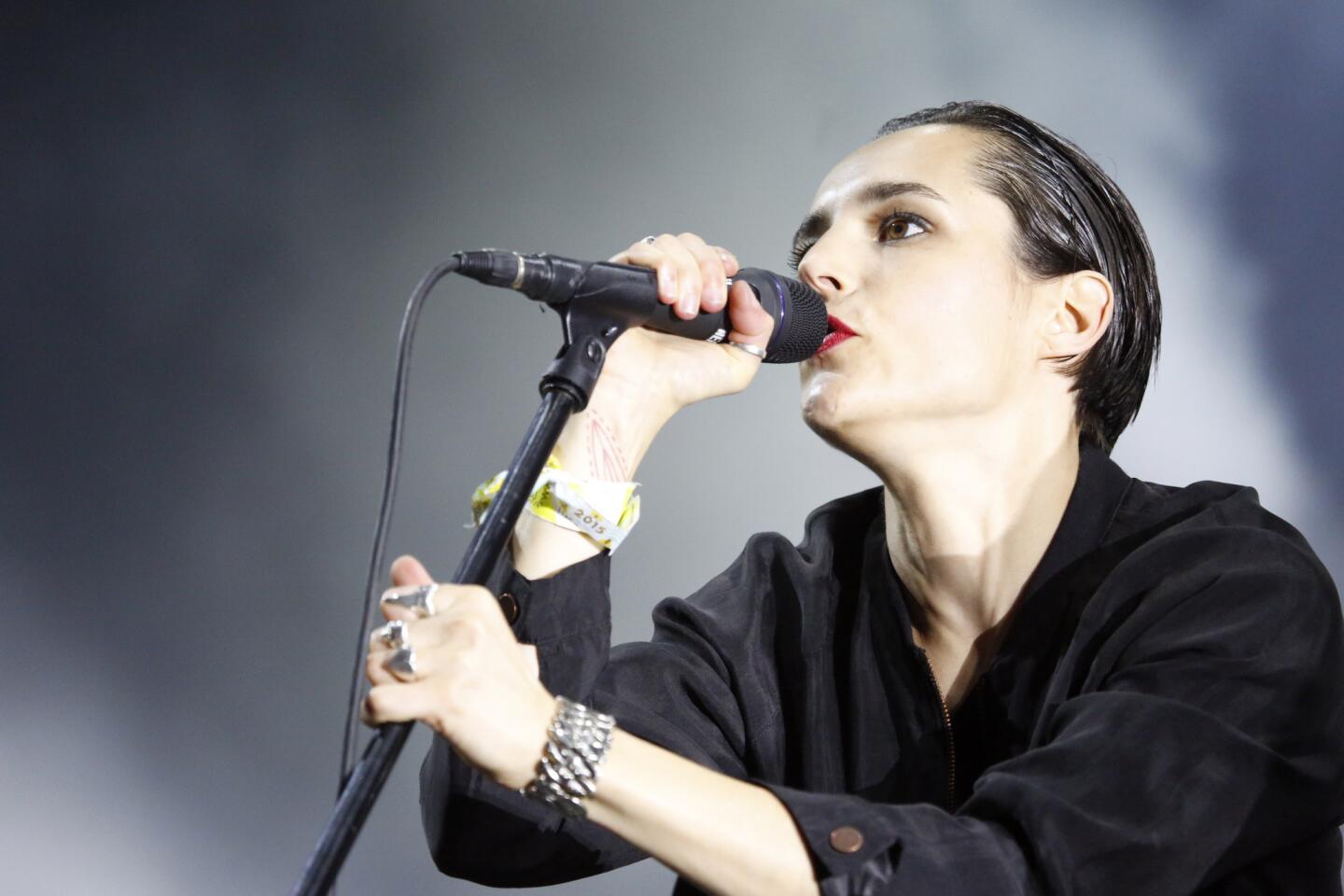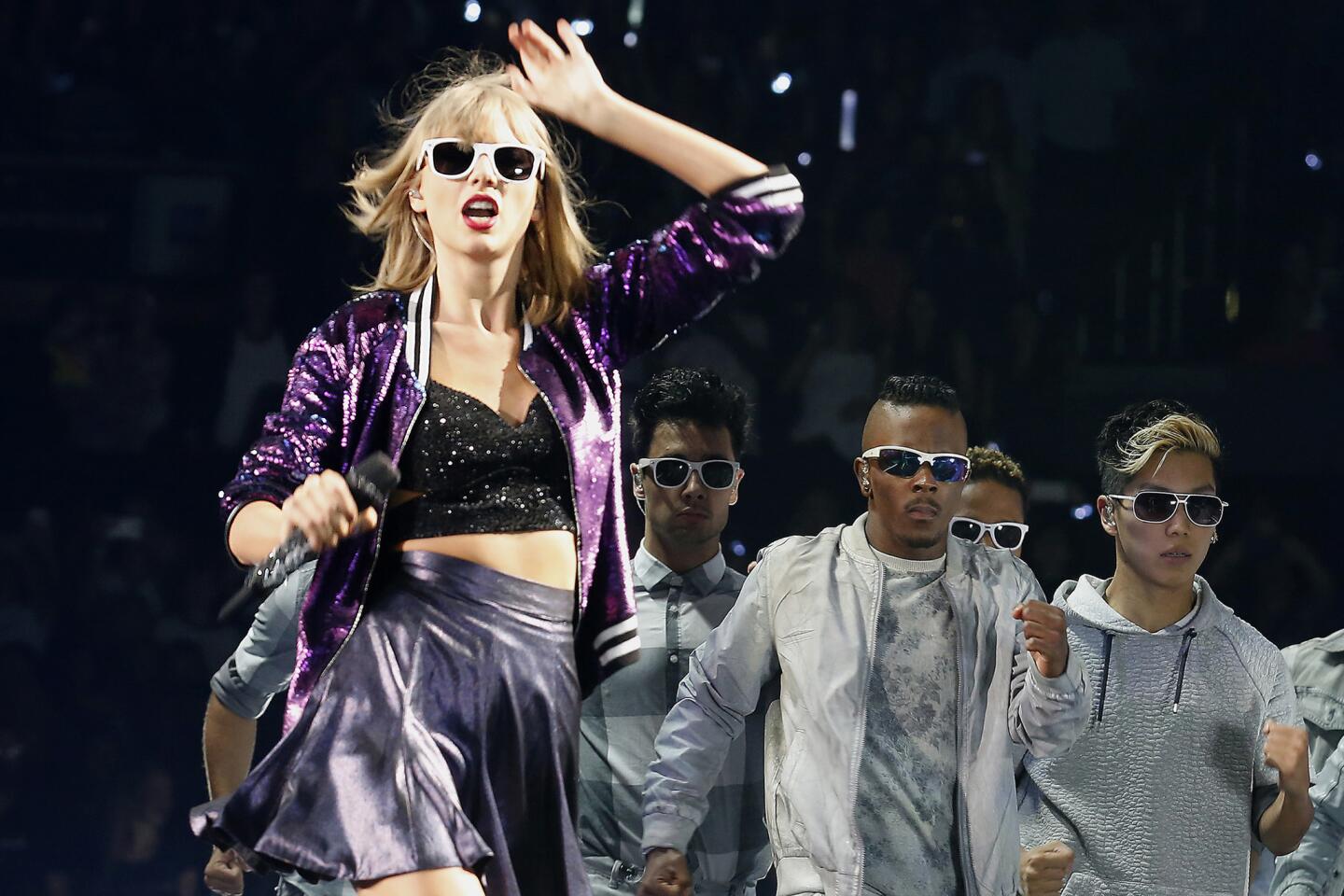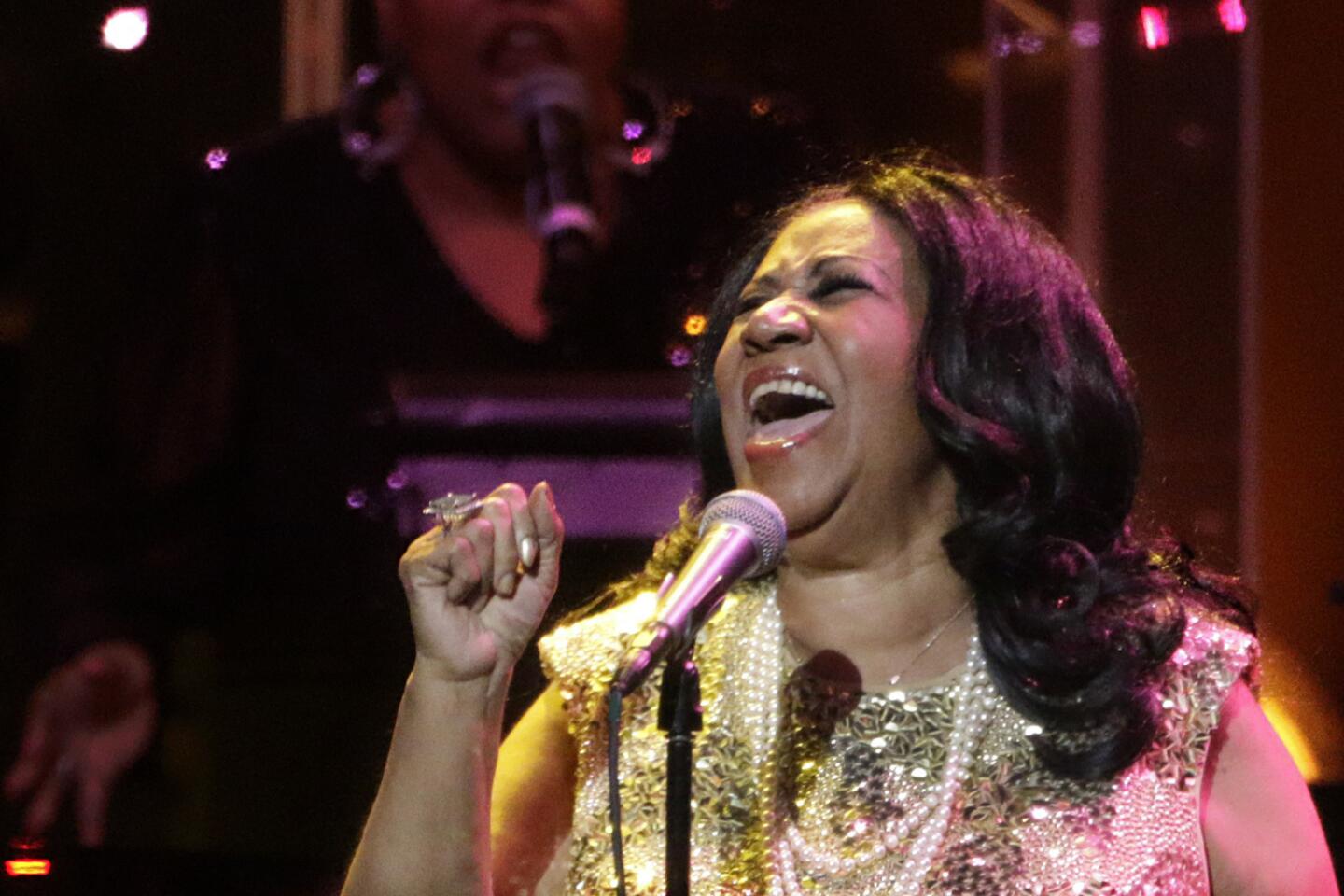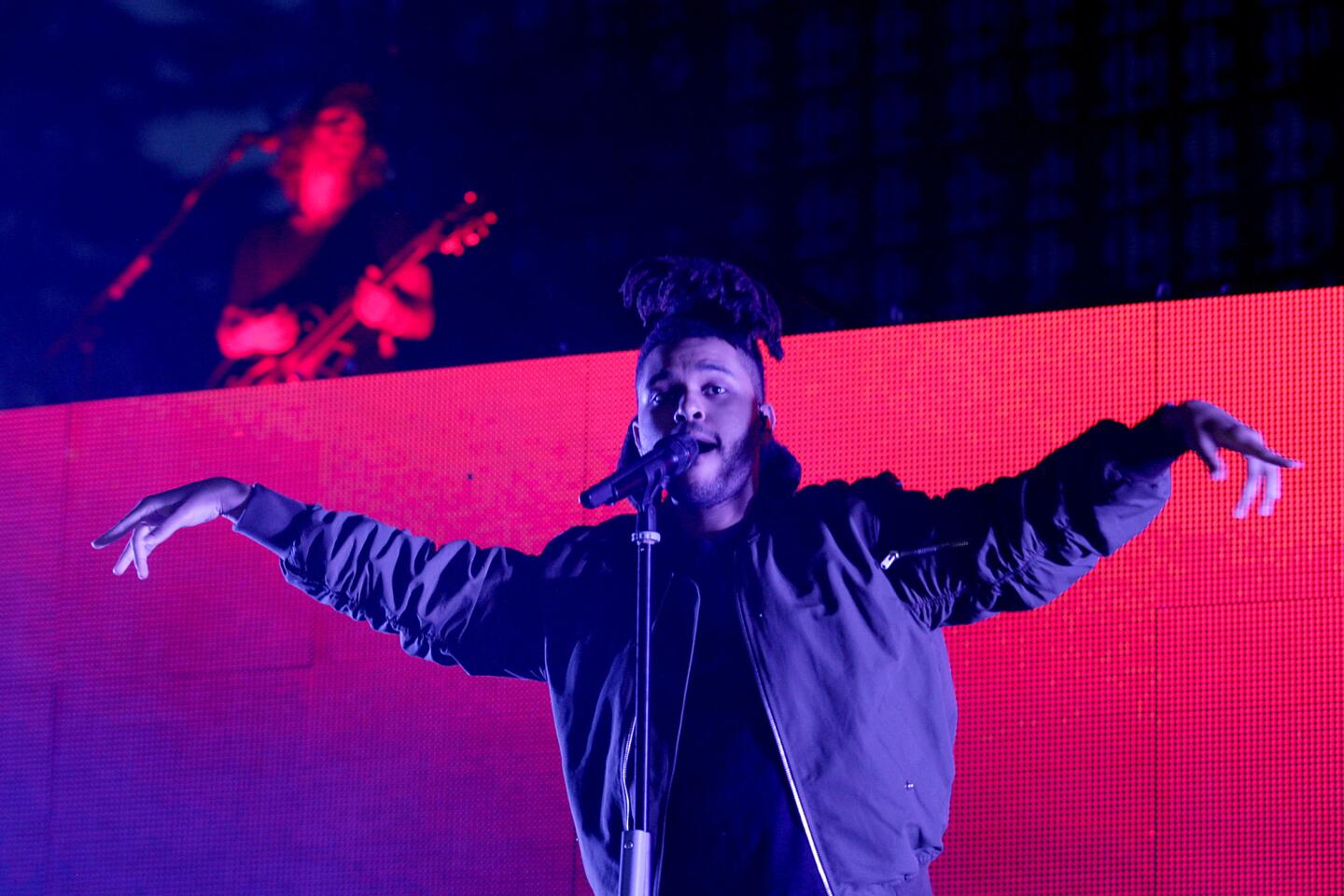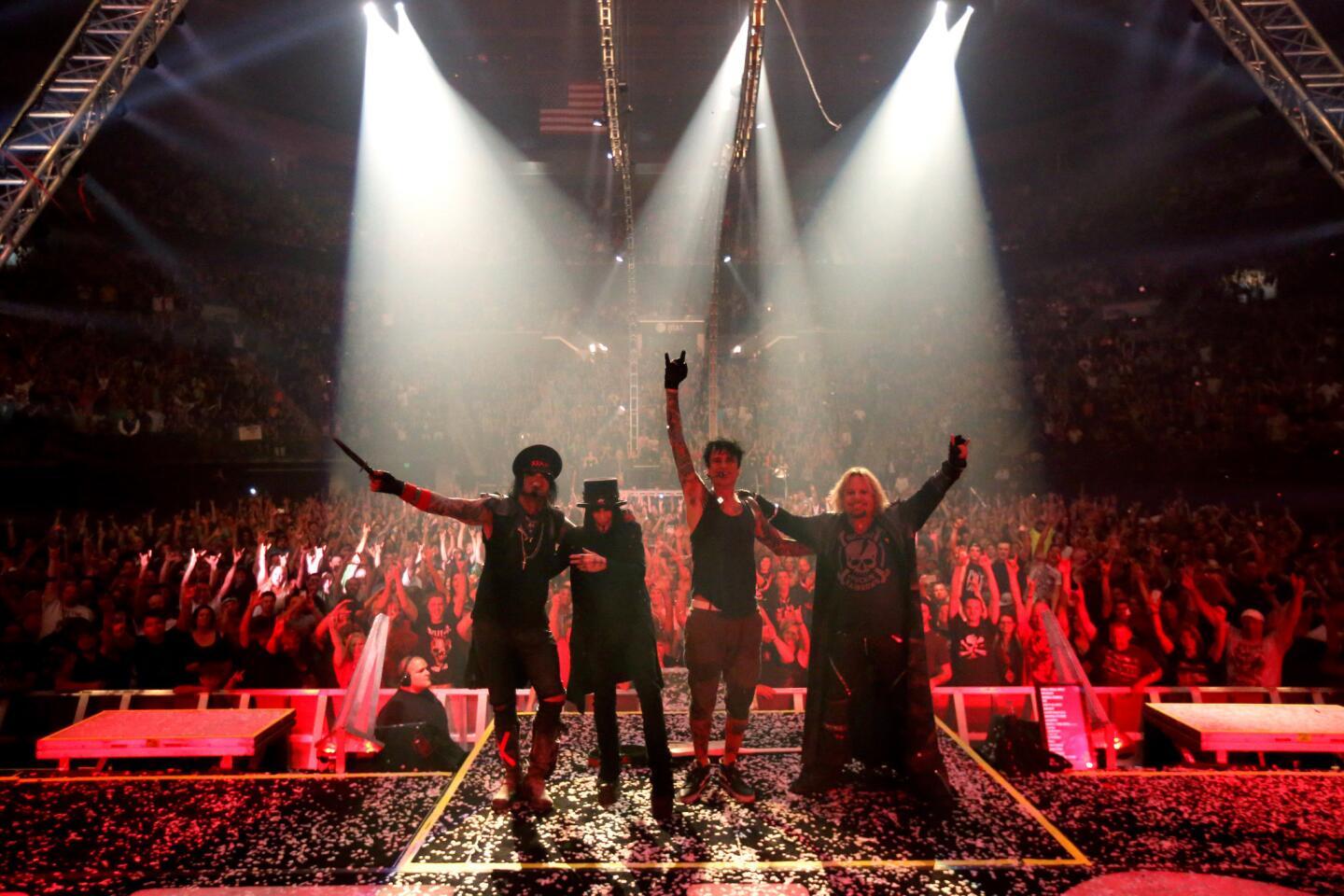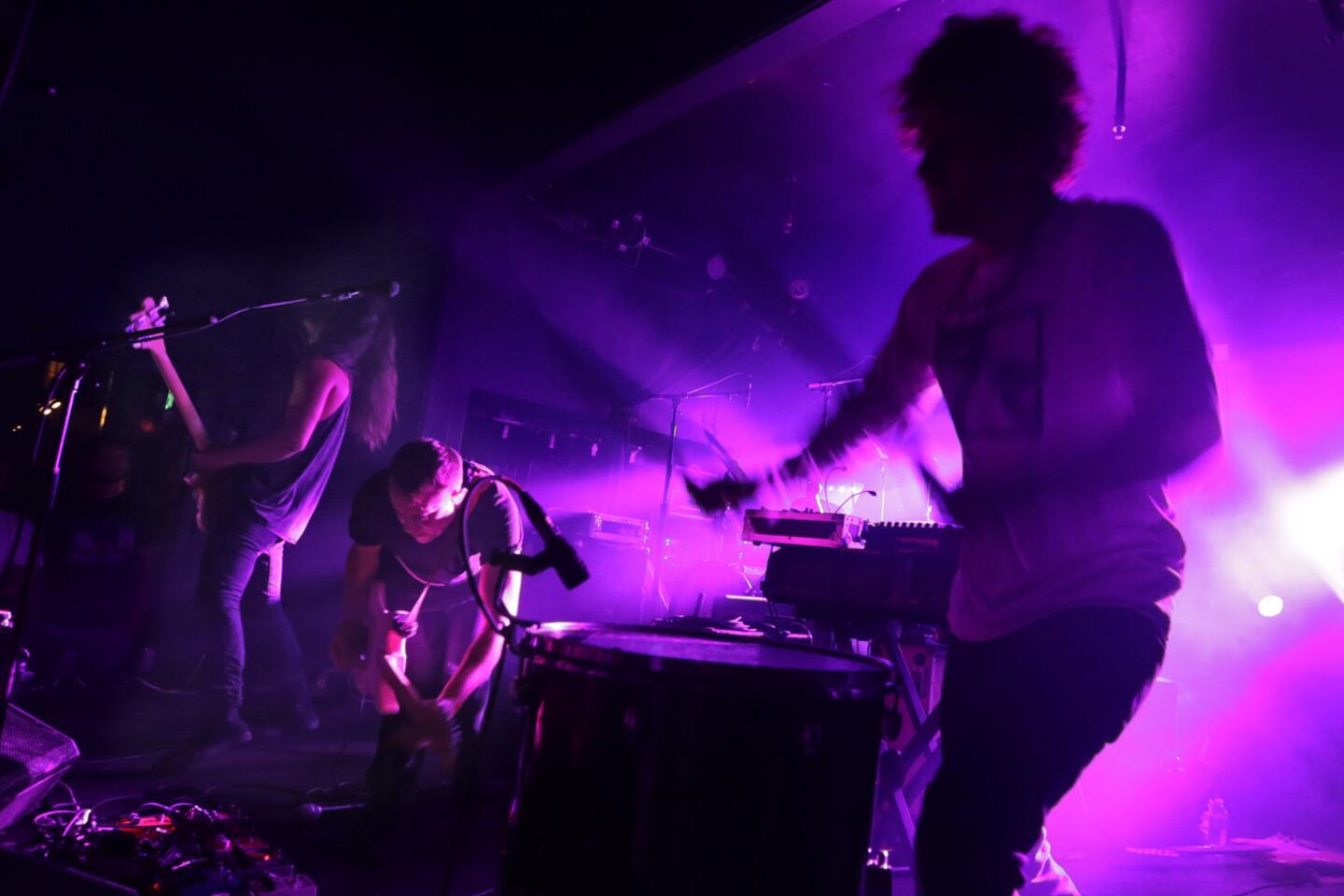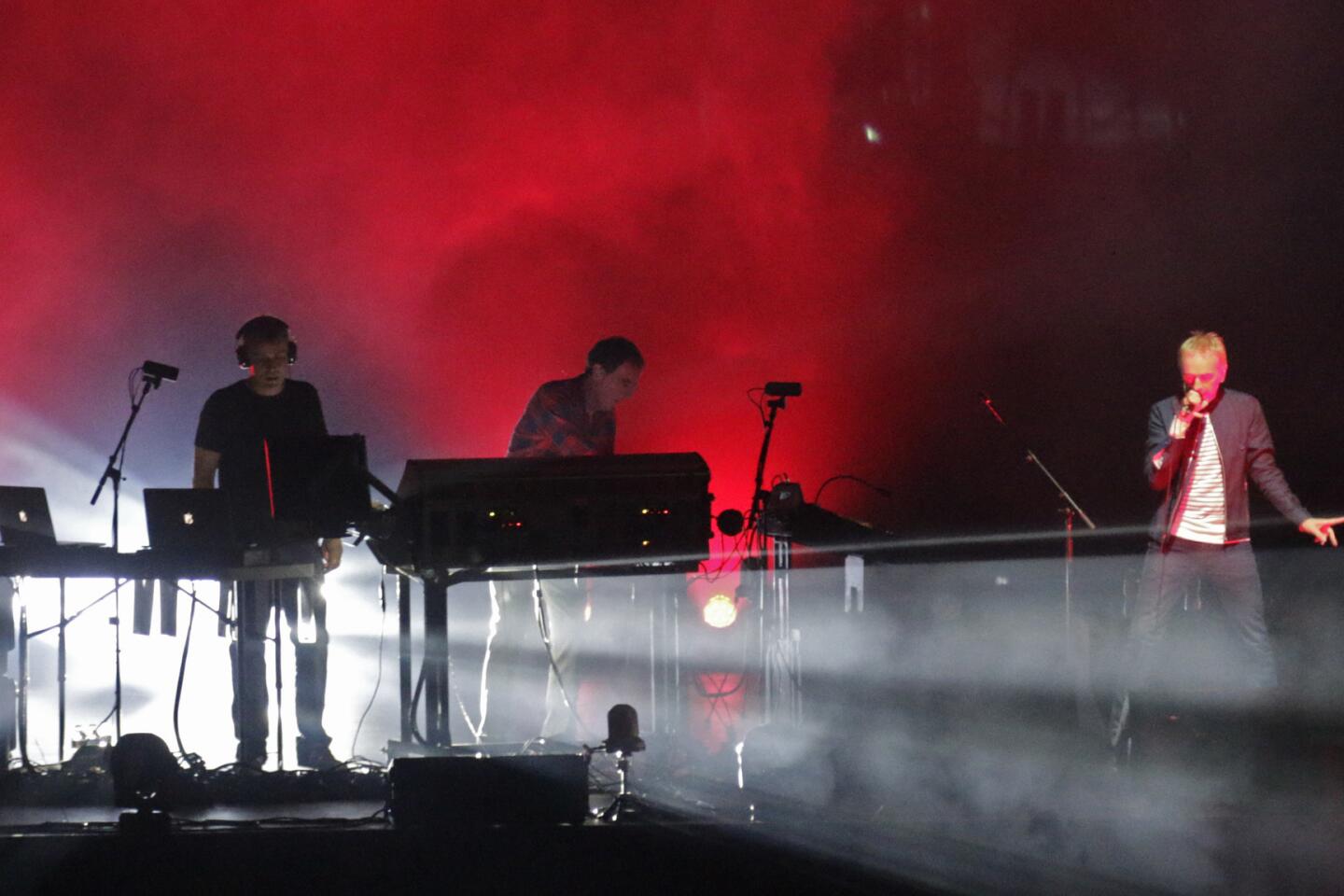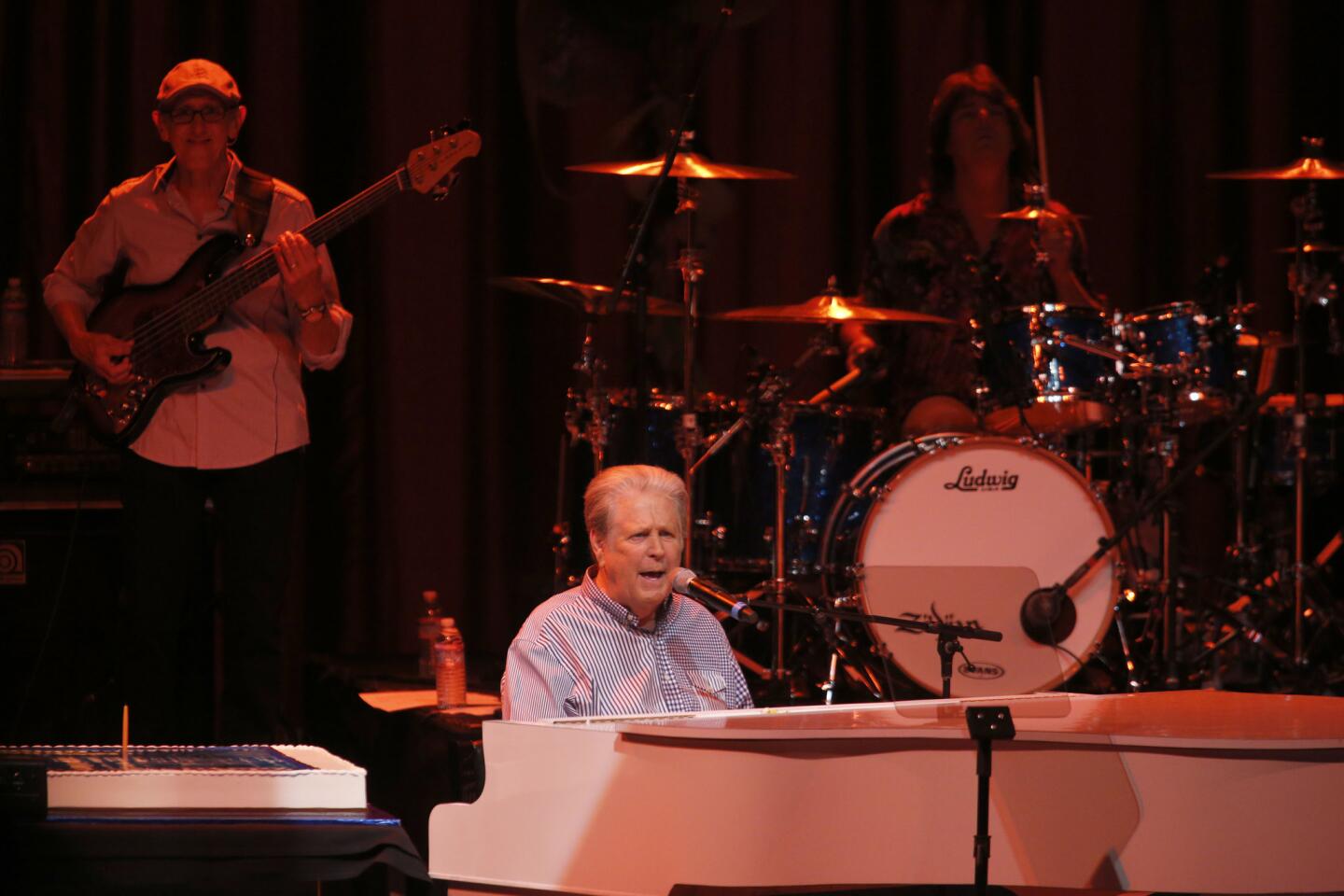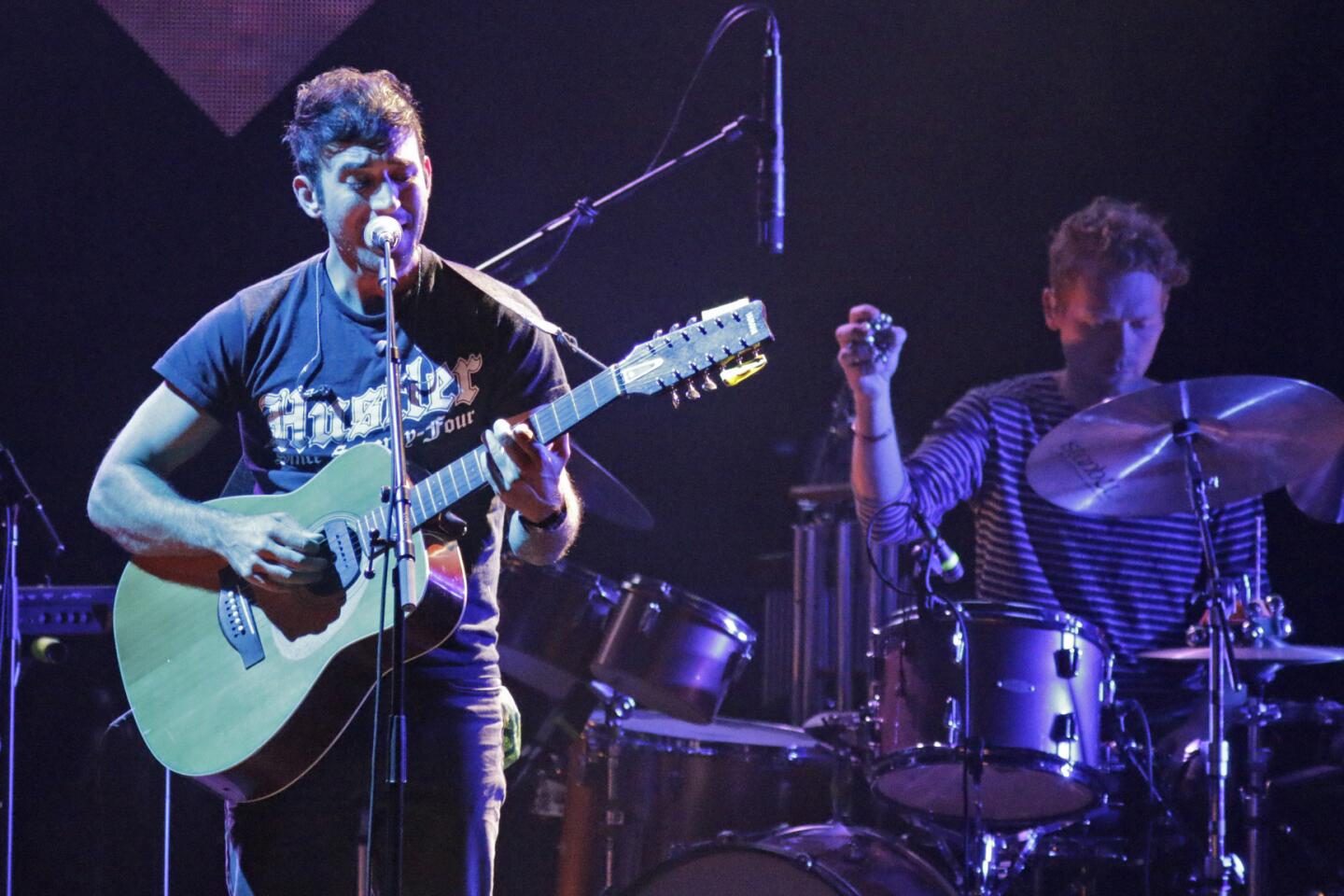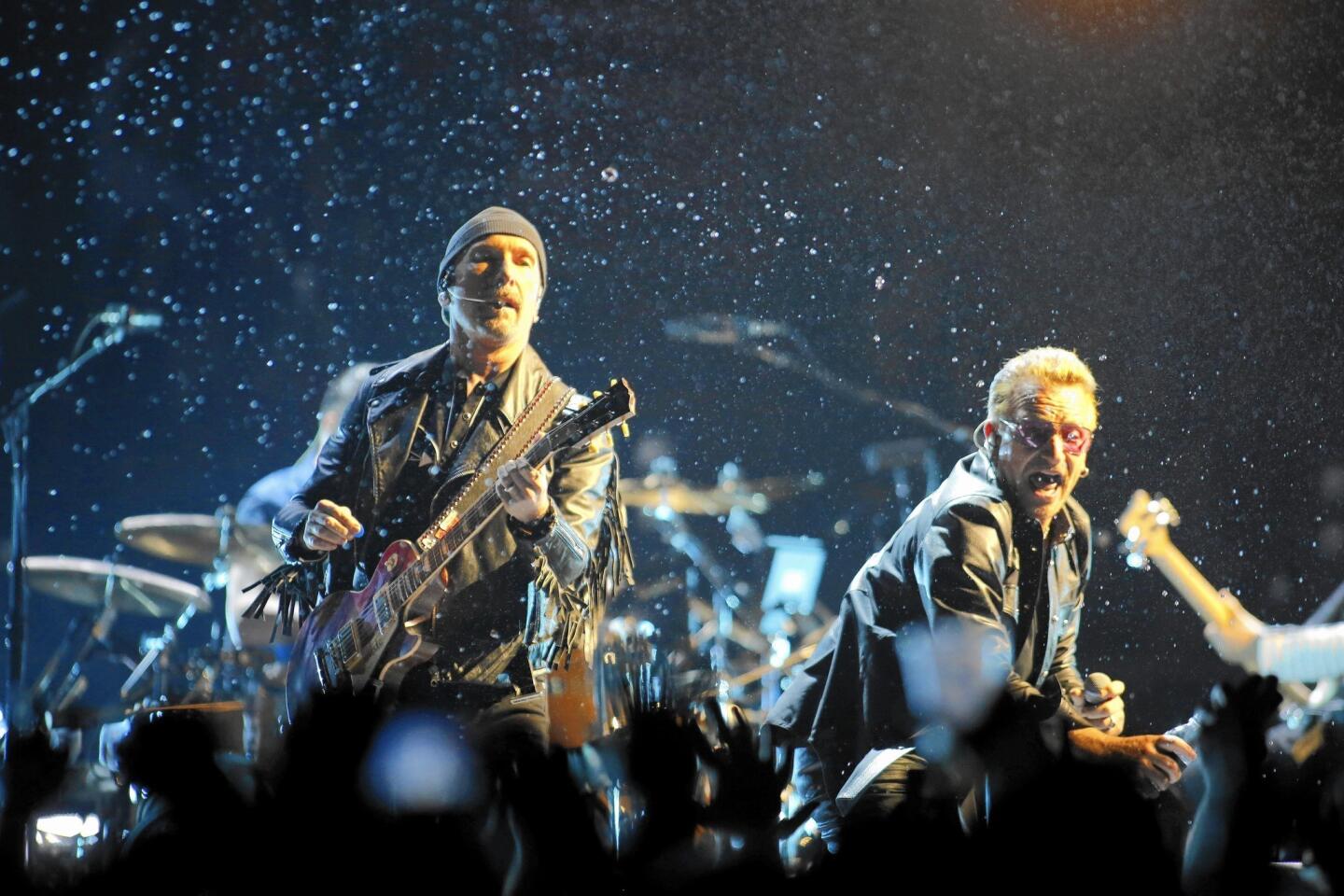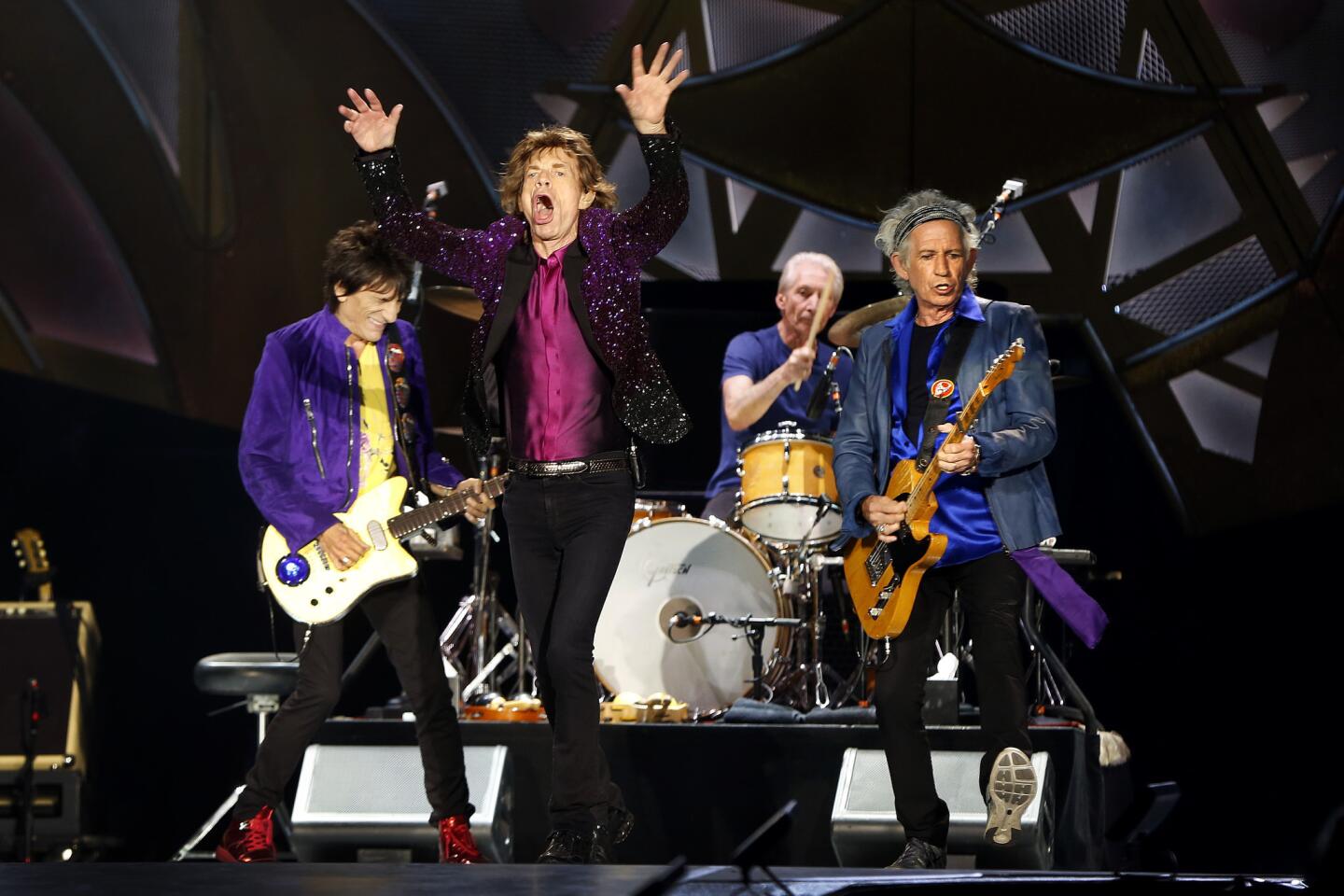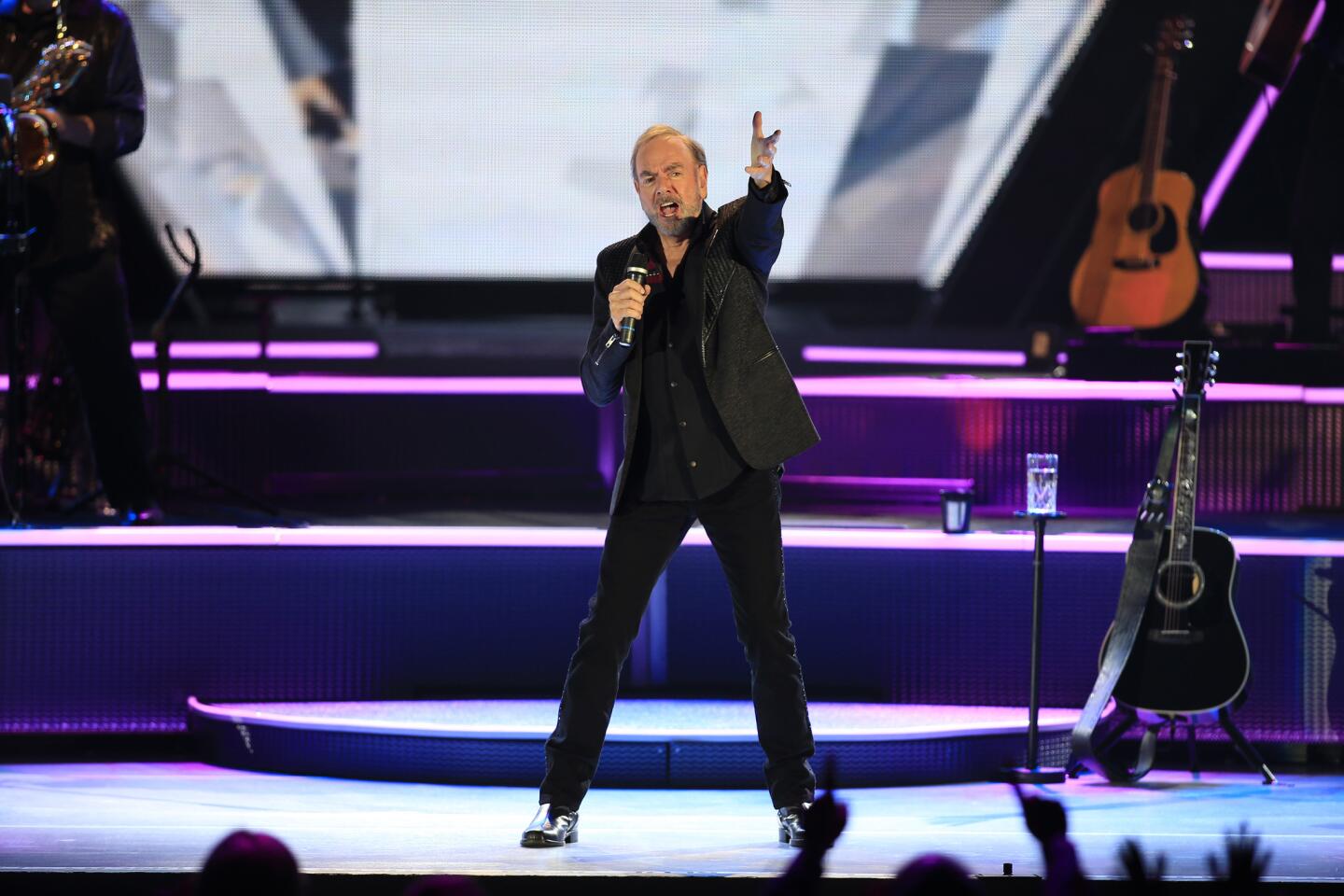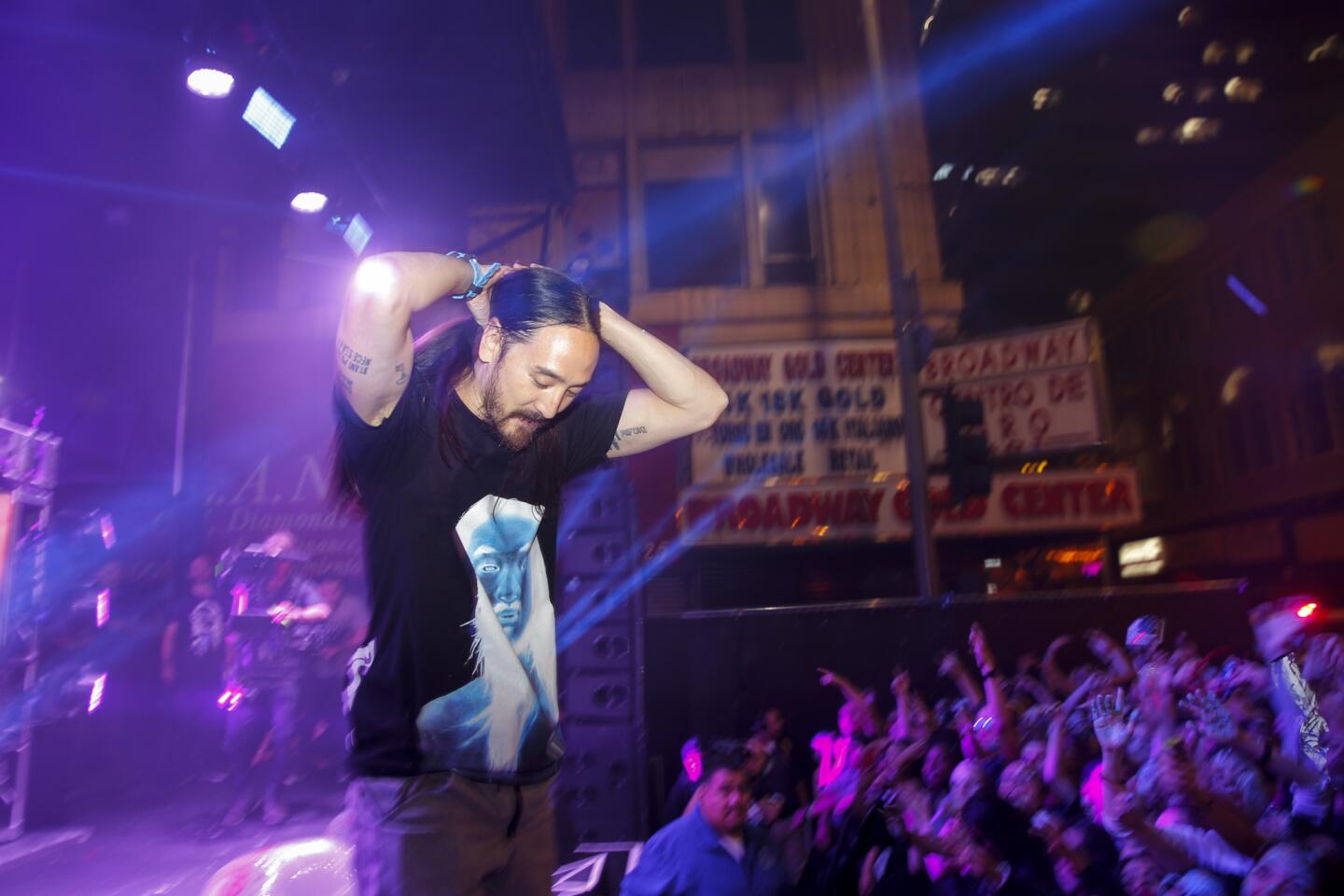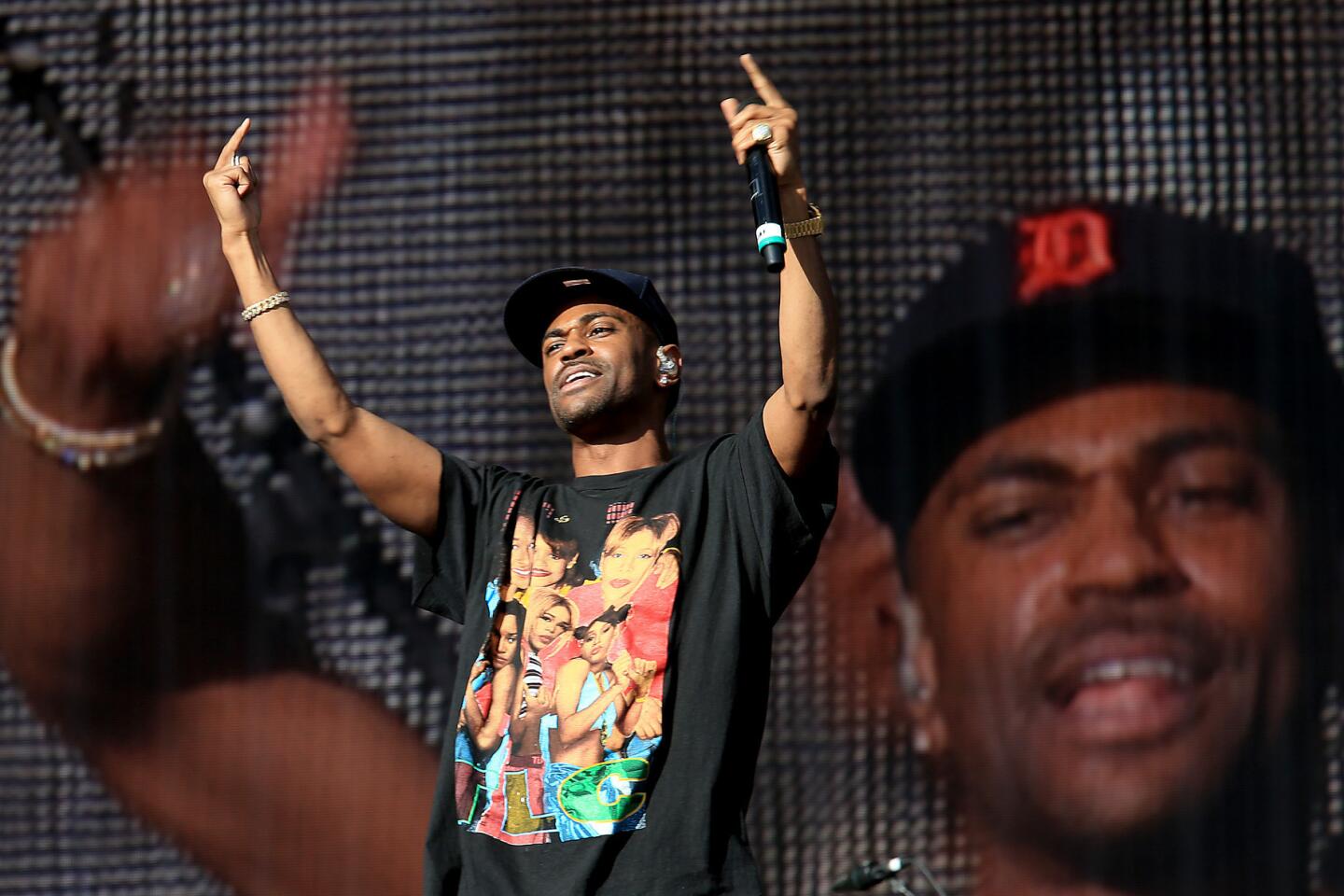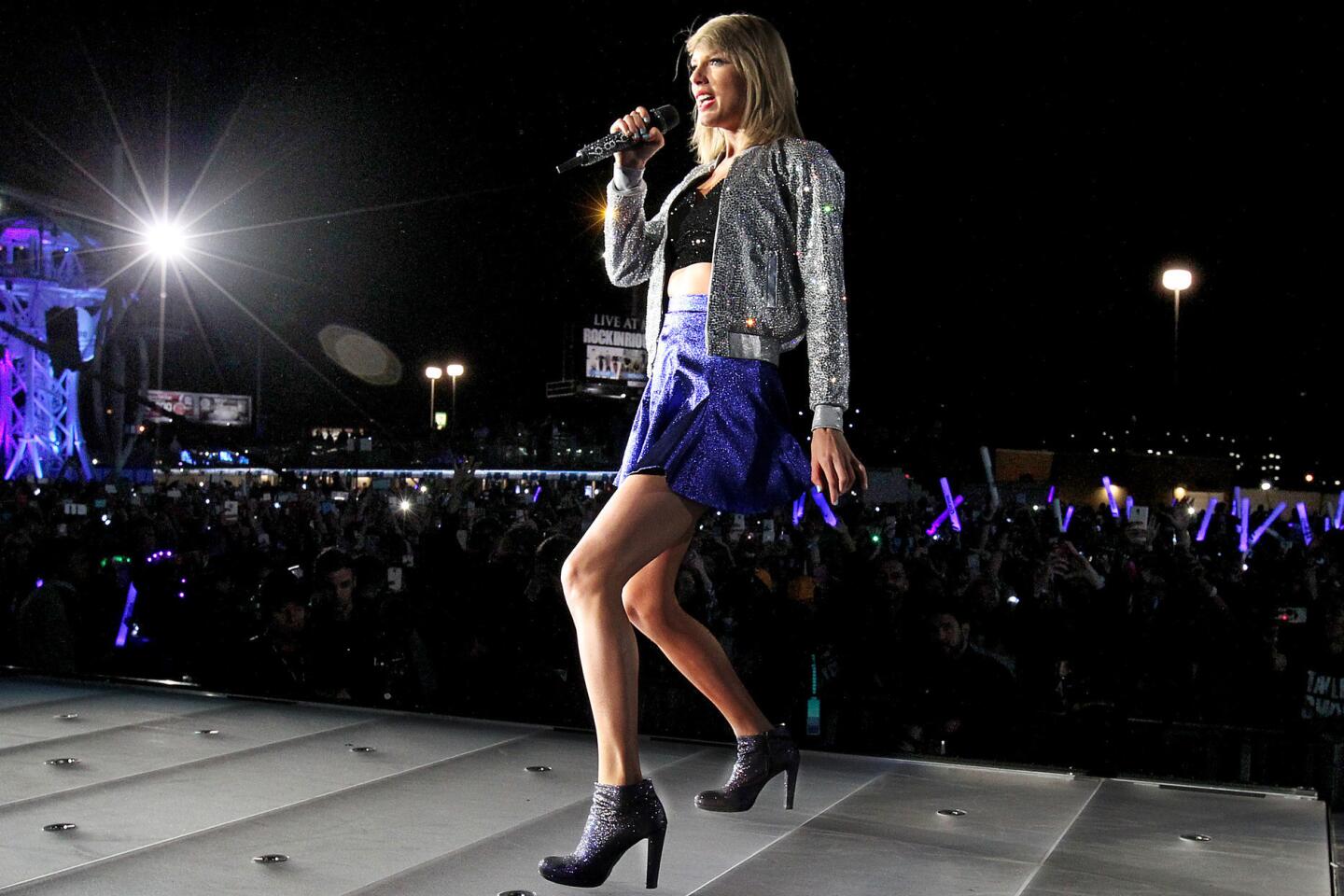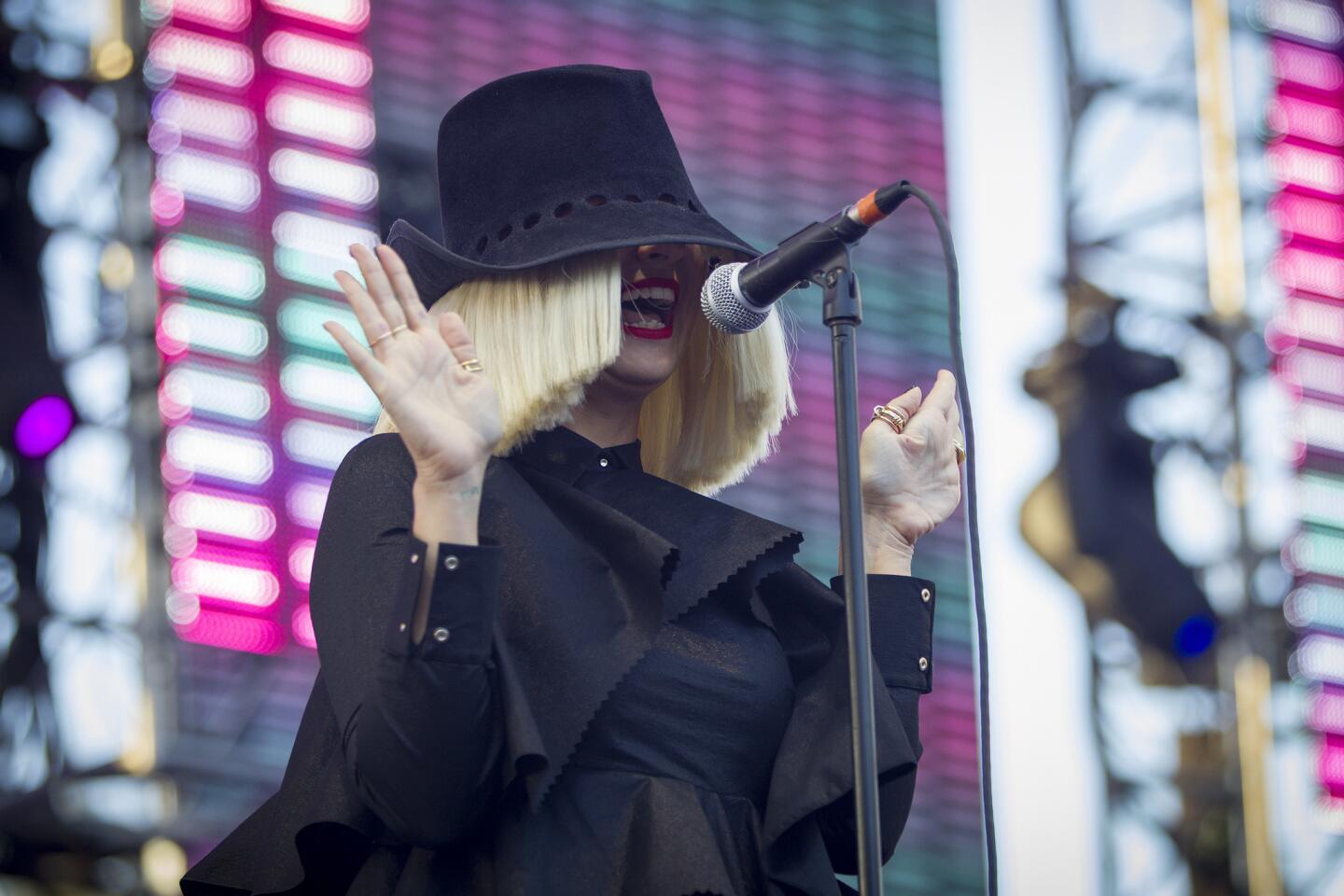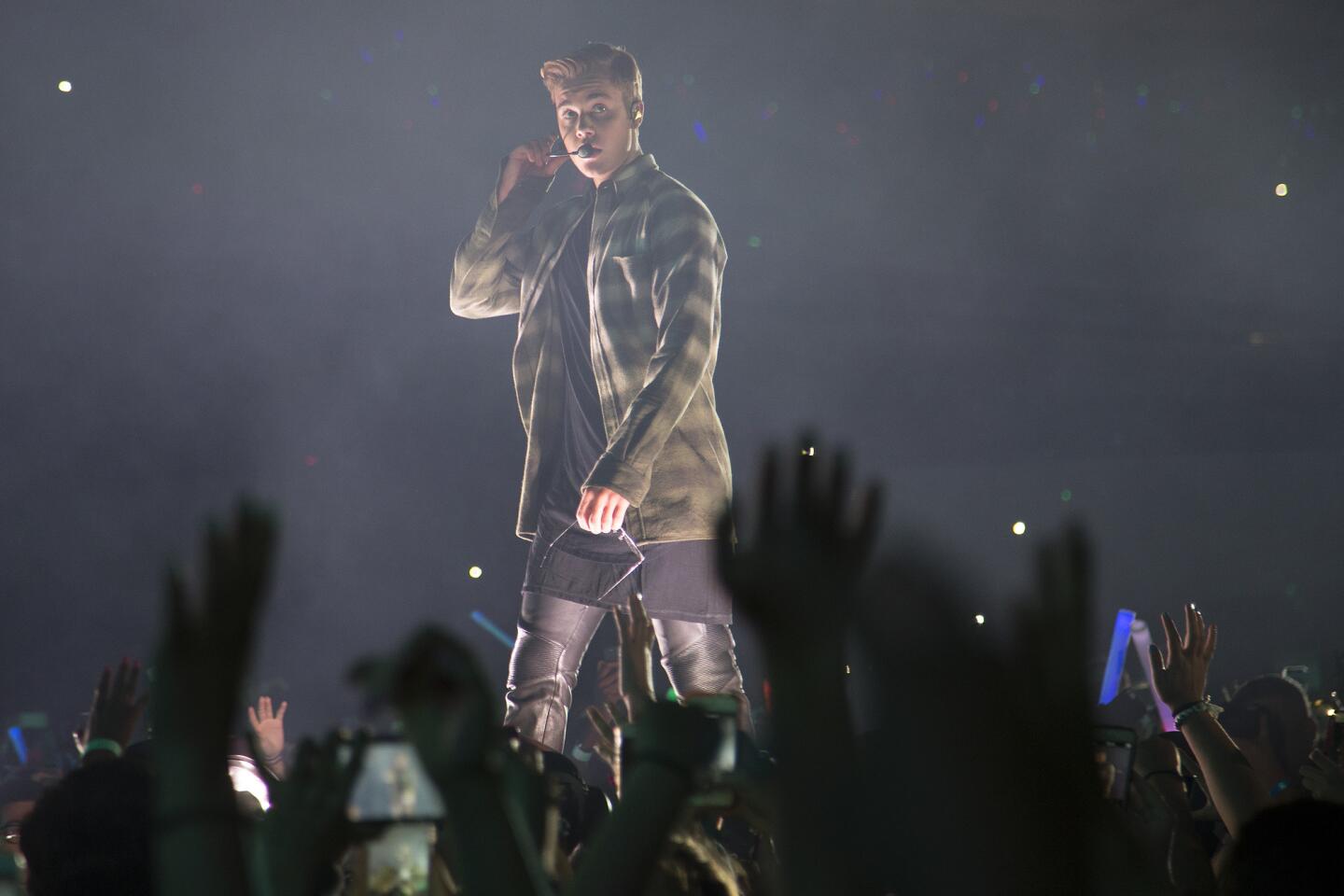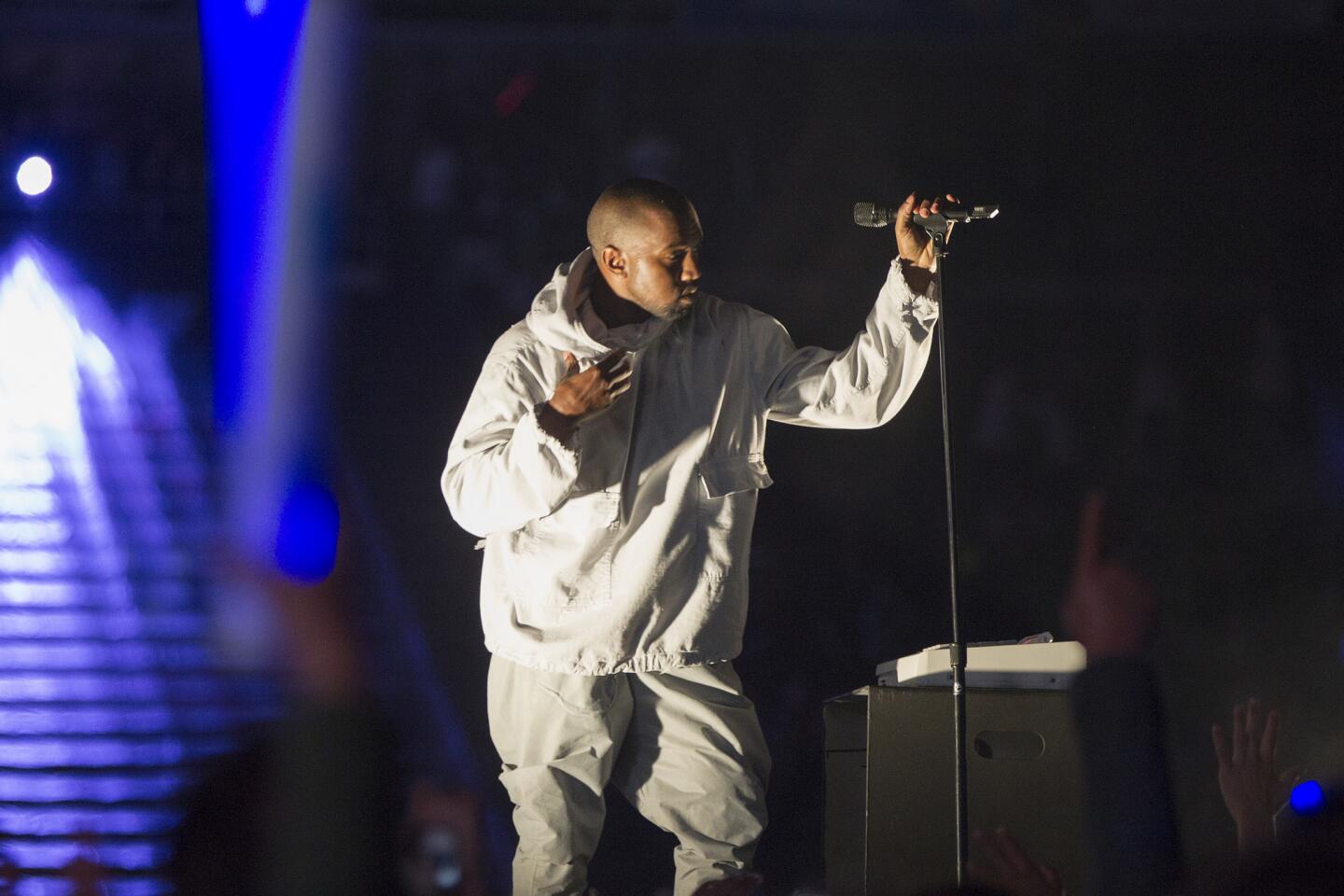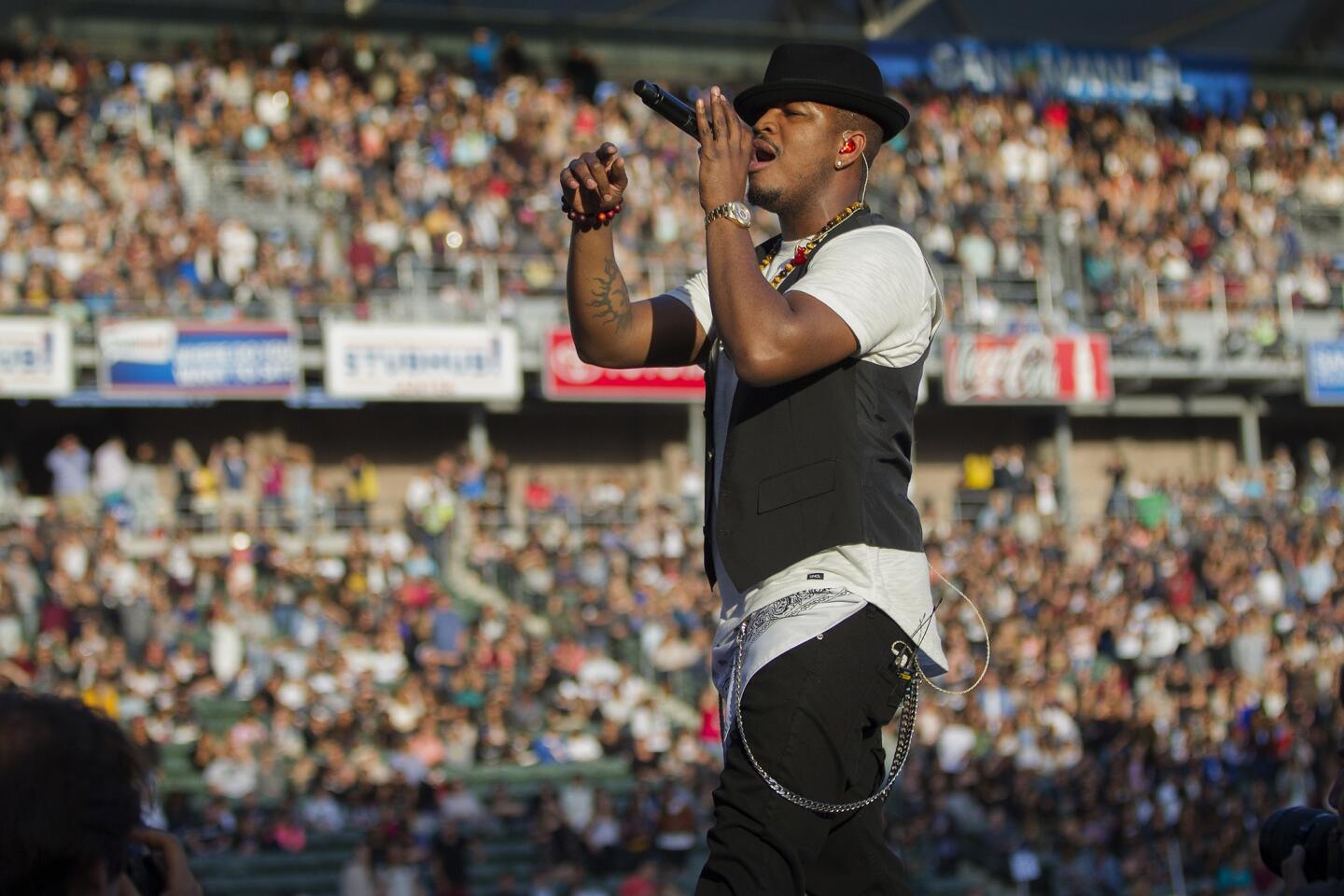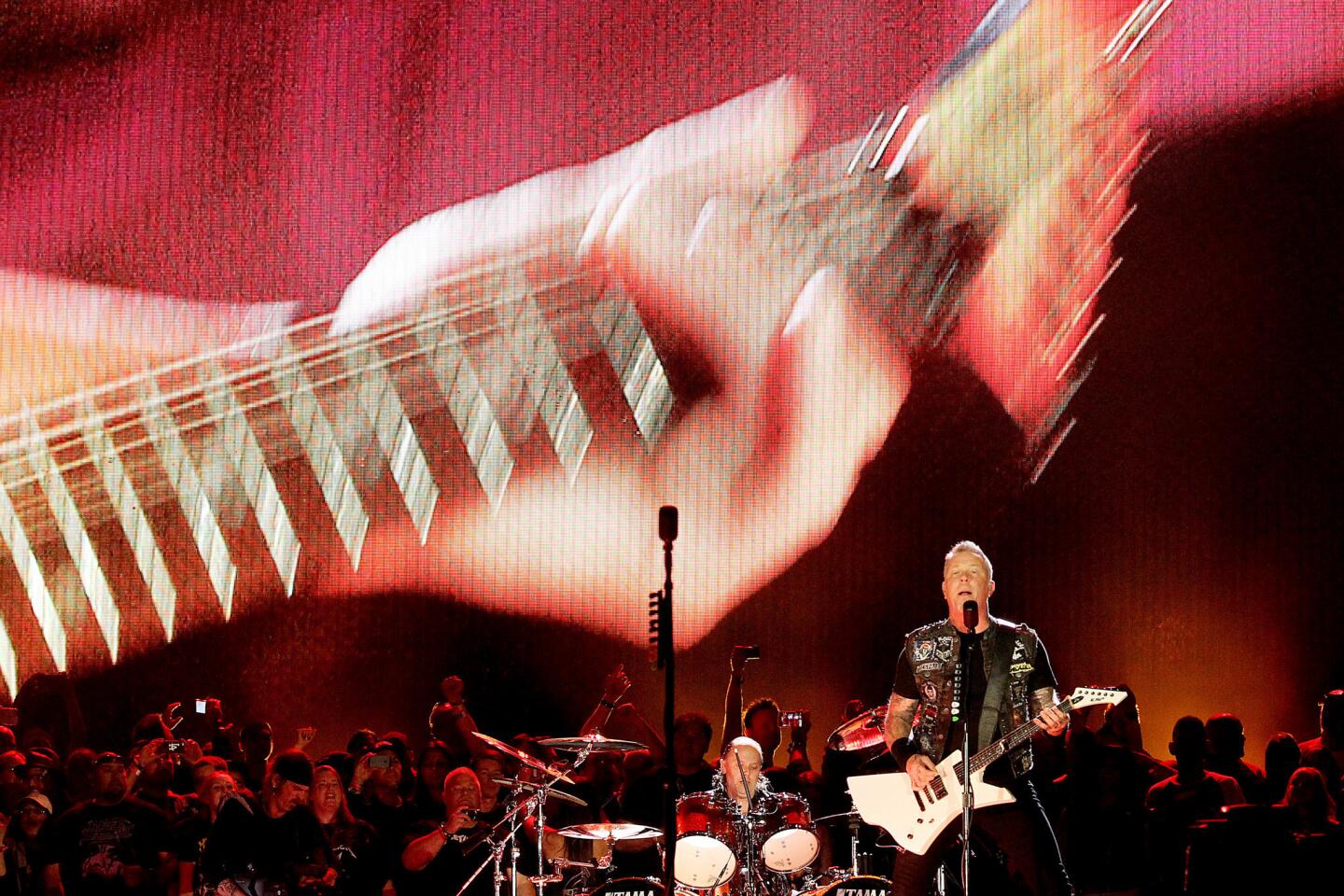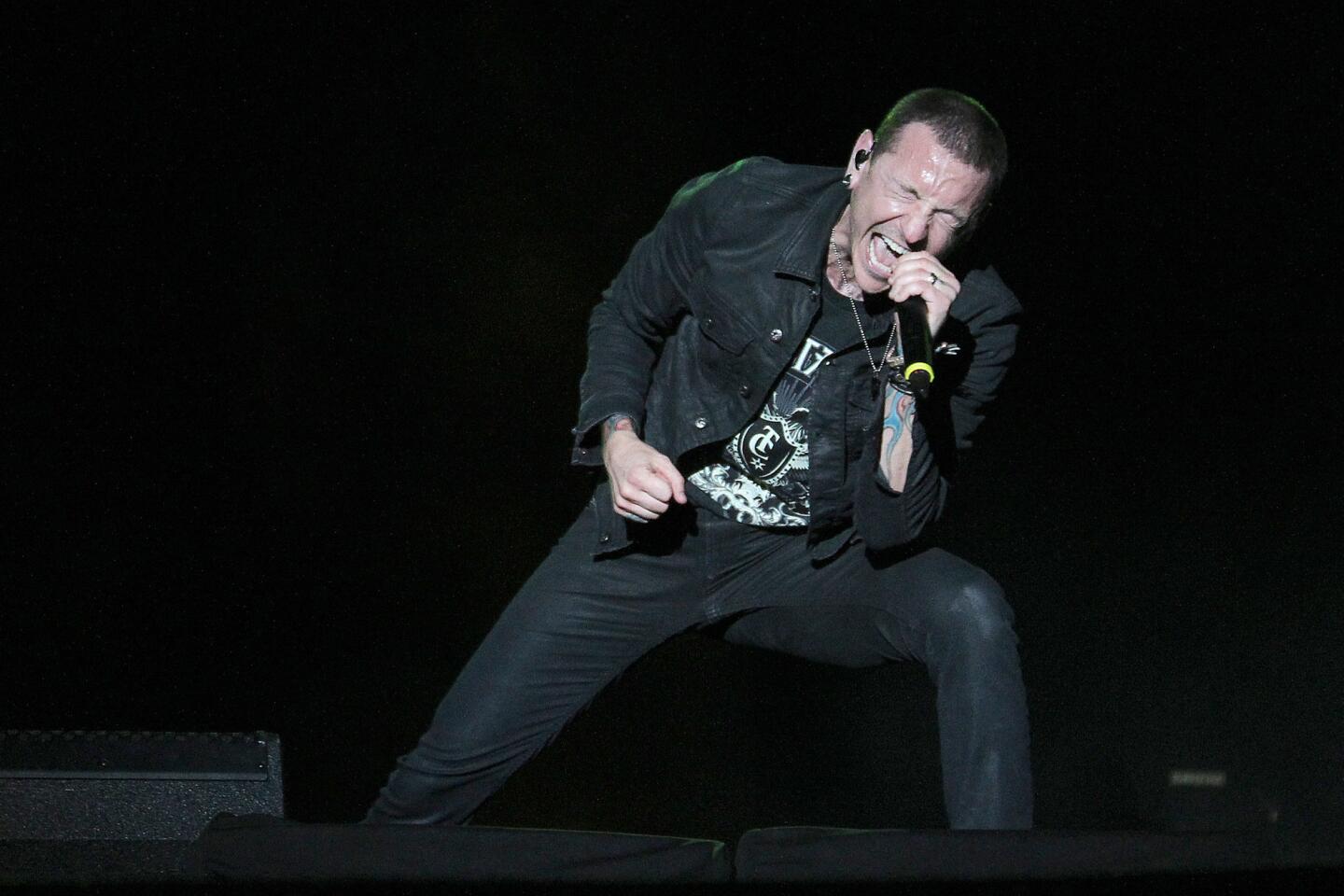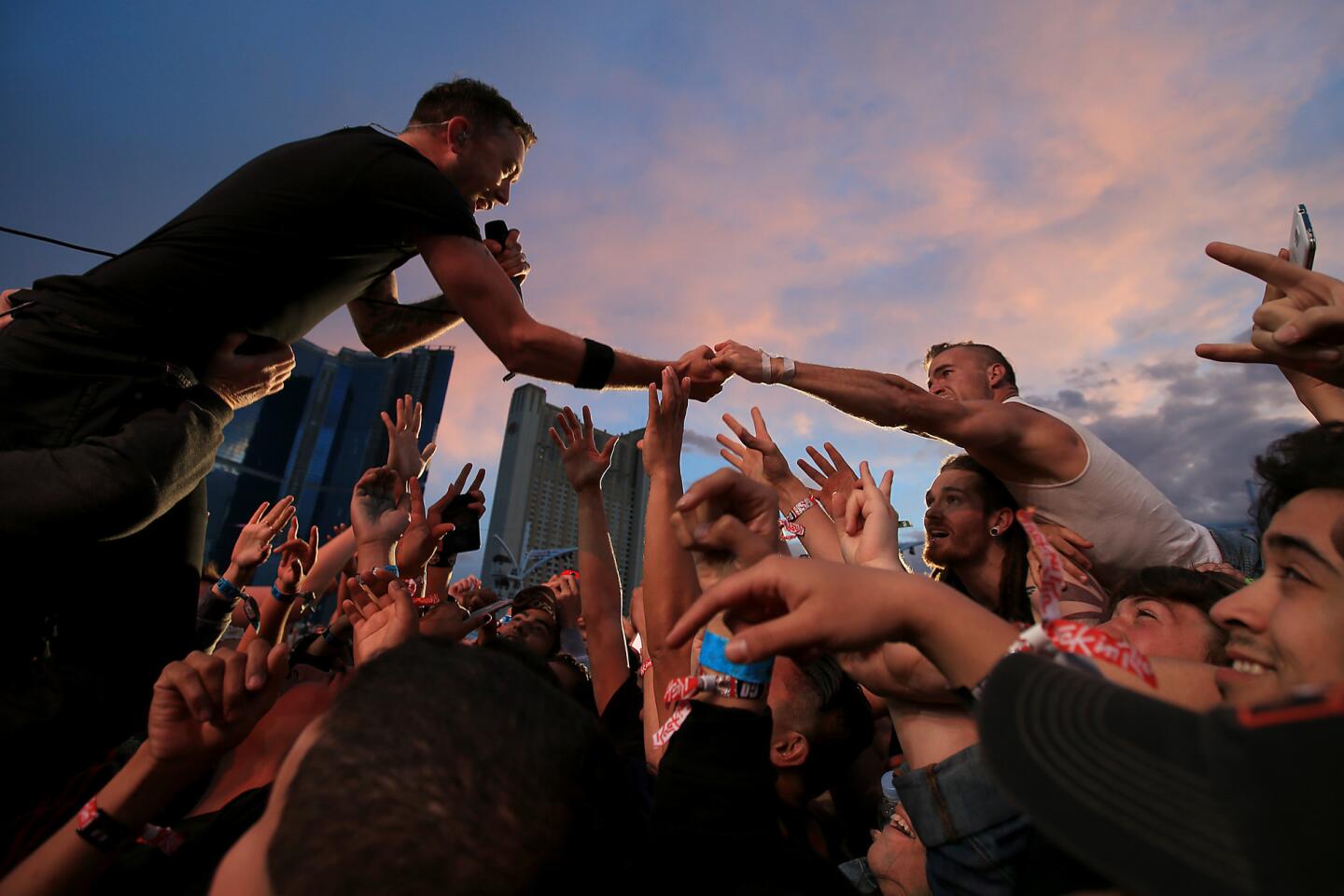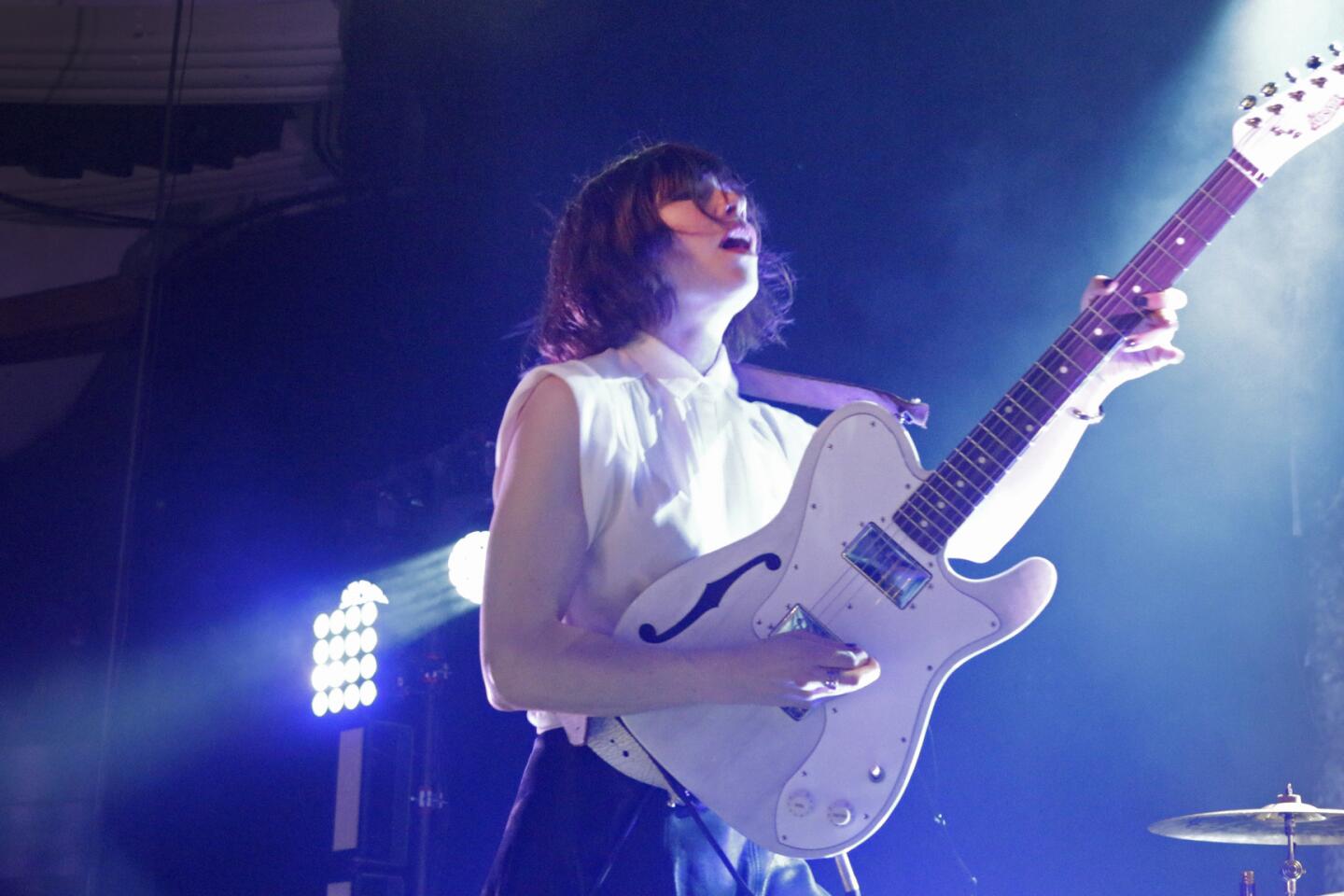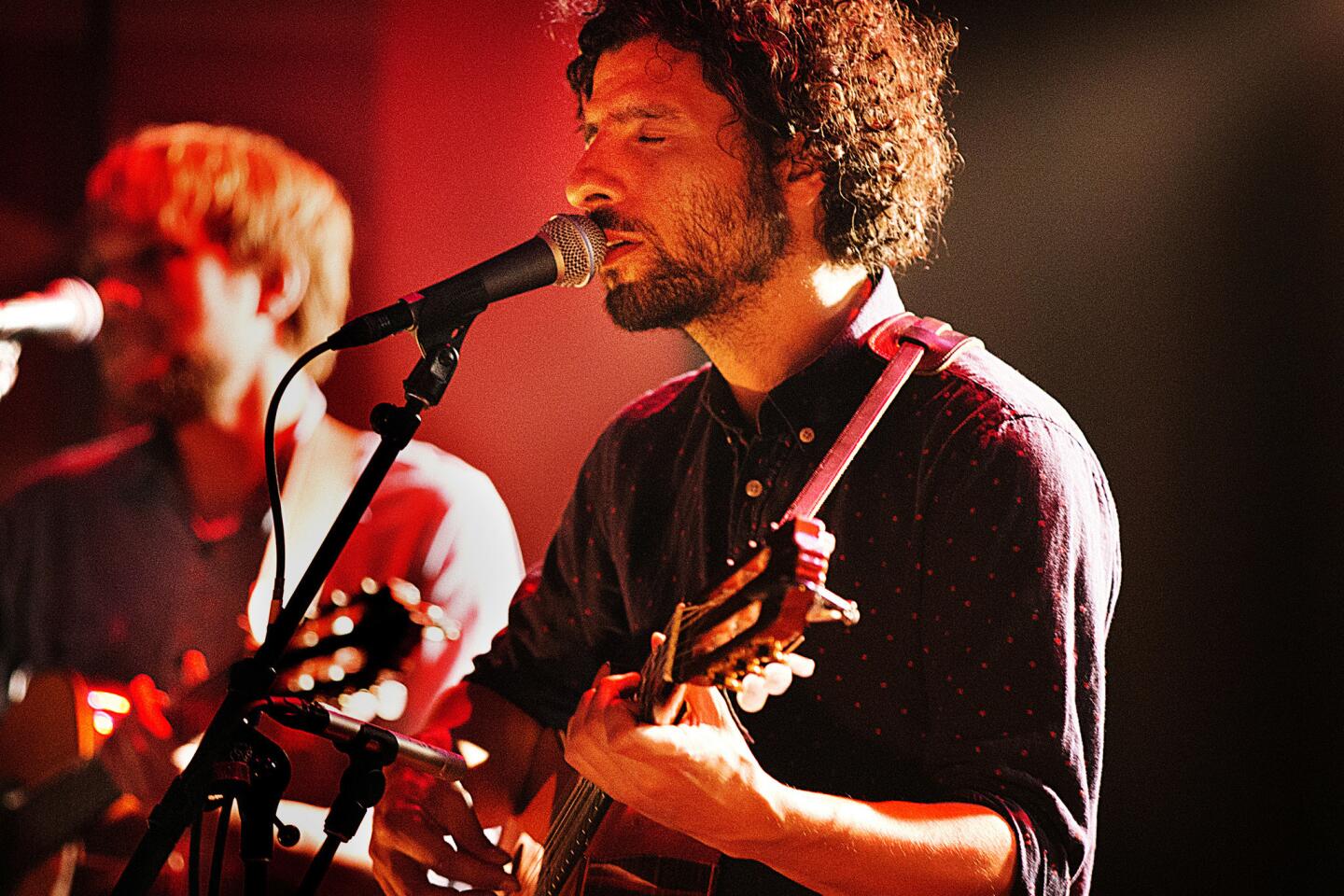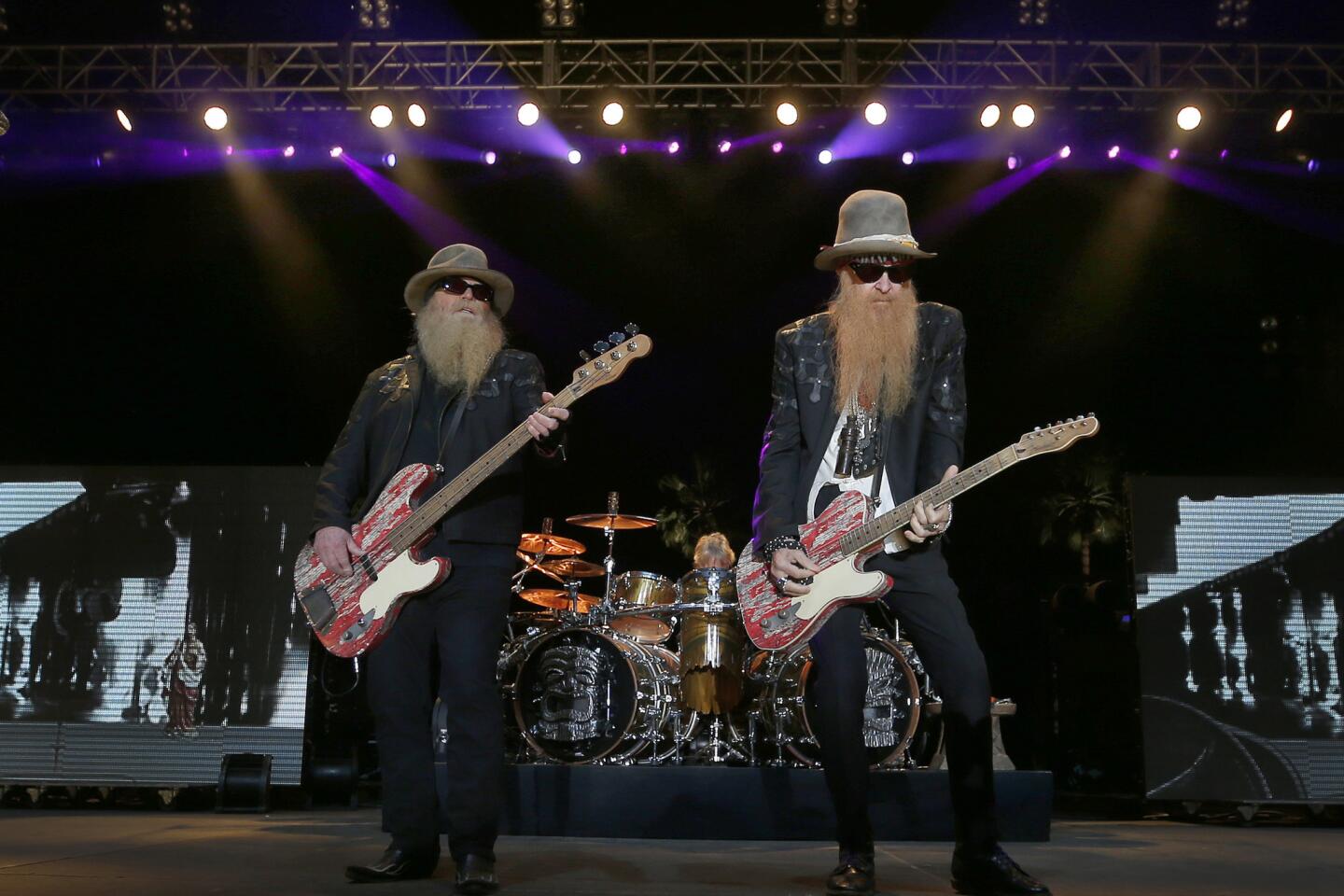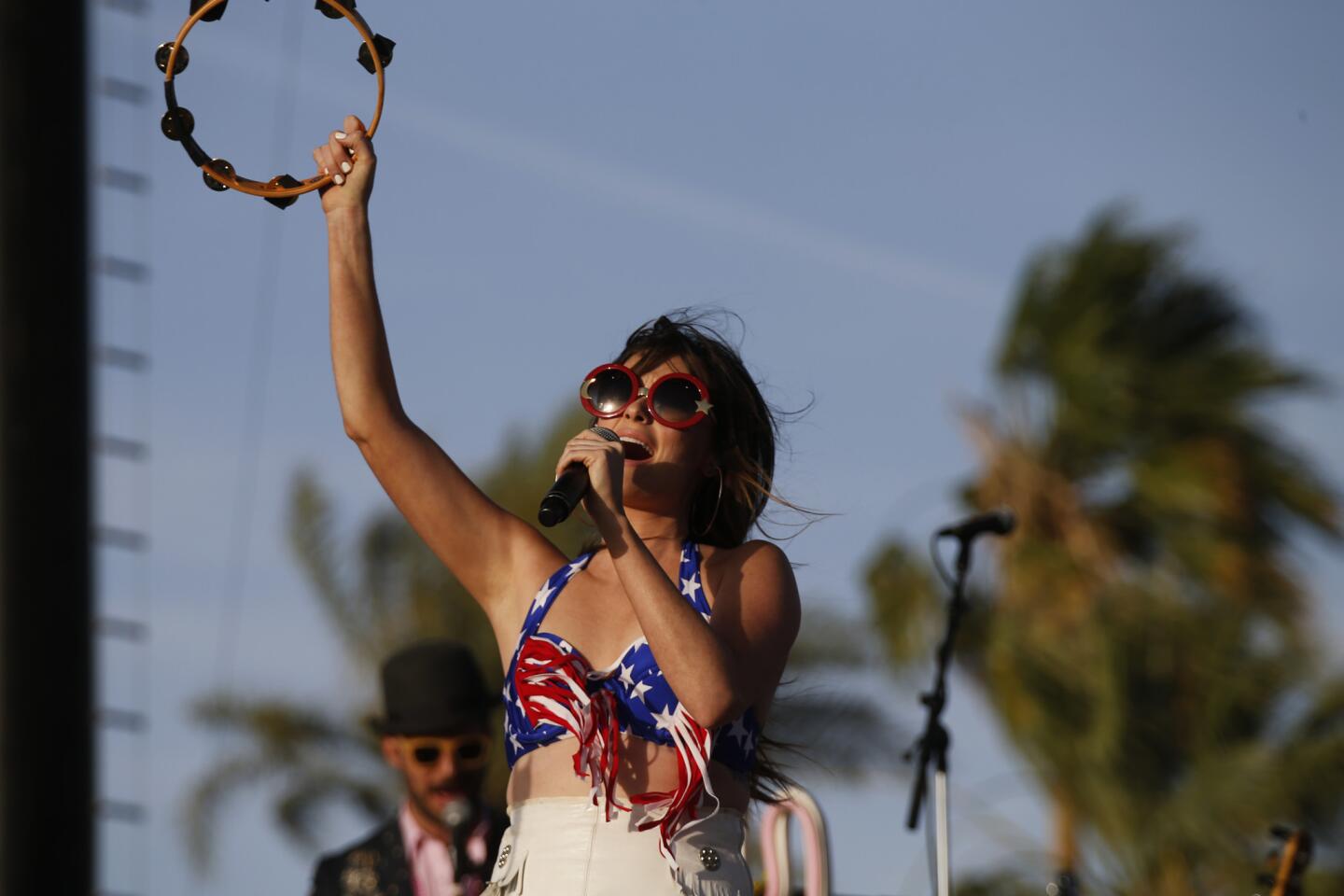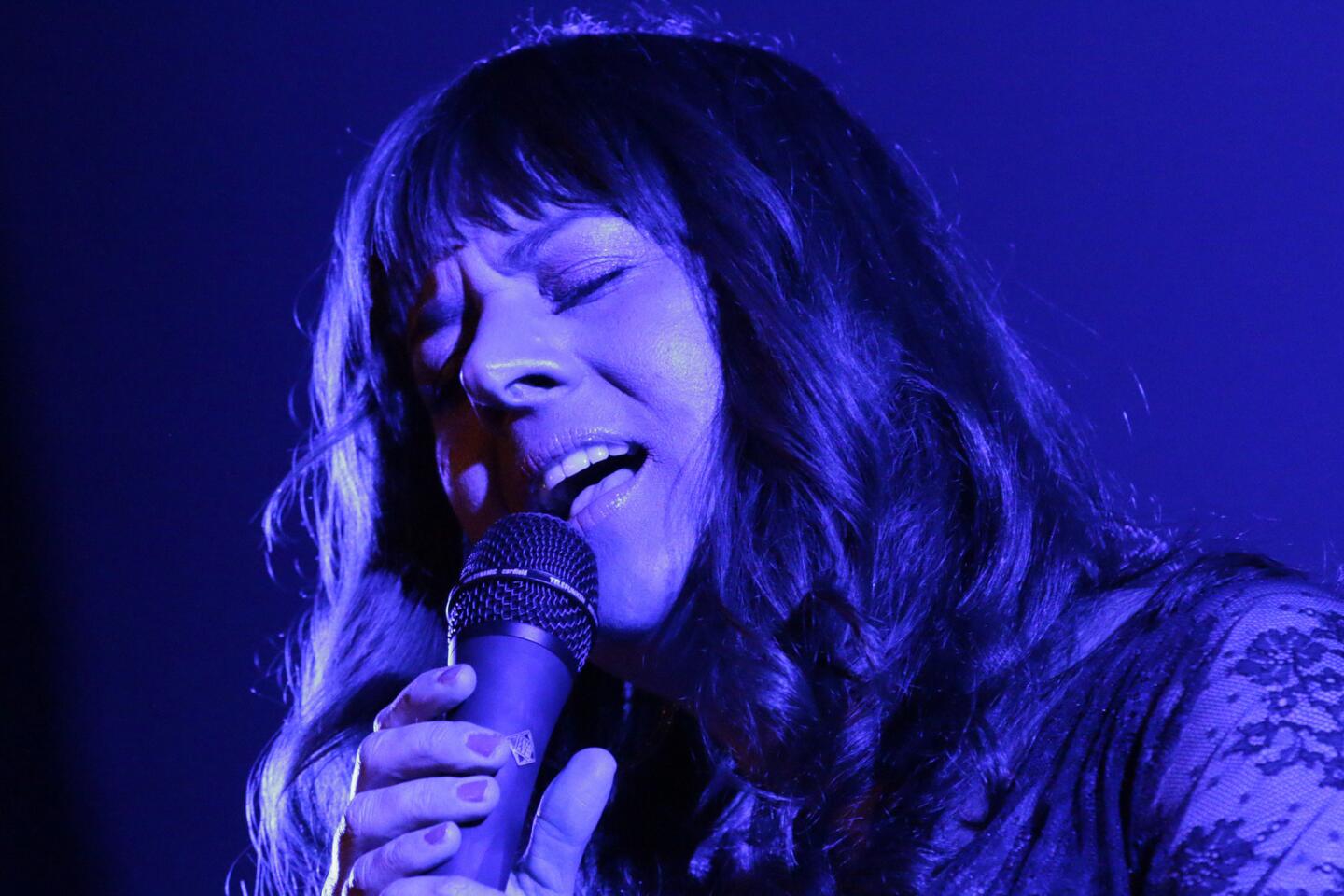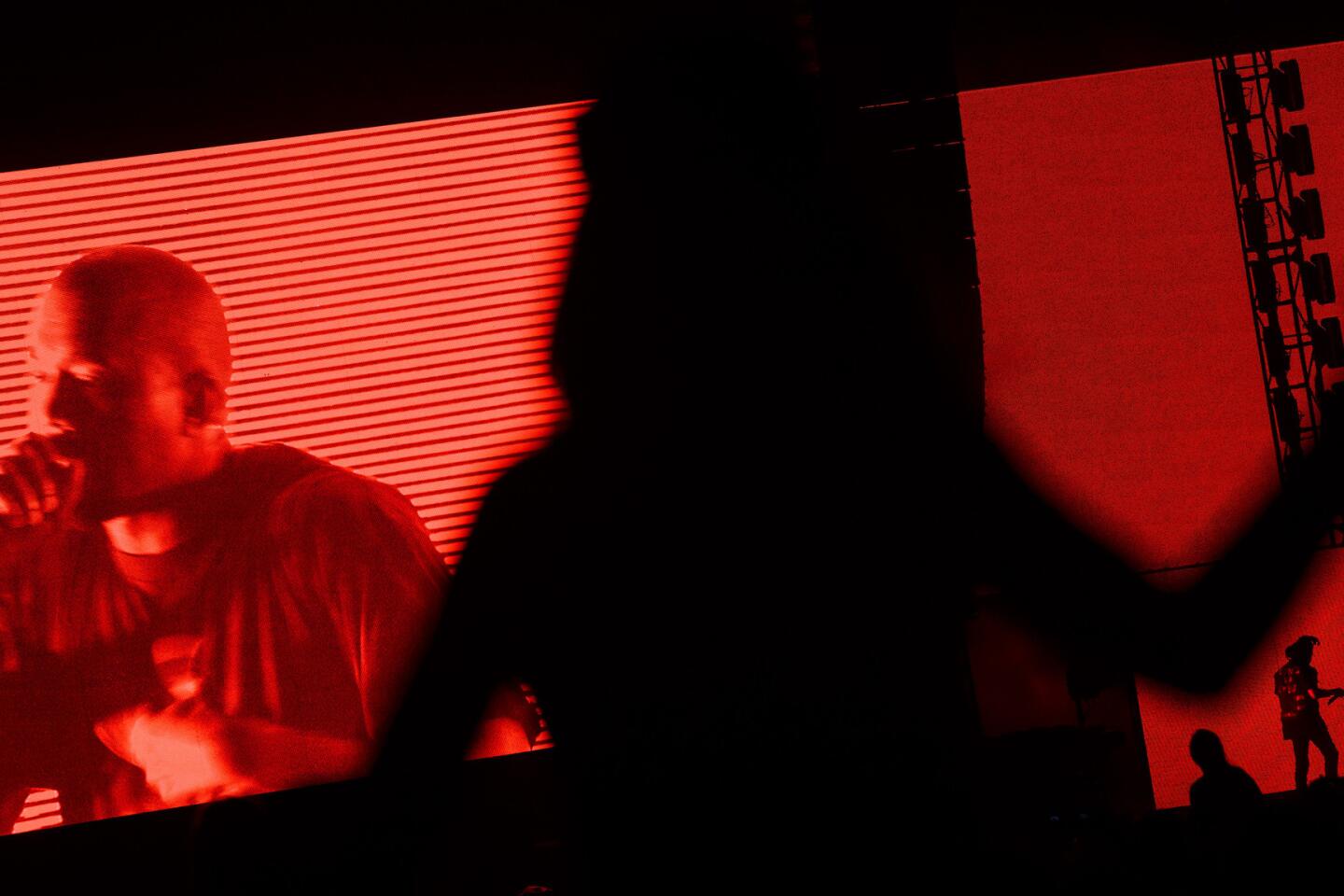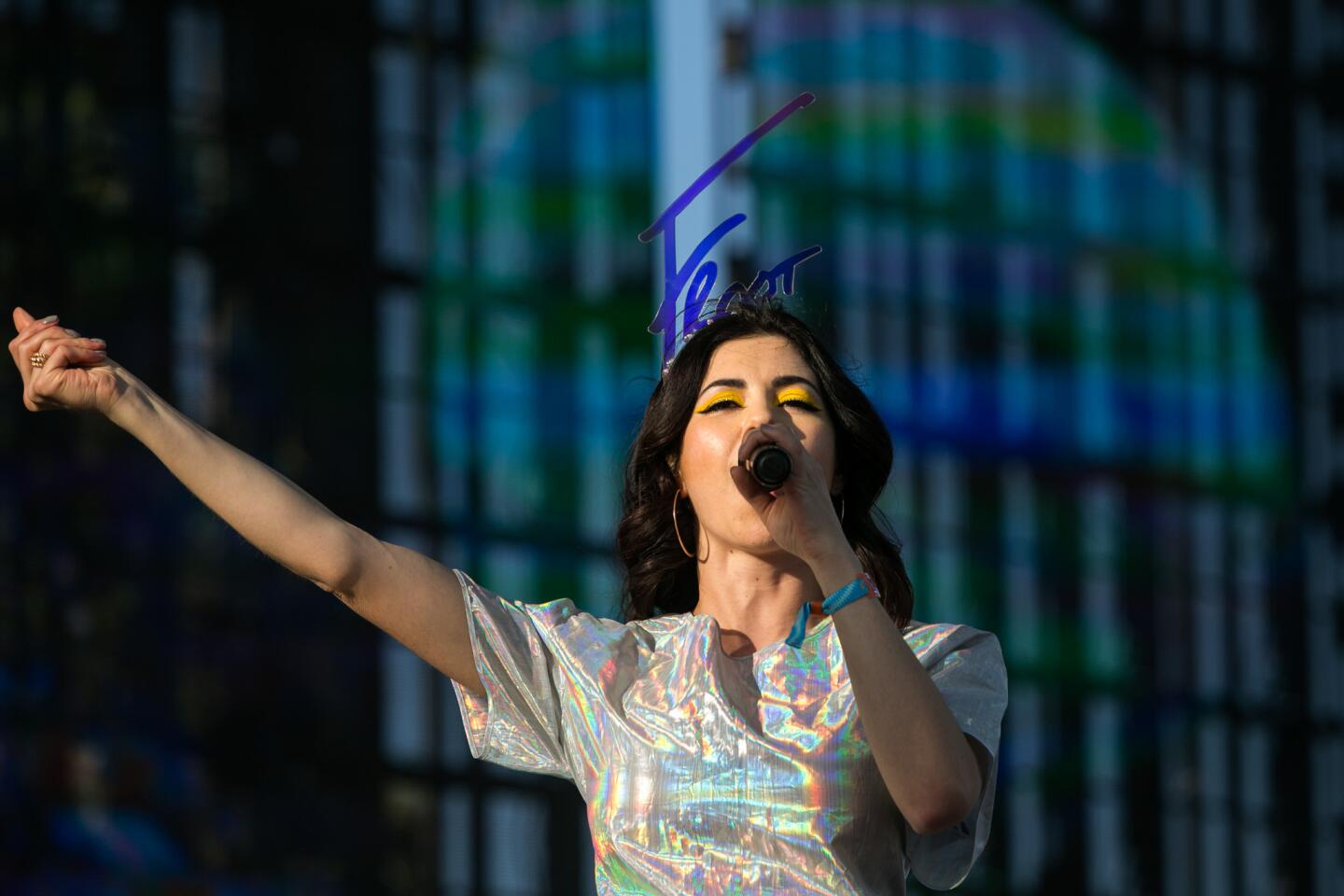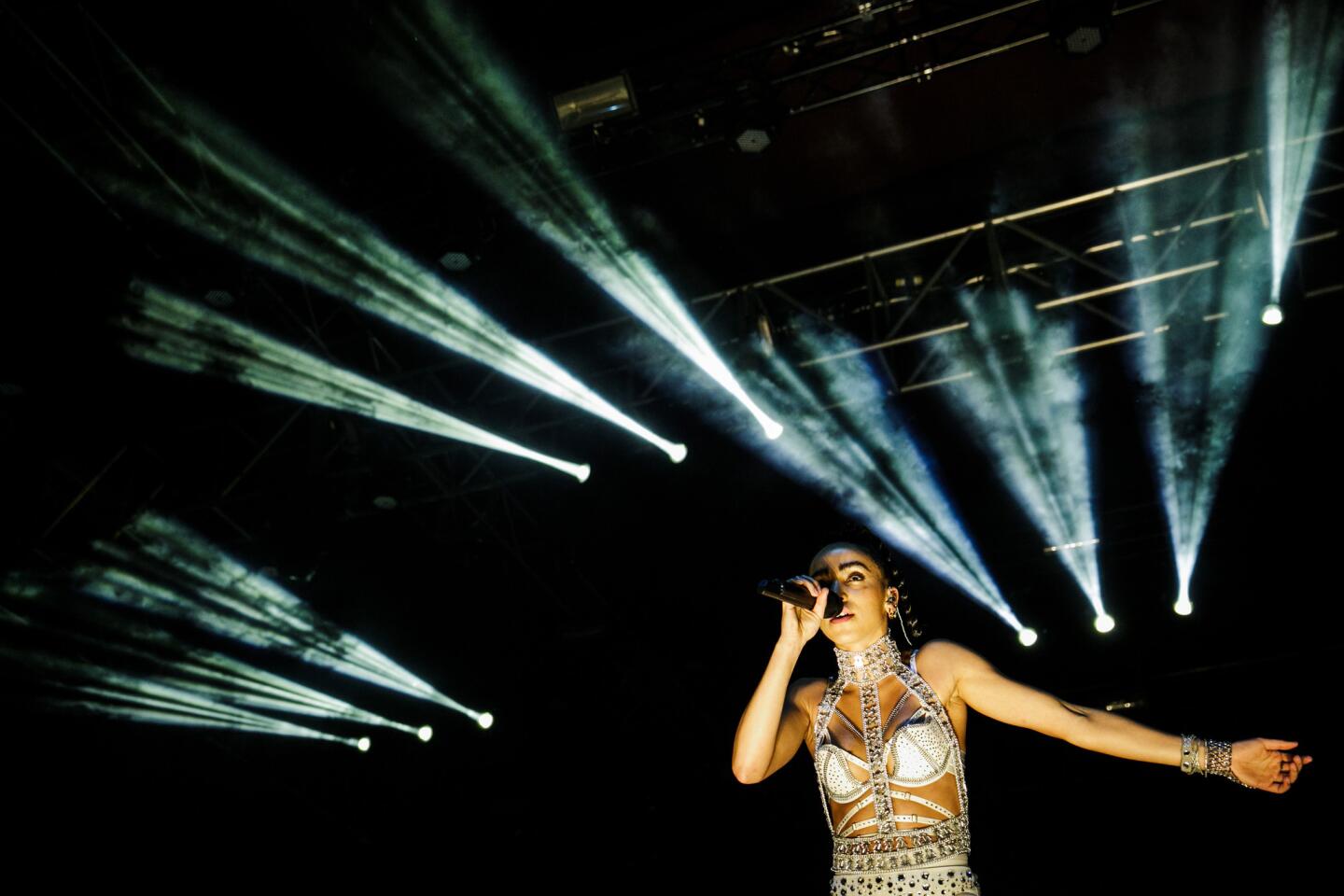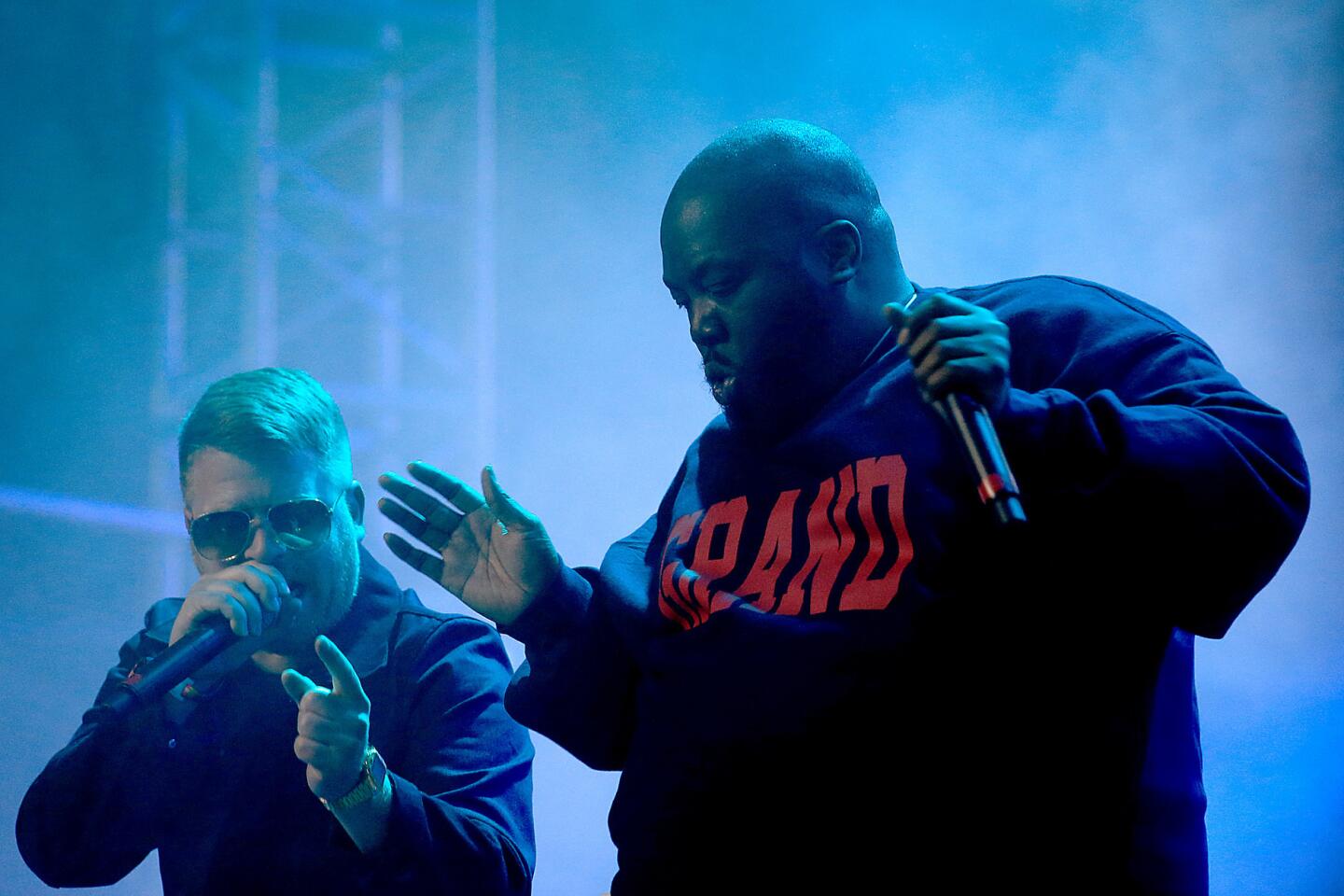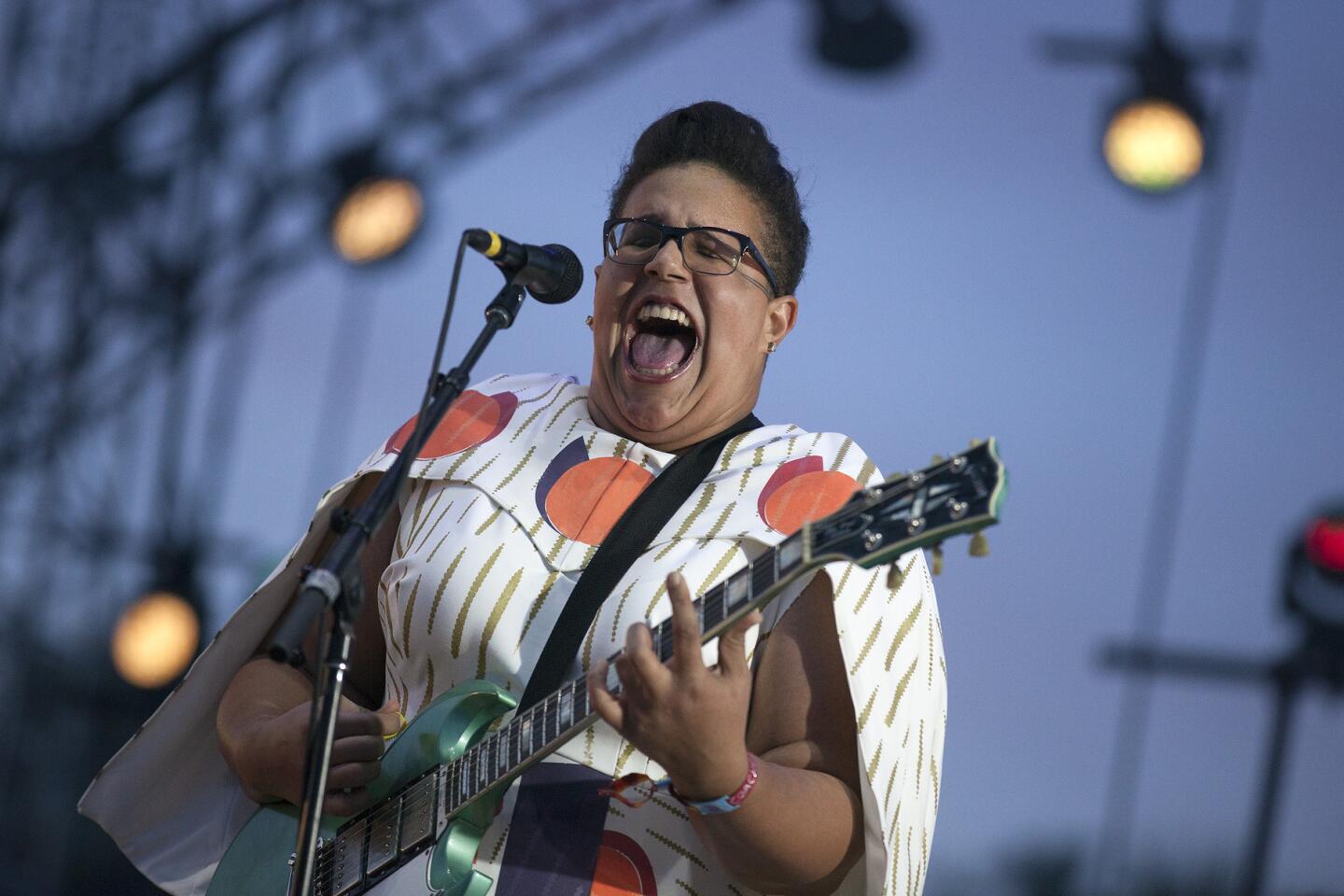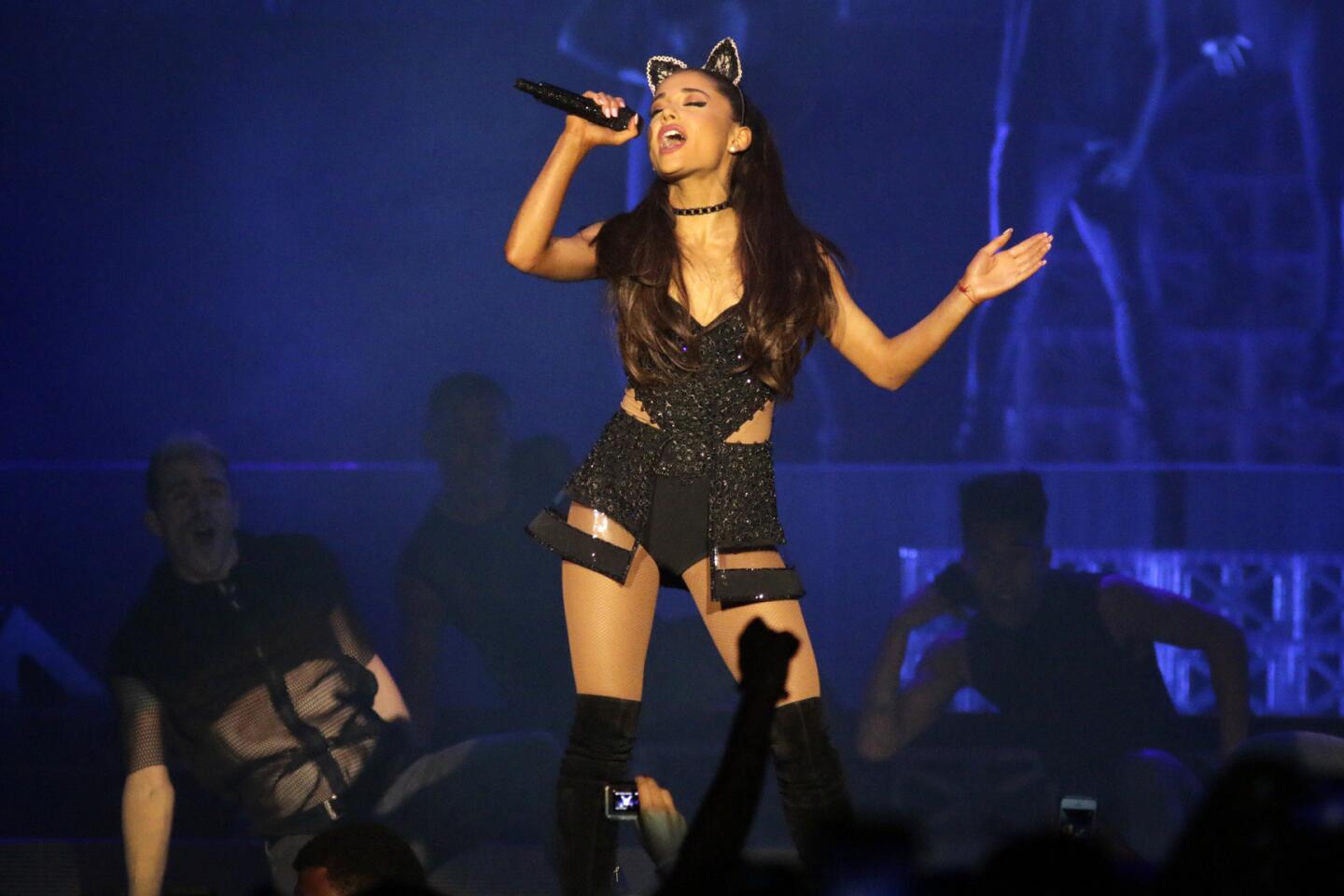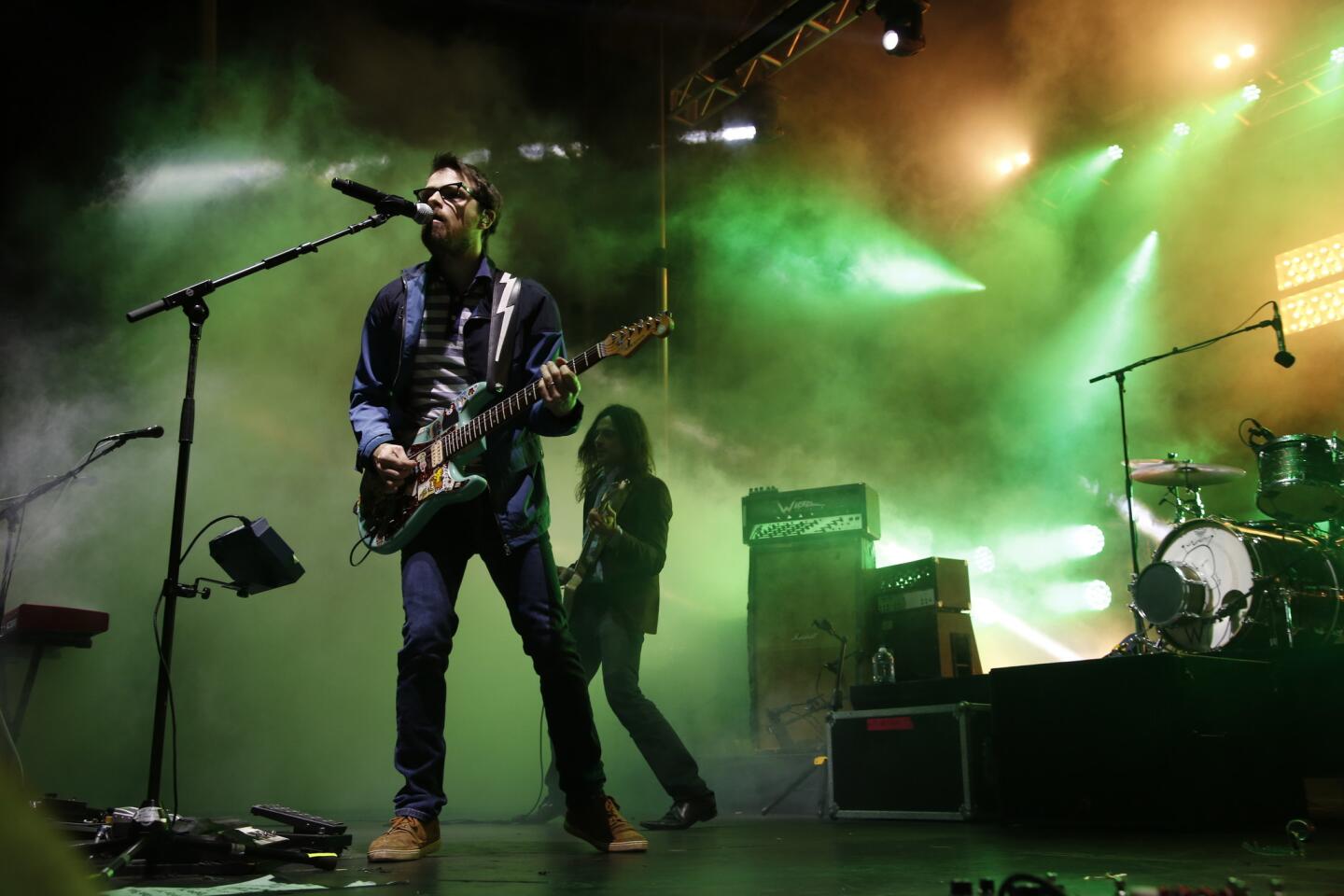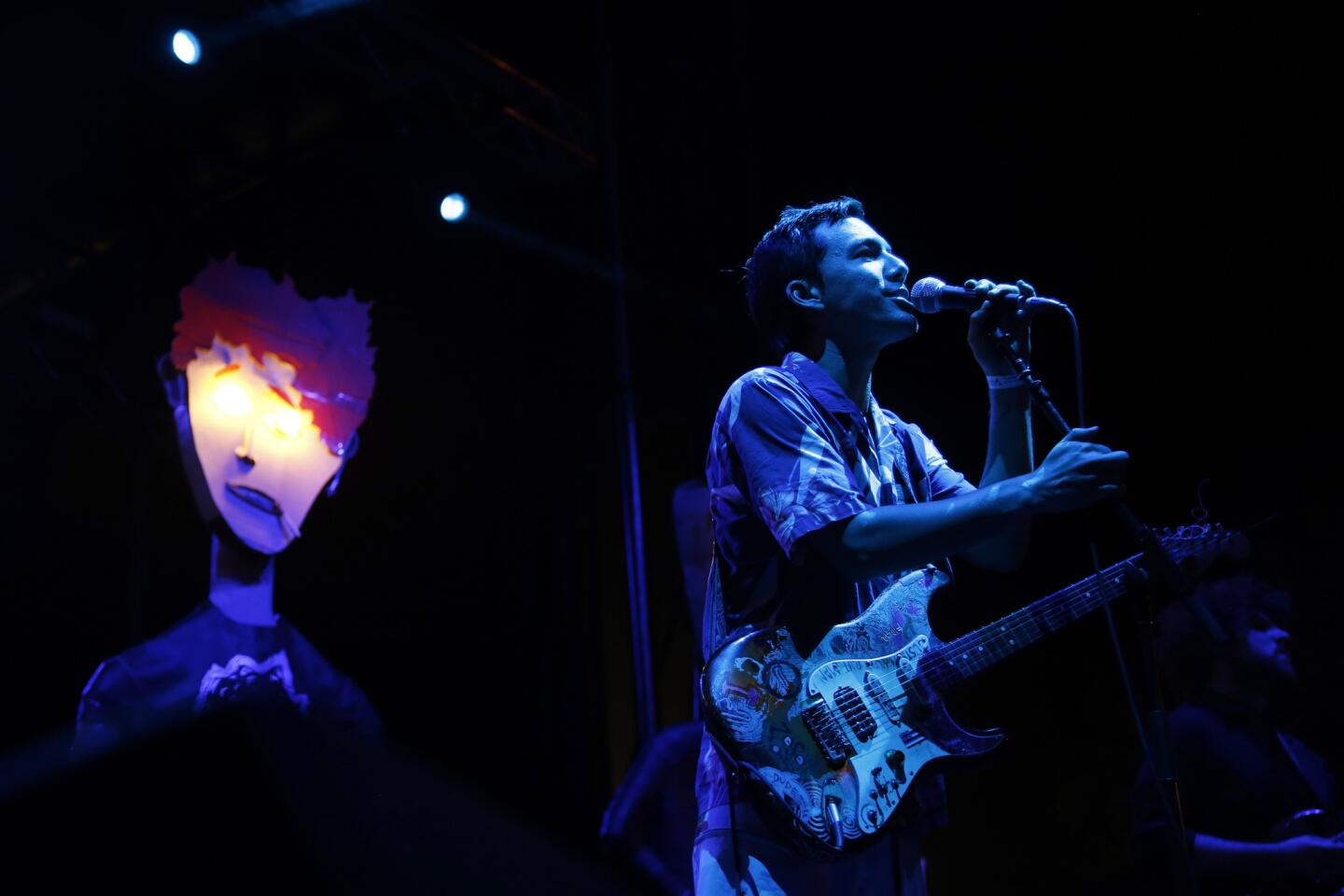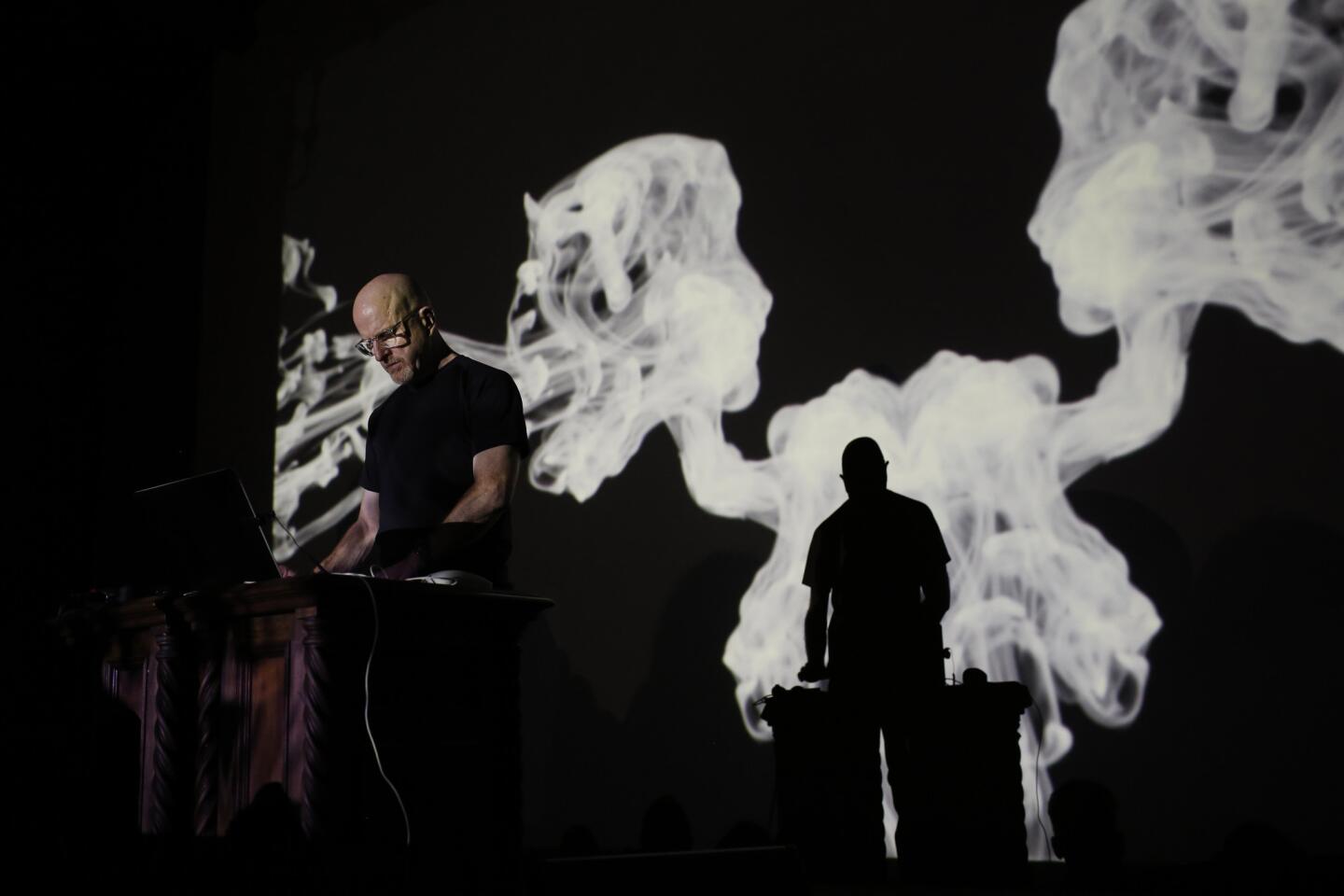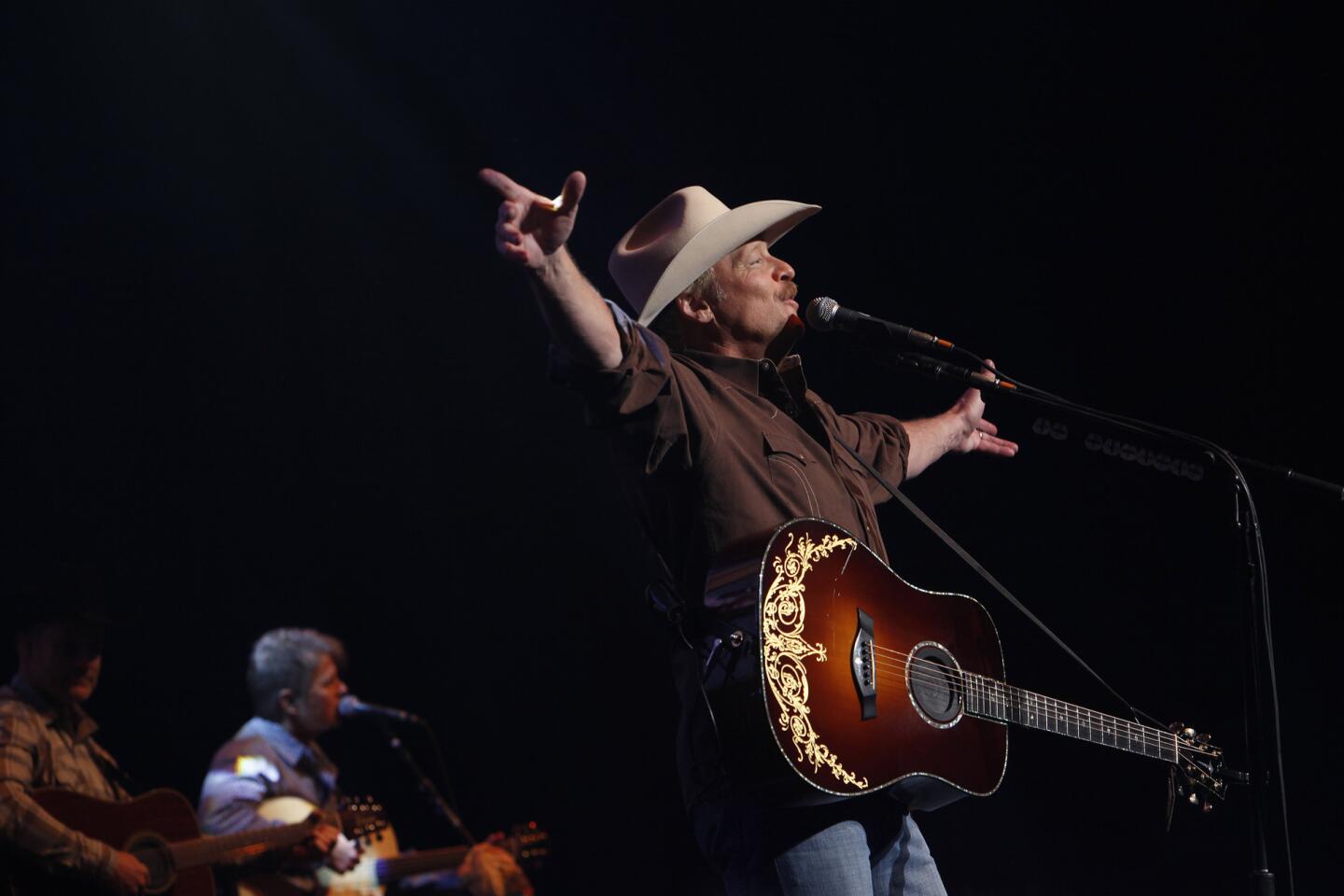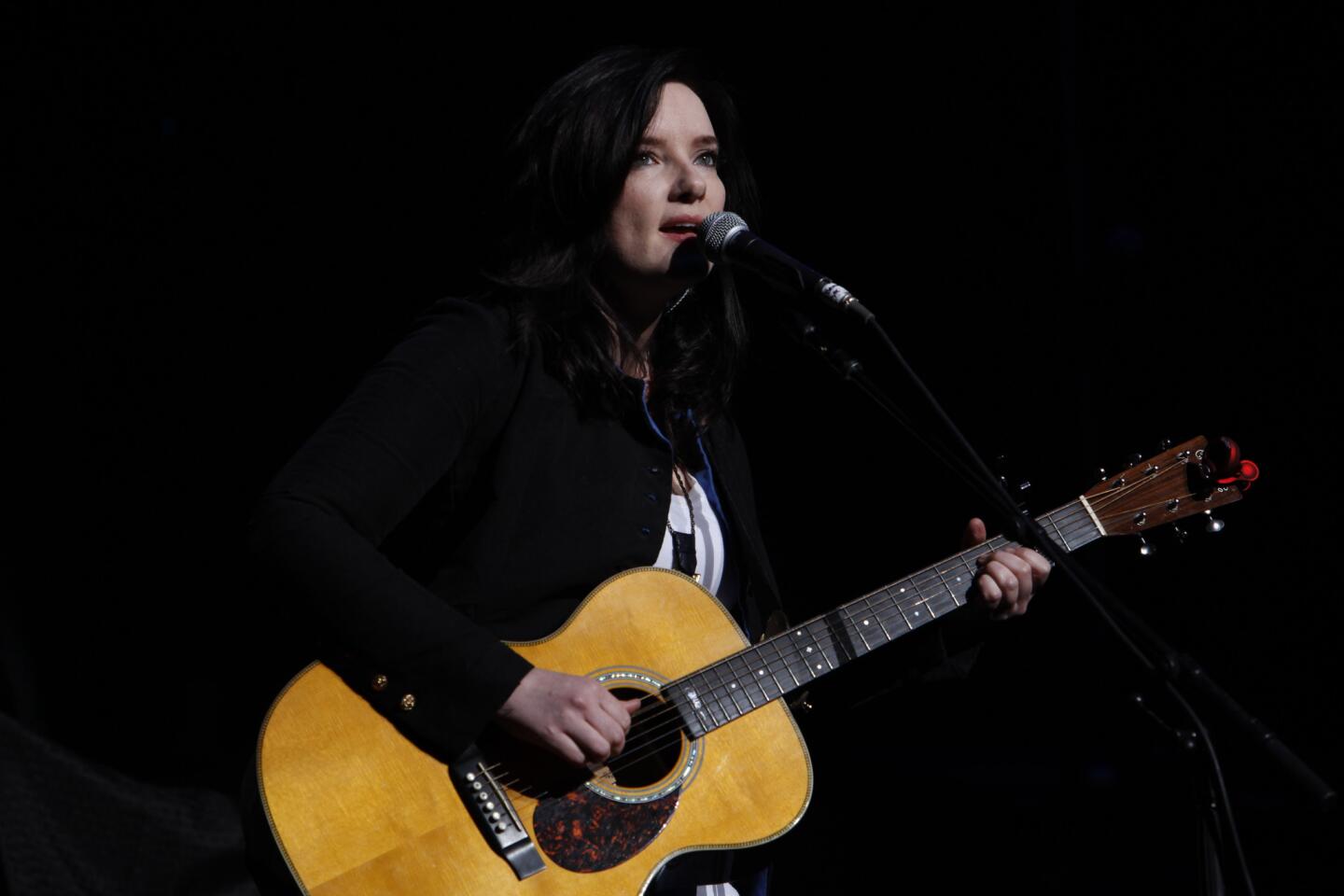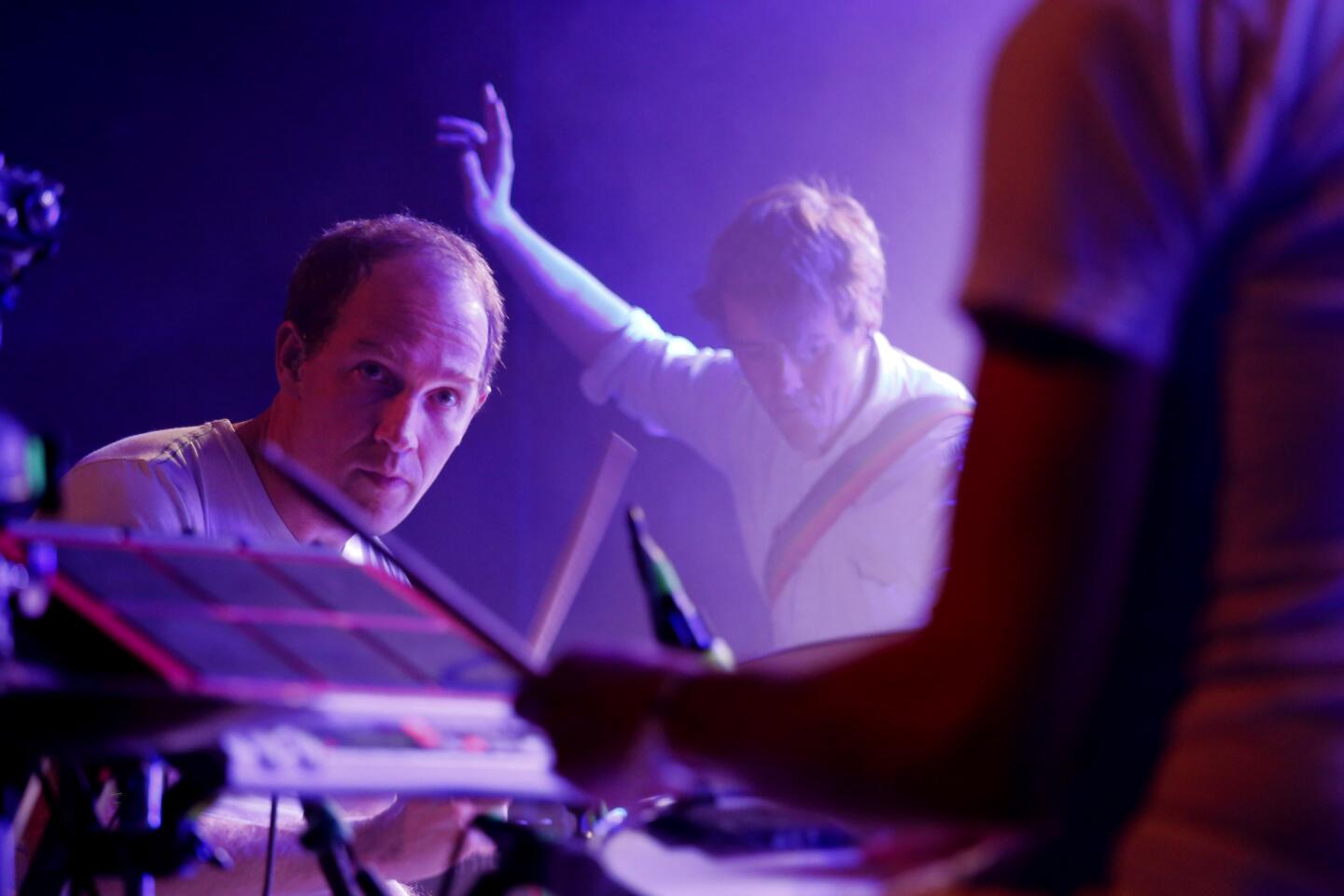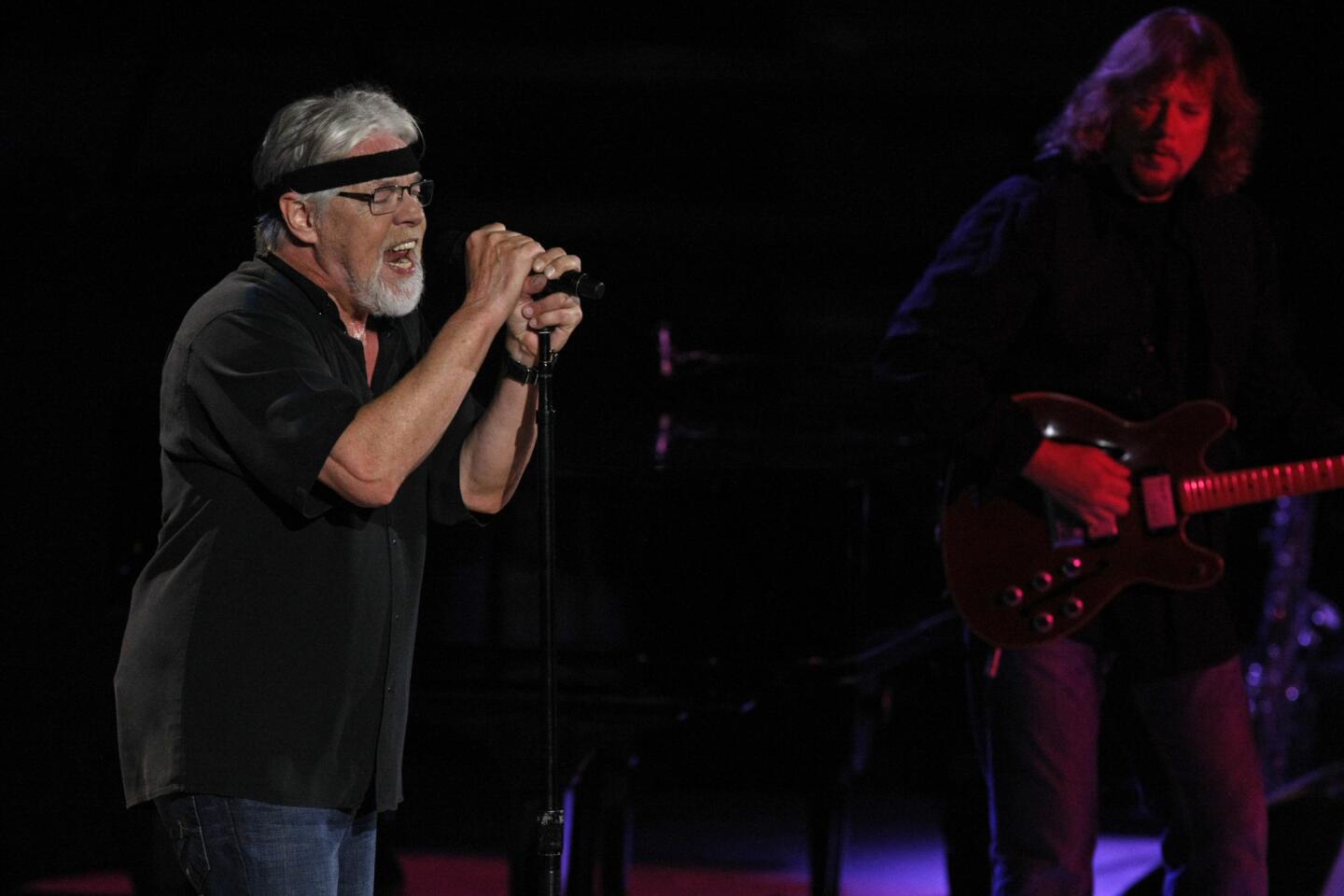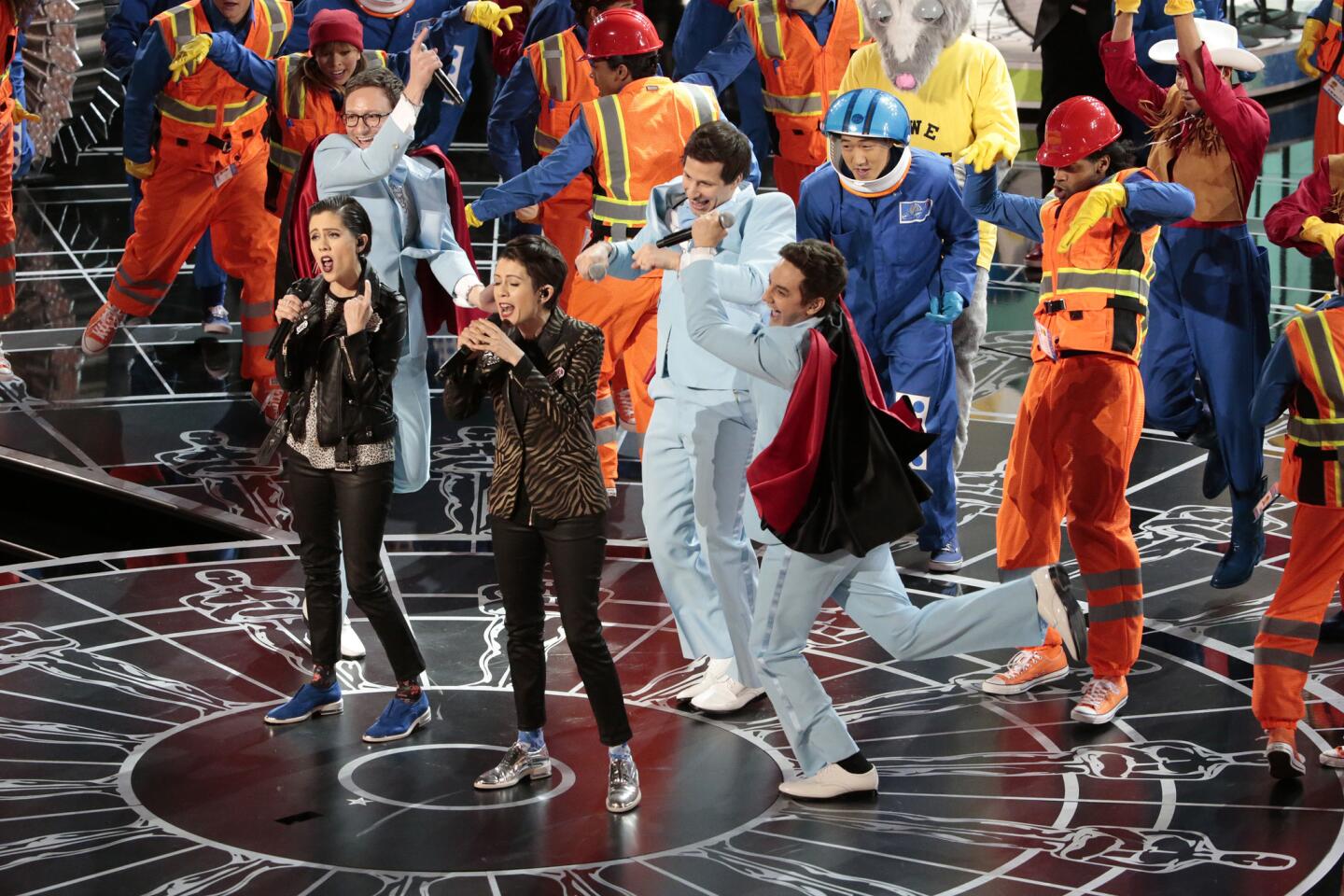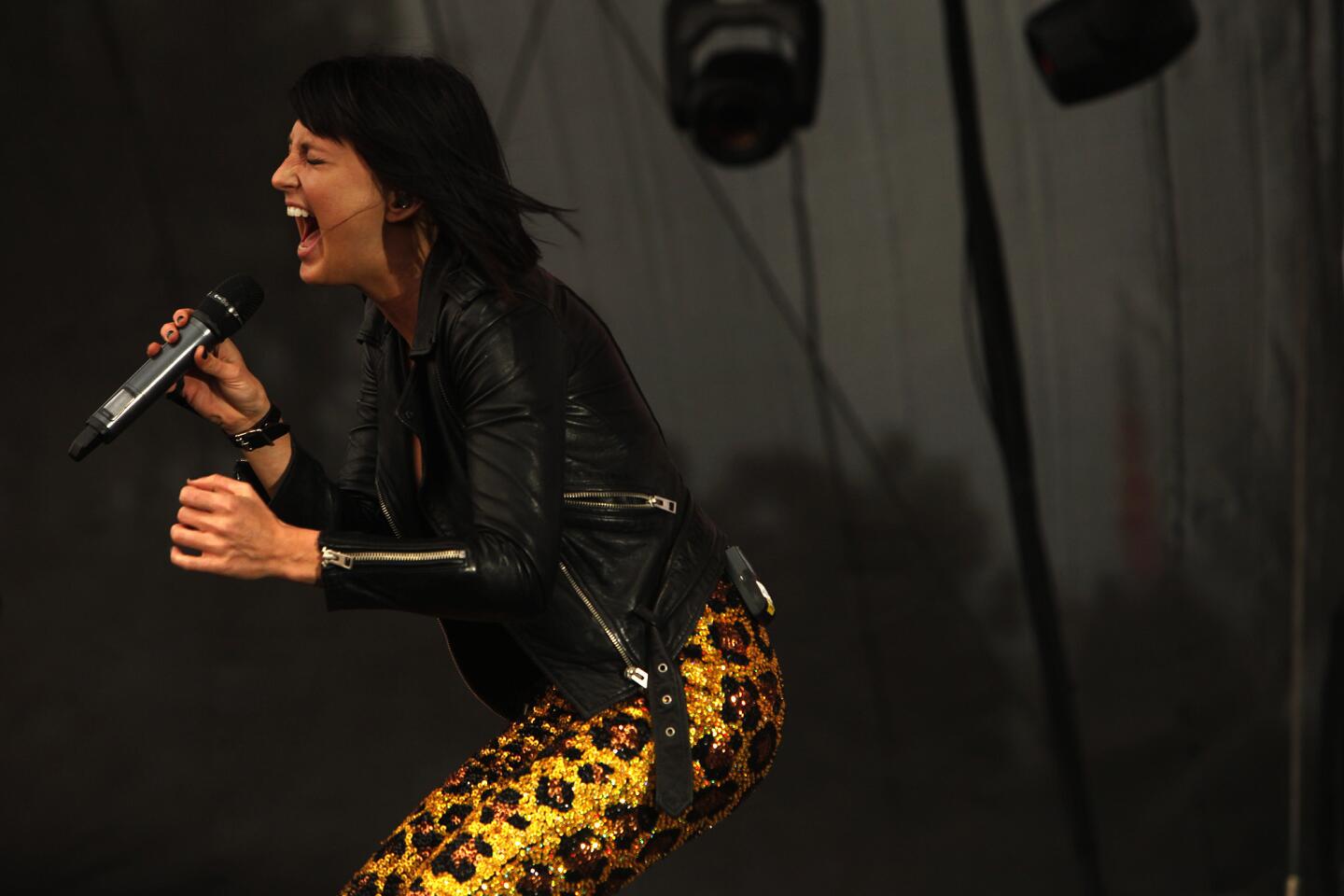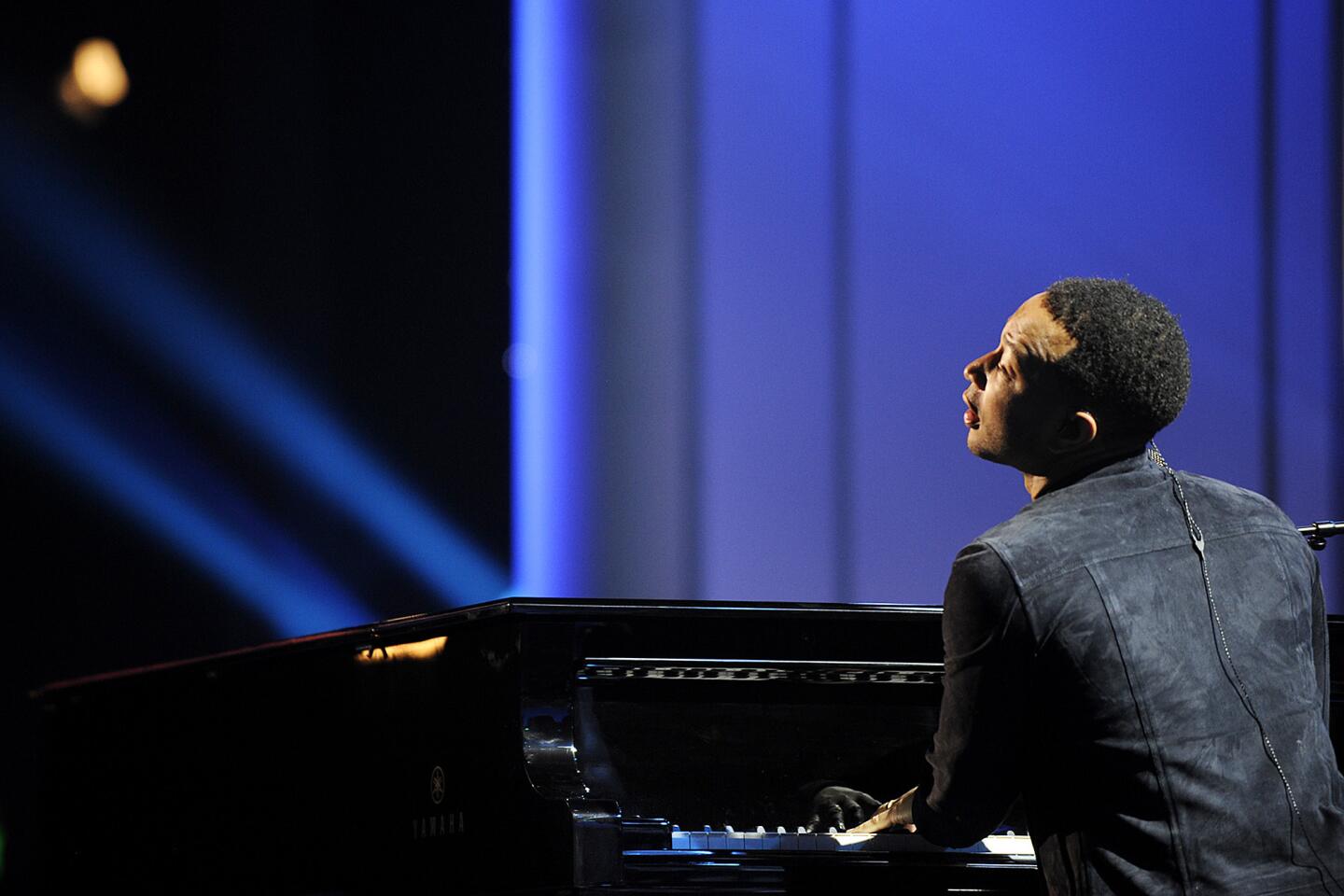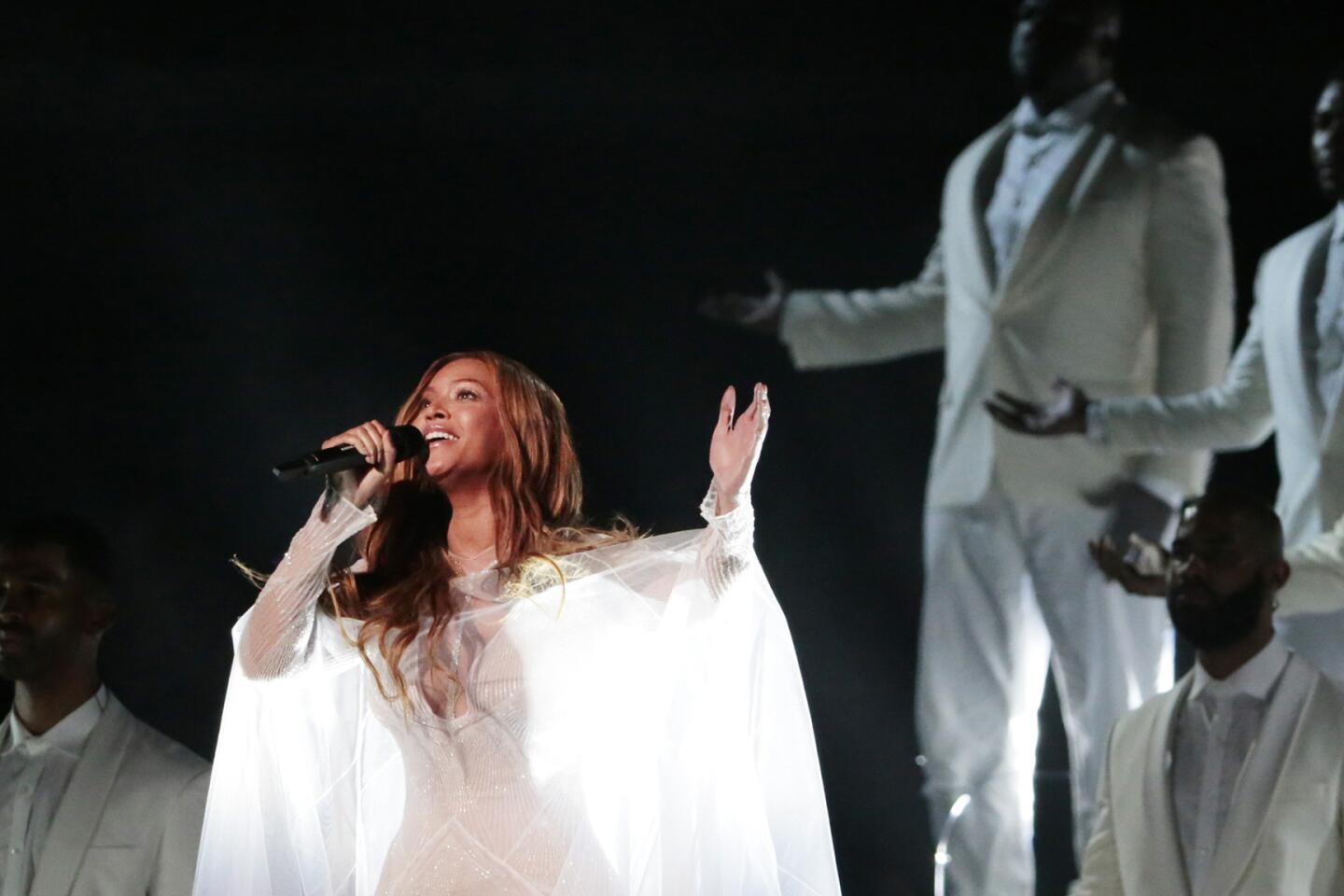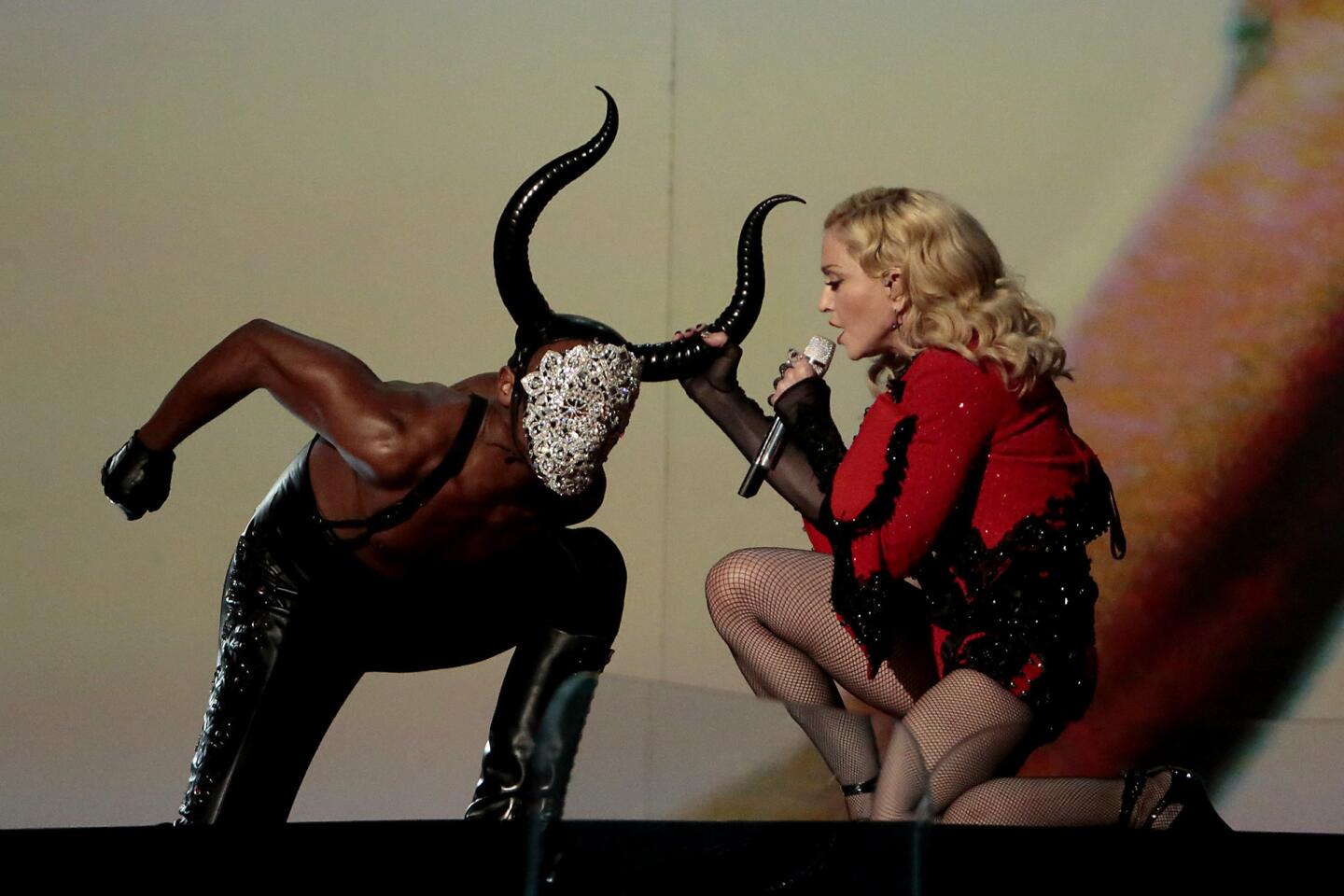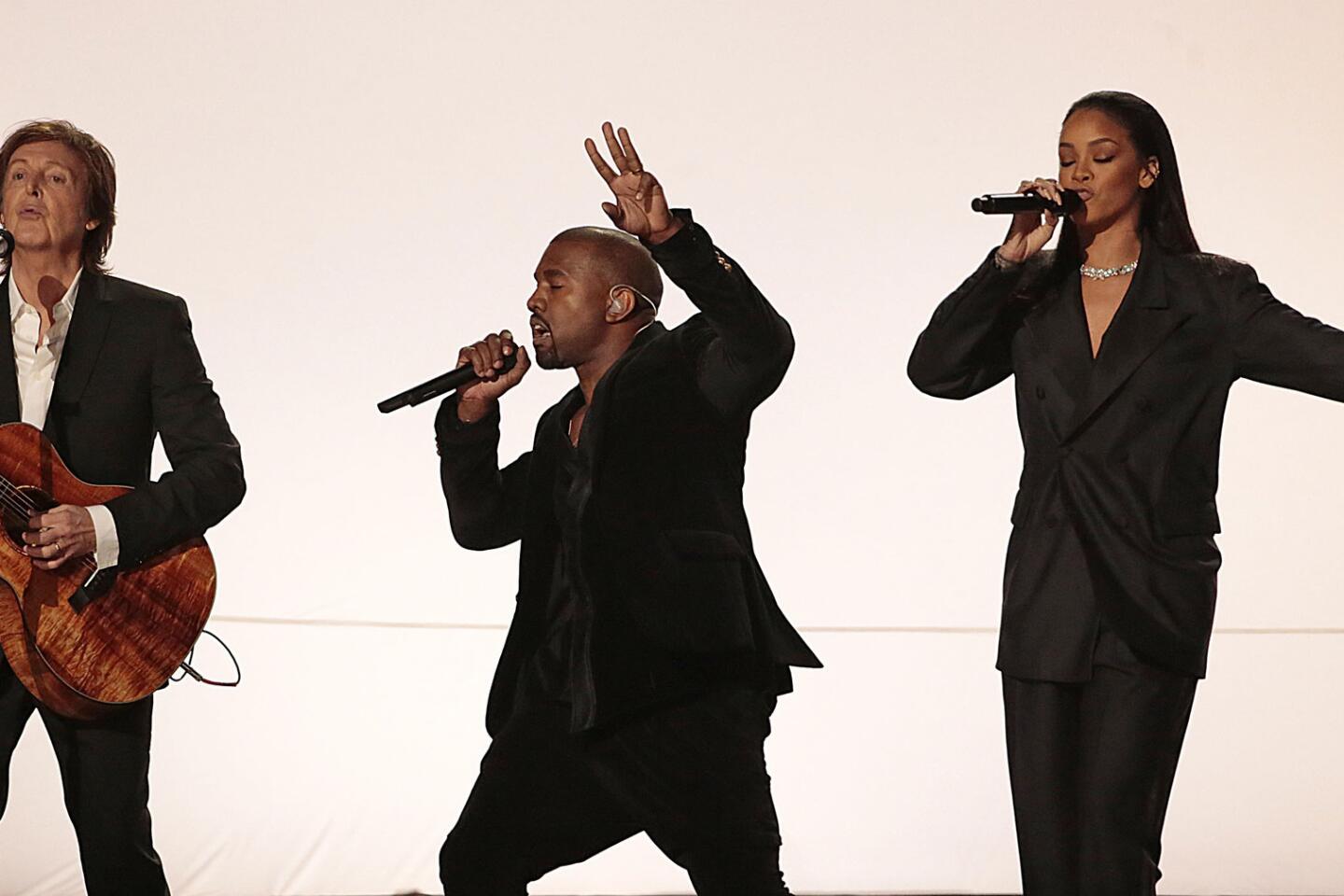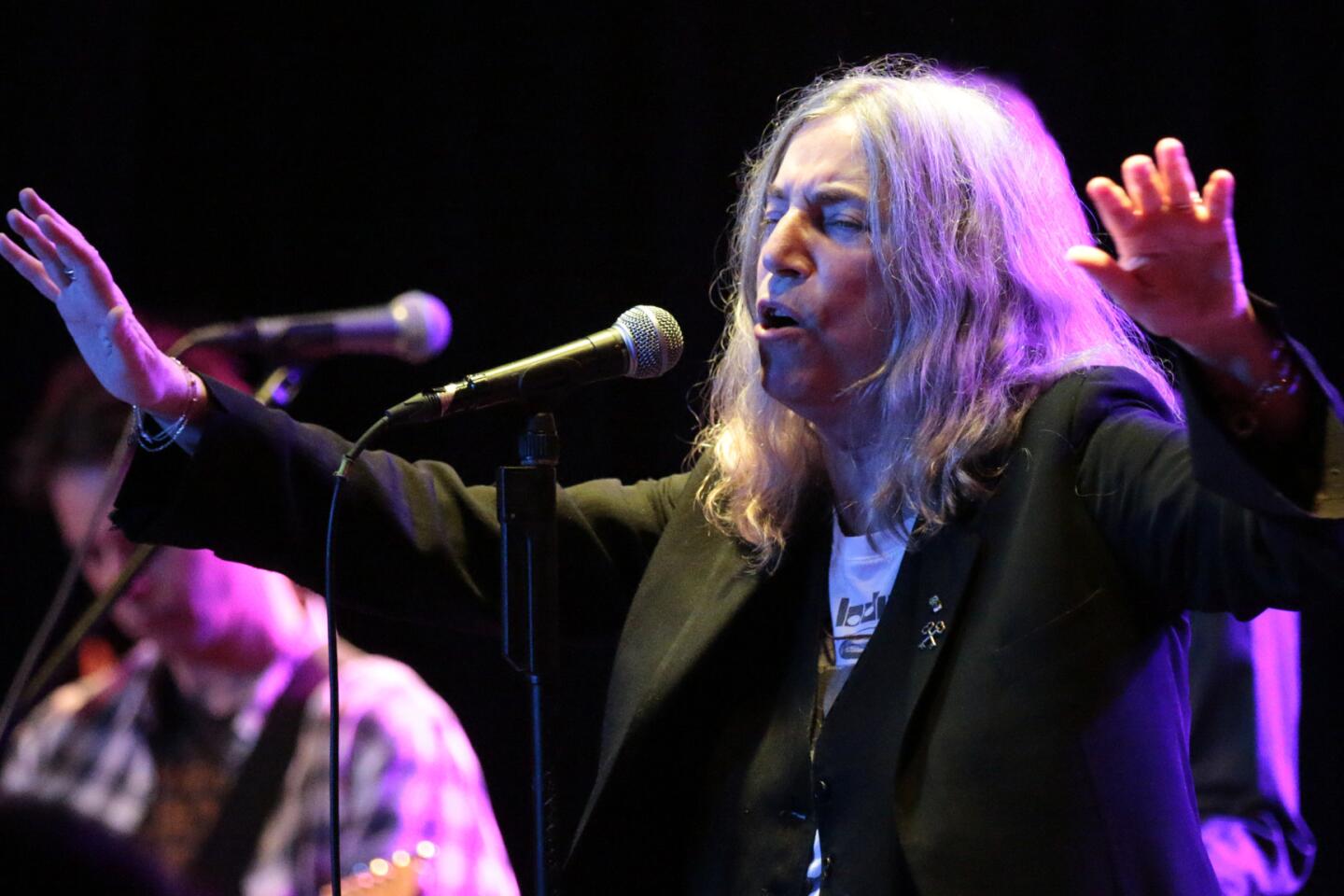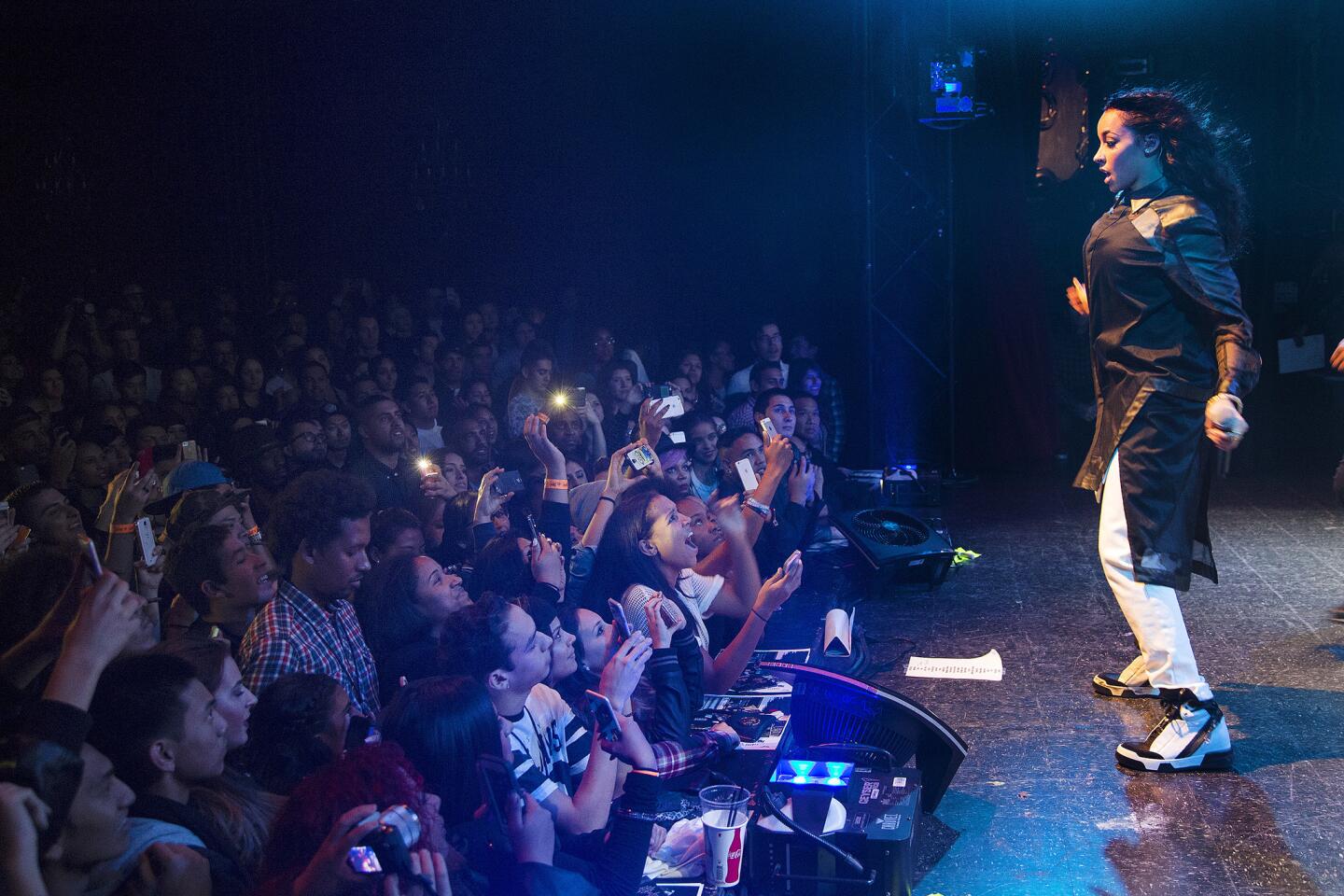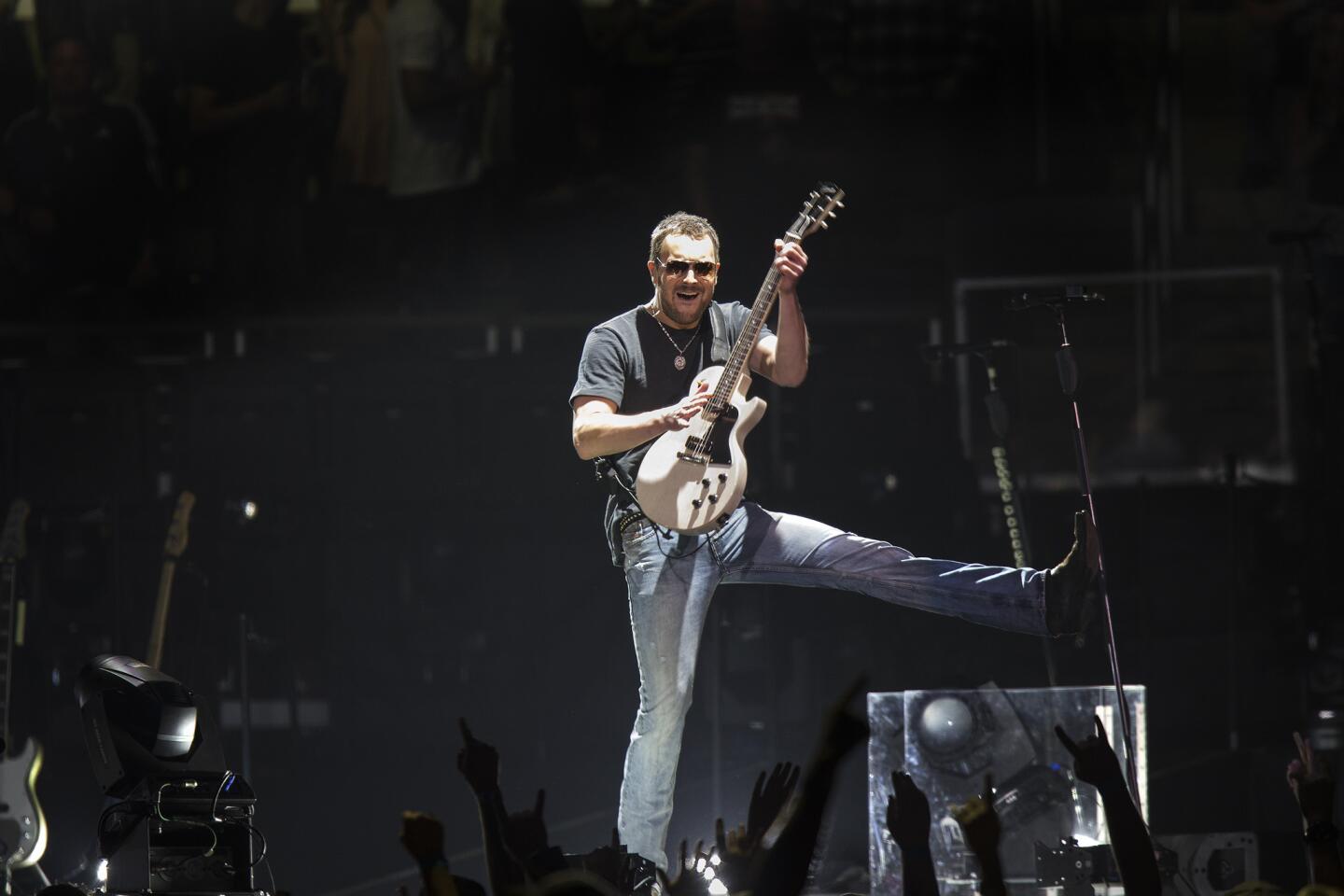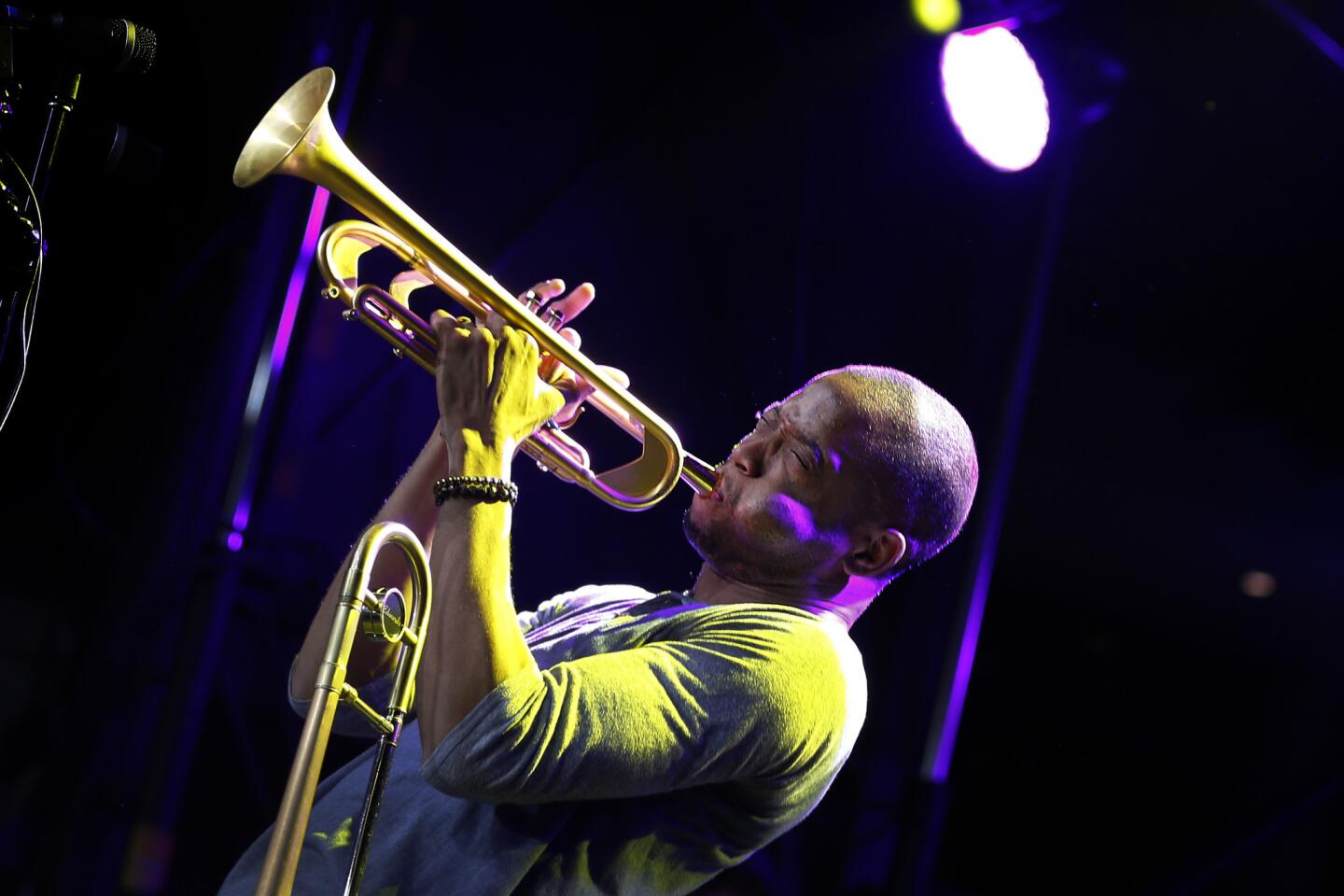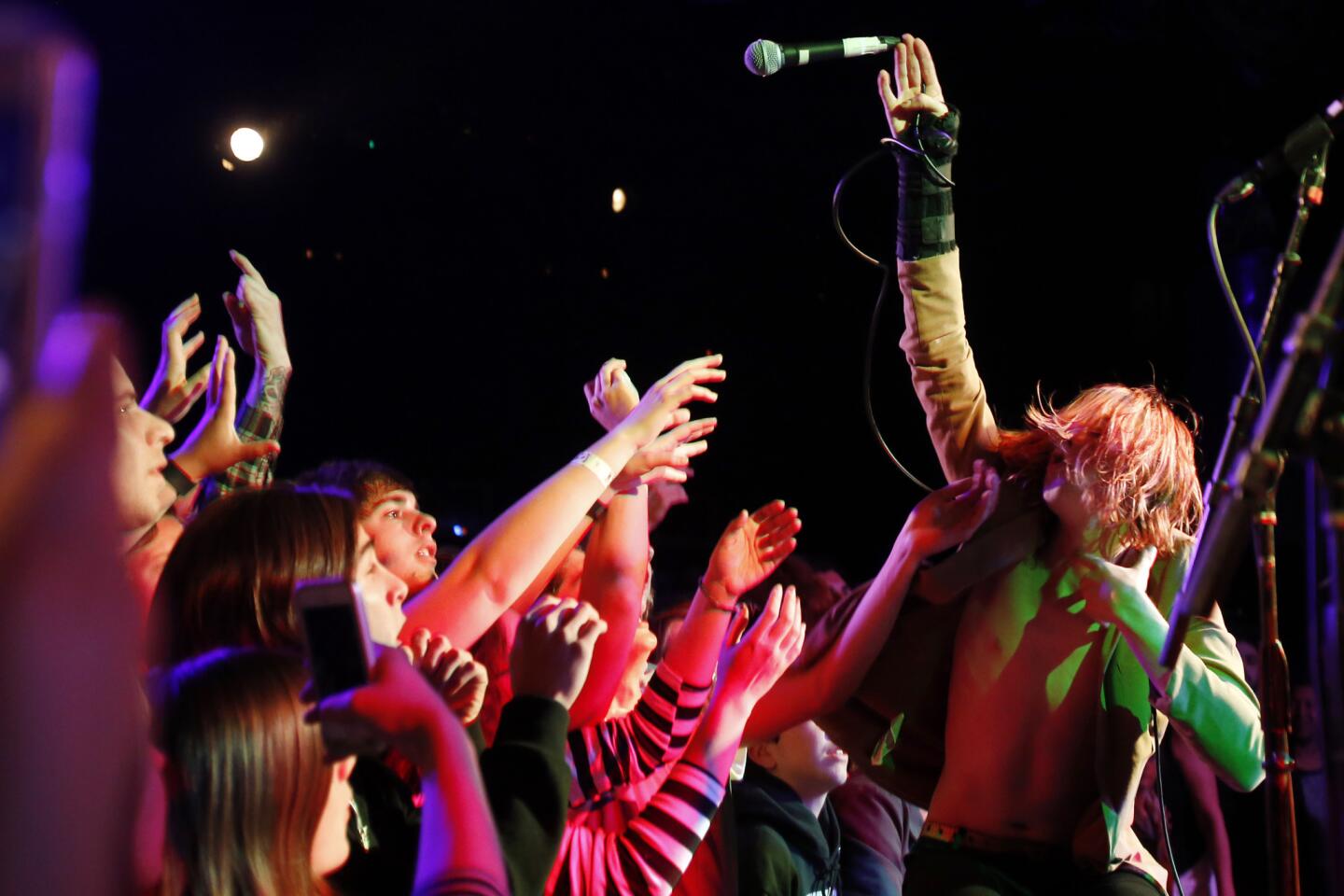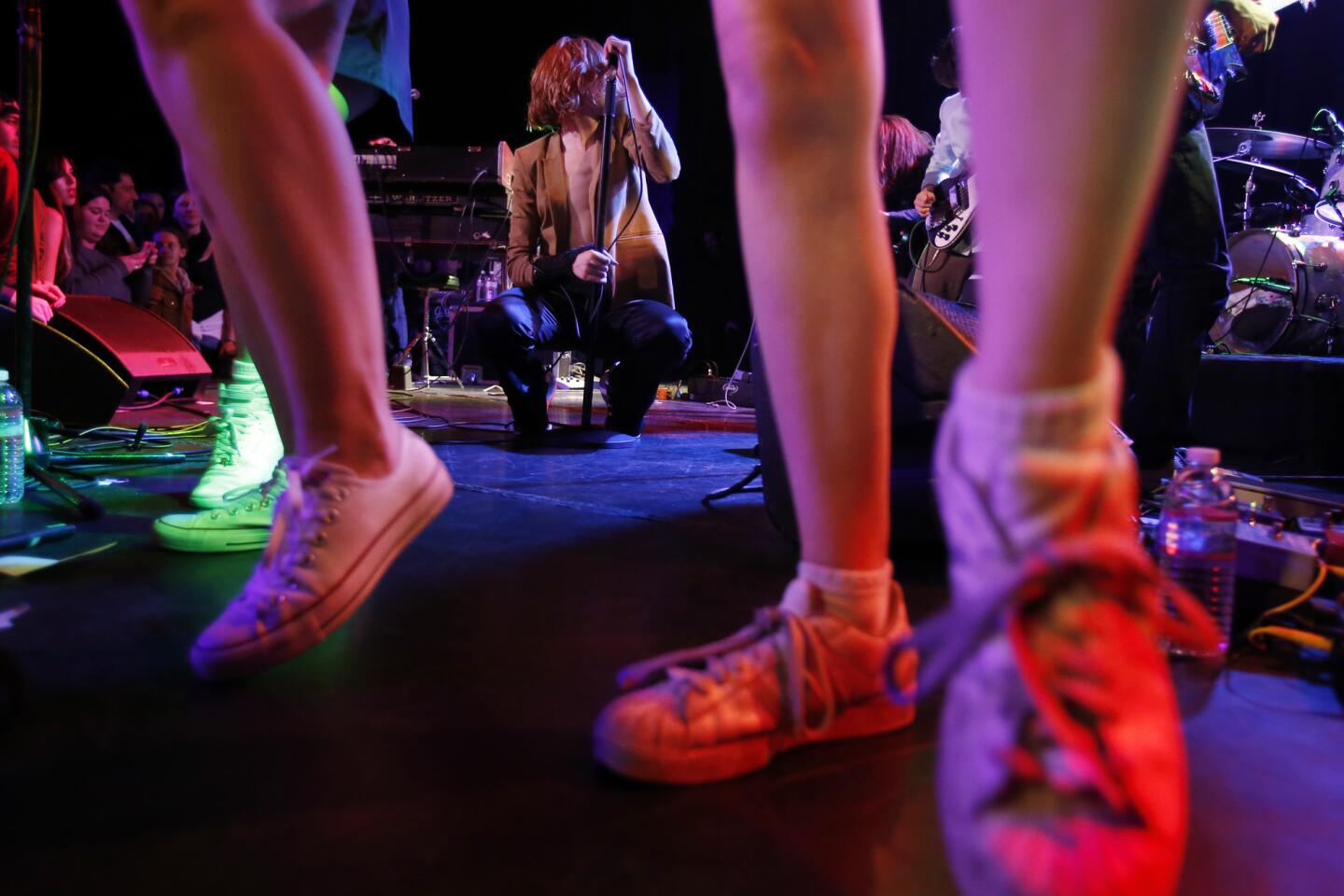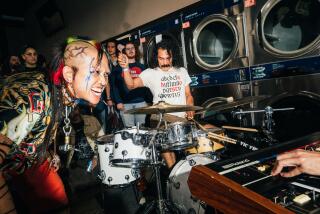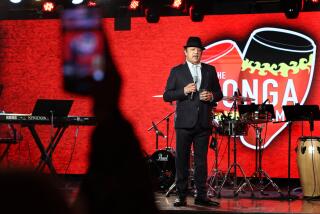Around 2 a.m. in a sweatbox of a downtown L.A. attic loft recently, Tahl Klainman and Kate Stimac were soaking wet and exhausted.
The two 25-year-old club promoters behind Fine Time, a year-old series of roving electronic music events and concerts, had thought that a September show was locked in place. They’d brought down Matrixxman, a techno producer from San Francisco touring on his breakthrough album, “Homesick.” They’d booked a noirish, industrial downtown L.A. space and drawn up cryptic online flyers for the late-night techno fiends driving the future of nightlife in L.A.
They were eating dinner when the call came in — their warehouse venue had just pulled out. Showtime was in a few hours. They needed a new space that could go unnoticed on the outside, while a hundred fans nodded to ferocious, noisy techno inside.
SIGN UP for the free Essential Arts & Culture newsletter >>
After a few heart attacks and dozens of calls, they found a new room with minutes to spare. “We’ve changed venues, like, four times tonight,” a bleary-eyed and relieved Klainman said during the show. “There is a small community of people you can call for something like this. The security guards can be your best friends; they know everything.”
As Matrixxmann’s brooding, ambient thumps cut through the fog, dozens of people danced in the dark. The night was saved, and in their own small way Fine Time helped re-imagine what people want when they go out in Los Angeles.
All across the city — especially on the fringes of downtown and northeast L.A. — small promoters like Fine Time are carving out new spaces for the kinds of strange, adventurous electronic music that eventually percolates out to inform the biggest pop, hip-hop, and EDM tracks.
The list of peers in this world is innumerable: VSSL, Droid Behavior, Dig Deeper, Perpetual Dawn and Minimal Effort, to name a few. Fine Time isn’t the biggest or even necessarily the best of these. But its path into L.A.’s electronic underworld embodies a generational shift in night life, one leaning away from permitted formality and corporate EDM into weirder but more revelatory places.
Stimac and Klainman met while booking concerts on the student programming board at UCLA. “I thought I was on a law path, and I hated it,” Stimac said. The two have a screwball-comedy kind of charisma together, finishing each other’s stories and riffing on hyper-obscure electronic producers.
Booking concerts appealed to them both, and after school each moved on to jobs at local venues and promoters like the Bootleg Theater and Spaceland Presents. (The latter’s lead talent buyer, Liz Garo, said her onetime colleague Klainman has “smart and sophisticated taste and is very passionate about the music he produces events for. There’s a whole new breed of young music industry kids who are way more proactive than when I was starting out.”)
1/82
Madonna performs at the Forum in Inglewood on Oct. 27, 2015. Read the review.
(Genaro Molina / Los Angeles Times) 2/82
Don Henley performs at the Forum in Inglewood on Oct. 9, 2015. Read the review.
(Katie Falkenberg / Los Angeles Times) 3/82
Los Lobos perform at El Gallo Plaza in East Los Angeles on Sept. 29, 2015. Read the review.
(Genaro Molina / Los Angeles Times) 4/82
Silversun Pickups perform at the Hollywood Forever Cemetery Masonic Lodge on Sept. 28, 2015. Read the review.
(Lawrence K. Ho / Los Angeles Times) 5/82
R. Kelly, cigar and mike in hand, performs at the Forum in Inglewood on Oct. 10. Read the Times review.
(Axel Koester / For the Los Angeles Times) 6/82
Grace Jones in concert at the Hollywood Bowl in Los Angeles on Sep. 27.
(Lawrence K. Ho / Los Angeles Times) 7/82
Lauryn Hill performs at the Greek Theatre on Sept. 14, 2015. Read the review.
(Lawrence K. Ho / Los Angeles Times) 8/82
Little Big Town band member Phillip Sweet performs at the Greek Theatre in Los Angeles on Sept. 10.
(Luis Sinco / Los Angeles Times) 9/82
Miguel performs at the Hollywood Forever Cemetery on Sept. 4, 2015. Read the review.
(Robert Gauthier / Los Angeles Times) 10/82
D’Angelo and the Vanguard performs at FYF Fest at Exposition Park on Aug. 23, 2015. Read the review.
(Christina House / For The Times) 11/82
Morrissey takes the stage at FYF Fest on Aug. 23, 2015. Read the review.
(Christina House / For The Times) 12/82
Solange onstage at FYF Fest on Aug. 23, 2015.
(Christina House / For The Times) 13/82
FKA Twigs performs at FYF Fest at Exposition Park on Aug. 23, 2015.
(Christina House / For The Times) 14/82
Kanye West performs during FYF Fest on Aug. 22.
(Francine Orr / Los Angeles Times) 15/82
Jehnny Beth performs with Savages at FYF Fest on Aug. 22, 2015.
(Francine Orr / Los Angeles Times) 16/82
Taylor Swift performs at Staples Center in August.
(Brian van der Brug / Los Angeles Times) 17/82
Shania Twain at Staples Center in Los Angeles on Aug. 20.
(Francine Orr / Los Angeles Times) 18/82
Aretha Franklin at the Microsoft Theatre in Los Angeles on Aug. 2.
(Lawrence K. Ho / Los Angeles Times) 19/82
The Weeknd performs during Hard Summer at the Fairplex in Pomona on Aug. 1, 2015. Read the review.
(Luis Sinco / Los Angeles Times) 20/82
Mötley Crüe celebrates the end of another concert, at the Matthew Knight Arena in Eugene, Ore., on July 22.
(Genaro Molina / Los Angeles Times) 21/82
John Famiglietti, left, front man Jake Duzsik, and Jupiter Keyes of the L.A. experimental band Health performing at the Echo in Los Angeles on July 22, 2015.
(Lawrence K. Ho / Los Angeles Times) 22/82
Ben Gibbard of Death Cab for Cutie performing at the Hollywood Bowl on July 12.
(Lawrence K. Ho / Los Angeles Times) 23/82
Kendrick Lamar performing at the BET Experience at Staples Center on June 27.
(Luis Sinco / Los Angeles Times) 24/82
Underworld performs at the Hollywood Bowl on June 21. Read the review.
(Lawrence K. Ho / Los Angeles Times) 25/82
Brian Wilson at the Greek Theater on Saturday, June 20. It was also his 73rd birthday.
(Michael Robinson Chávez / Los Angeles Times) 26/82
D’Angelo performs at Club Nokia on June 8, 2015. Read the review.
(Lawrence K. Ho / Los Angeles Times) 29/82
Ciara performs at Club Nokia on May 30, 2015.
(Michael Robinson Chávez / Los Angeles Times) 30/82
U2 guitarist The Edge, left, and lead singer Bono perform at the Forum on Tuesday, May 26. It was the first night of five at the venue.
(Michael Robinson Chavez / Los Angeles Times) 31/82
Guitarist Ron Wood, singer Mick Jagger, drummer Charlie Watts and guitarist Keith Richards of the Rolling Stones play Petco Park in San Diego on May 24, on the opening night of their 2015 American tour.
(Rick Loomis / Los Angeles Times) 32/82
Neil Diamond performs at the Hollywood Bowl on Saturday, May 23, 2015.
(Allen J. Schaben / Los Angeles Times) 33/82
Steve Aoki, EDM DJ, producer and recording artist, performs on Broadway between 4th and 6th streets in downtown Los Angeles, May 16, 2015.
(Jay L. Clendenin / Los Angeles Times) 34/82
Rapper Big Sean performs at Rock in Rio in Las Vegas on May 16.
(Luis Sinco / Los Angeles Times) 36/82
Sia performs during the Wango Tango concert at the StubHub Center on May 9, 2105, in Carson.
(Gina Ferazzi / Los Angeles Times) 37/82
Justin Bieber performs during the Wango Tango concert at the StubHub Center on May 9, 2105, in Carson.
(Gina Ferazzi / Los Angeles Times) 38/82
Kanye West performs in shadowy lights during the Wango Tango concert at the StubHub Center on May 9, 2105, in Carson.
(Gina Ferazzi / Los Angeles Times) 39/82
Ne-Yo performs in front of a full house during the Wango Tango concert at the StubHub Center on May 9, 2105, in Carson.
(Gina Ferazzi / Los Angeles Times) 40/82
Nick Jonas performs during the Wango Tango concert at the StubHub Center on May 9, 2105 in Carson.
(Gina Ferazzi / Los Angeles Times) 41/82
James Hatfield fronts Metallica at the Rock in Rio Festival in Las Vegas on May 9.
(Luis Sinco / Los Angeles Times) 42/82
Chester Bennington and Linkin Park play the Rock in Rio fest in Las Vegas on May 9.
(Luis Sinco / Los Angeles Times) 43/82
Tim McIlrath, lead singer for the Chicago-based, melodic hardcore band Rise Against, wades into the crowd at Rock in Rio on May 9.
(Luis Sinco / Los Angeles Times) 44/82
Gwen Stefani fronts No Doubt at Rock in Rio in Las Vegas on May 8.
(Luis Sinco / Los Angeles Times) 45/82
Janet Weiss, left, and Corin Tucker perform during the
Sleater-Kinney concert at the Palladium in Hollywood on April 30.
(Lawrence K. Ho / Los Angeles Times) 46/82
Carrie Brownstein performs during the
Sleater-Kinney concert at the Palladium in Hollywood on April 30.
(Lawrence K. Ho / Los Angeles Times) 47/82
Swedish-born soft-indie-rock artist
Jose Gonzalez performs at the Regent on April 30.
(Adam Della / For The Times) 49/82
Bassist Dusty Hill, left, and guitarist Billy Gibbons of ZZ Top perform on the Palomino Stage at the
Stagecoach Country Music Festival on April 25.
(Allen J. Schaben / Los Angeles Times) 51/82
Rumer performs at the Masonic Lodge at Hollywood Forever Cemetary in Hollywood on April 23.
(Lawrence K. Ho / Los Angeles Times) 52/82
Kanye West makes a surprise appearance during the Weeknd’s performance at the
Coachella Valley Music and Arts Festival on April 18.
(Marcus Yam / Los Angeles Times) 53/82
Marina and the Diamonds perform at the Coachella Valley Music and Arts Festival on April 18. (Marcus Yam / Los Angeles Times)
54/82
FKA Twigs performs at the Coachella Valley Music and Arts Festival on April 18. (Marcus Yam / Los Angeles Times)
55/82
Barry Manilow performs at the Staples Center on April 14.
(Michael Robinson Chavez / Los Angeles Times) 56/82
Florence + The Machine perform during the
Coachella Valley Music and Arts Festival on April 12.
(Marcus Yam / Los Angeles Times) 58/82
El-P, left, and Killer Mike of
Run The Jewels perform at the
Coachella Valley Music and Arts Festival on April 11.
(Luis Sinco / Los Angeles Times) 59/82
Brittany Howard of
Alabama Shakes performs at the
Coachella Valley Music and Arts Festival on April 10.
(Brian van der Brug / Los Angeles Times) 60/82
Ariana Grande performs at the Forum in Inglewood, April 8, 2015.
(Lawrence K. Ho / Los Angeles Times) 61/82
Rivers Cuomo of Weezer performs with his band at Burgerama on March 28. Weezer was one of the headliners for the two-day festival at Santa Ana’s Observatory.
(Katie Falkenberg / Los Angeles Times) 62/82
Lead singer Zac Carper of FIDLAR performs with his band at Burgerama, the two-day Santa Ana festival thrown by OC DIY impresarios Burger Records.
(Katie Falkenberg / Los Angeles Times) 63/82
Experimental artist Lustmord makes his Los Angeles debut on March 21 at the Masonic Lodge at Hollywood Forever.
(Katie Falkenberg / Los Angeles Times) 64/82
R&B singer Chris Brown performs at the Forum in Inglewood. The March 8 show was a stop on his tour with Trey Songz and Tyga.
(Lawrence K. Ho / Los Angeles Times) 65/82
Trey Songz performs at the Forum on March 8.
(Lawrence K. Ho / Los Angeles Times) 66/82
Alan Jackson performs at the Nokia Theatre on Feb. 27 as part of his
Keepin’ It Country tour.
(Katie Falkenberg / Los Angeles Times) 67/82
Brandy Clark performs as part of Alan Jackson’s
Keepin’ It Country tour at the Nokia Theatre on Feb. 27.
(Katie Falkenberg / Los Angeles Times) 68/82
Caribou performs at the Fonda Theater in Hollywood on Feb. 26.
(Michael Robinson Chavez / Los Angeles Times) 69/82
Roots rocker
Bob Seger performs at the Viejas Arena at San Diego State University on Feb. 25.
(Don Bartletti / Los Angeles Times) 70/82
Tegan and Sara perform with the Lonely Island during the 87th
Academy Awards on Feb. 22 at the Dolby Theatre in Hollywood.
(Robert Gauthier / Los Angeles Times) 71/82
Sarah Barthel of Phantogram performs at the
Air + Style concert and snowboarding event at the Rose Bowl in Pasadena on Feb. 21.
(Genaro Molina / Los Angeles Times) 72/82
Kendrick Lamar performs at the Air + Style concert and snowboarding event at the Rose Bowl in Pasadena on Feb. 21.
(Genaro Molina / Los Angeles Times) 73/82
John Legend performs during a rehearsal for “Stevie Wonder: Songs in the Key of Life - An All-Star Tribute” on Feb. 9 at Nokia Theatre in Los Angeles.
Read the review (Christina House / For The Times) 75/82
Madonna interacts with a dancer during the 57th Grammy Awards on Feb. 8.
Read the review (Robert Gauthier / Los Angeles Times) 77/82
Patti Smith at the Roxy on Feb. 2.
Read the review (Lawrence K. Ho / Los Angeles Times) 78/82
R&B singer Tinashe sings to a packed crowd at the El Rey Theatre on Jan. 22.
Read the review (Gina Ferazzi / Los Angeles Times) 79/82
Eric Church rocks the house while performing at Staples Center on Jan. 23.
Read the review (Gina Ferazzi / Los Angeles Times) 80/82
Trombone Shorty & Orleans Avenue performs at the Grand Plaza during the 2015 NAMM show at the Anaheim Convention Center on Jan. 22. (Allen J. Schaben / Los Angeles Times)
81/82
Sam France of Foxygen performs at the Roxy on Jan. 2.
Read the review (Francine Orr / Los Angeles Times) 82/82
Foxygen at the Roxy on Jan. 2. (Francine Orr / Los Angeles Times)
While ensconced in the local indie scene, however, they realized that the music they were getting into — dark and experimental house music — was exactly the kind of thing that didn’t work at formal rock-concert venues. They saw their L.A. music scene peers turning to more improvised and niche kinds of electronic music events — ones whose late-night aesthetic warranted a whole different approach.
“There’s a limit to what you can do [at rock clubs] with house music,” Klainman said. “There really is a community for putting on these shows, it’s like throwing up the underground bat signal. We all have a private Facebook group that we call the PLUR Board” — an ironic reference to rave culture’s hokey motto of “Peace, Love, Unity, Respect” — where they trade tips and get last-minute help when things fall apart.
They quit their day jobs, moved their office into Stimac’s apartment and started Fine Time this year. They had professional concert-booking experience and contacts but little idea about assembling shows from scratch. “We really had to get over our fear of failure,” Klainman said. “When someone complains at a show, I feel it.”
Lately though, they haven’t had too much to complain about. Their assortment of parties has grown rapidly. They have a new gay-centric, hip-hop-minded party called Gag that recently featured the Björk collaborator Lotic; an “erotic after-hours party” called Sex Tempo and a slate of cutting-edge house and techno sets across downtown and beyond. They’ve even done rock shows at tiny spaces like Echo Park’s Vega’s Meat Market and are working on a recurring jazz series.
“Just in the last year, L.A. has blown up with underground electronic shows. There’s something worth seeing every single weekend,” said Aaron Davis, the promoter behind the Acid Camp party and a sometime-collaborator with Fine Time. “But with limited resources for spaces and sound quality, you’ve got to create a really immersive experience. [Fine Time’s] fans really trust their bookings. The crowd is there to see music and not just be out at night.”
[Fine Time’s] fans really trust their bookings. The crowd is there to see music and not just be out at night.
— Aaron Davis, promoter
“Underground club nights are probably the most liberating party experience you can have,” said Victor Cordon, a longtime fan and frequent Fine Time show-goer. “Mainstream dance shows generate a certain elitism, and that can make those who do not fit the prescribed image feel vulnerable, that they do not belong. The underground space is much more welcoming.”
These are exactly the kind of boundary-pushing sets that make big-city cultural life worth the costs. At the moment, all the pieces are coming together for L.A.’s semi-sanctioned club music scene to thrive. But gentrification and a raft of attention (from thrill-seeking EDM fans and local authorities alike) make the high-wire act of producing these concerts more difficult and may eventually drive groups like Fine Time back onto the grid or back into day jobs as they try to stay afloat.
“A lot of people are disenfranchised and don’t have the means to do this in a more sanctioned capacity,” said Charles Duff, the producer who performs as Matrixxman, after the show. “This is one of the reasons people move to cities, to be part of a hotbed for creative minds. When you take away people’s ability to live, it changes the landscape irrevocably. In San Francisco, it’s just completely inhospitable now and [artists] are clinging on for dear life.”
L.A., by contrast, is for now “a beautiful place, there’s such a unique energy that’s perfect for parties,” Duff said. “I had a lot of fun at that show, despite the enormous heat.”
Klainman and Stimac admit they’re thinking about Fine Time’s long-term viability as an underground enterprise. With backgrounds in more formal booking, they’d love to take away some of the headaches of doing this under the radar.
“I do wonder if we need more structure,” Stimac said. “I’d like to book bigger acts, and a healthy scene has quality legal spaces as well. Most event producers want to keep it underground, but I don’t like having an aesthetic hierarchy or being too exclusive.”
Such are the trials of reshaping nightlife while staying under the radar. If it can go wrong, it will. But when it goes right, there’s nothing better.
“I’m numb to ever getting upset anymore,” Stimac said, laughing. “Everything that can possibly go wrong has already gone wrong.”
august.brown@latimes.com
